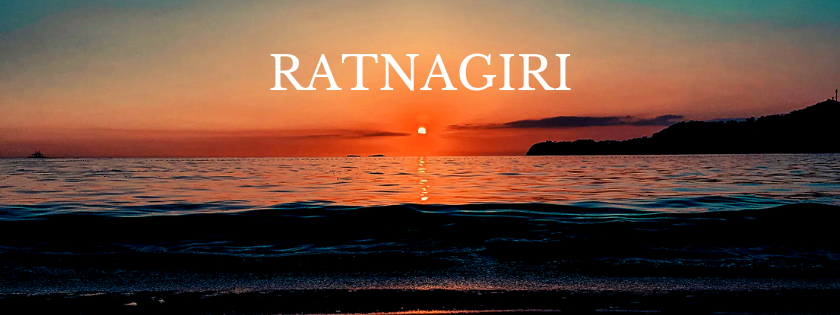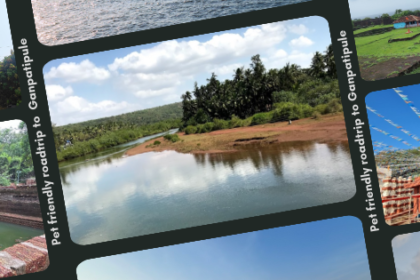Traveling with pets is an adventure filled with joy and memorable moments, especially when the destinations are as picturesque as Ratnagiri and Ganpatipule. My husband and I, along with our furry companion Sophie, embarked on a 4-day road trip through these serene coastal towns. Here’s how our journey unfolded:
| Day 1: Ratnagiri | Pune to Ratnagiri. |
| Day 2: Ratnagiri | Ratnadurg Fort, 6 temples in Kasba Sangameshwar, Bhatye Beach |
| Day 3: Ganpatipule | Datta mandir in Kolambe, Thiba palace, lokmanya tilak birthplace. Travel to Ganpatipule – Jai Vinayak Temple, Jaigad Fort. |
| Day 4 | Ganpatipule to Pune |
Day 1: Pune to Ratnagiri
We began our journey from Pune at 9:00 AM, with Sophie excitedly settling into her travel spot in the car. Our first stop was for breakfast at Quick Bite in Tamhini Ghat, where we enjoyed a steaming hot Misal Pav. Pets are strictly not allowed in Quick Bite. So I stayed outside with Sophie. We continued our journey to Ratnagiri.
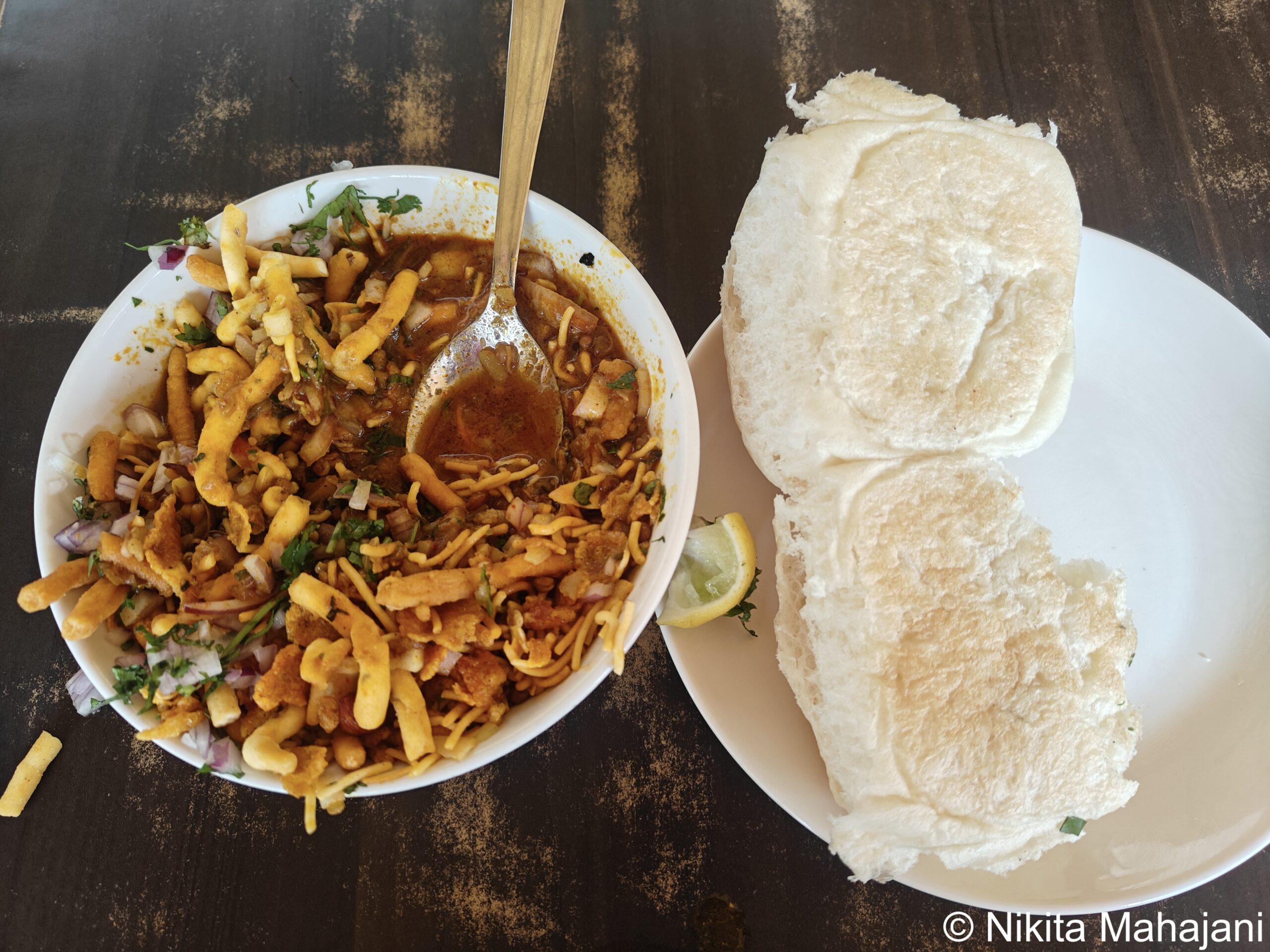
We reached Chiplun in the afternoon. We had a quick lunch stop over at Hotel Vivan Pure Veg in Chiplun. The hotel is located at a prime location at the entrance of Chiplun Court. The food is very simple and tasty. Karanji is a must try. The owner is very kind and helpful. He allowed my pet inside on request.
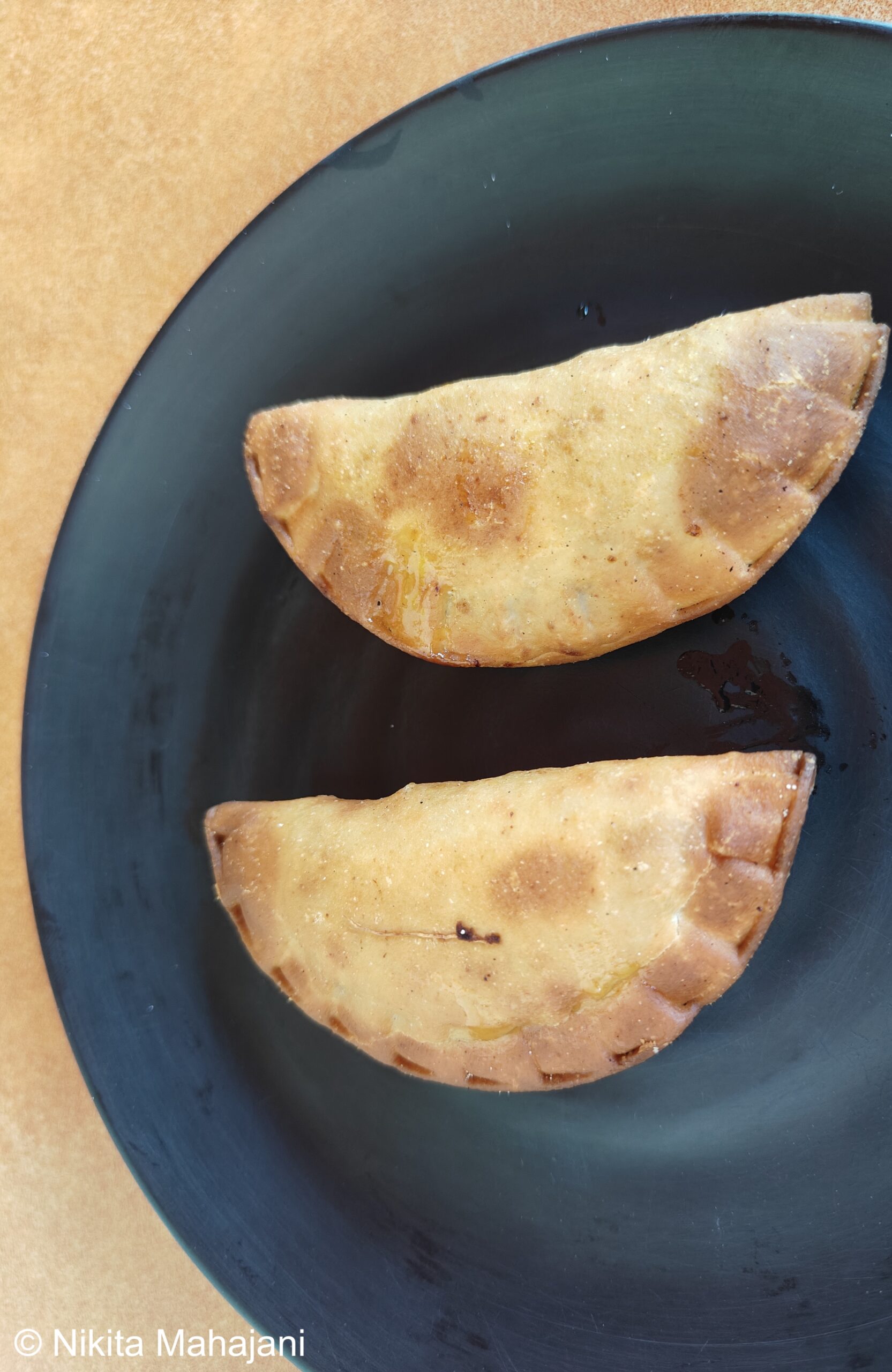
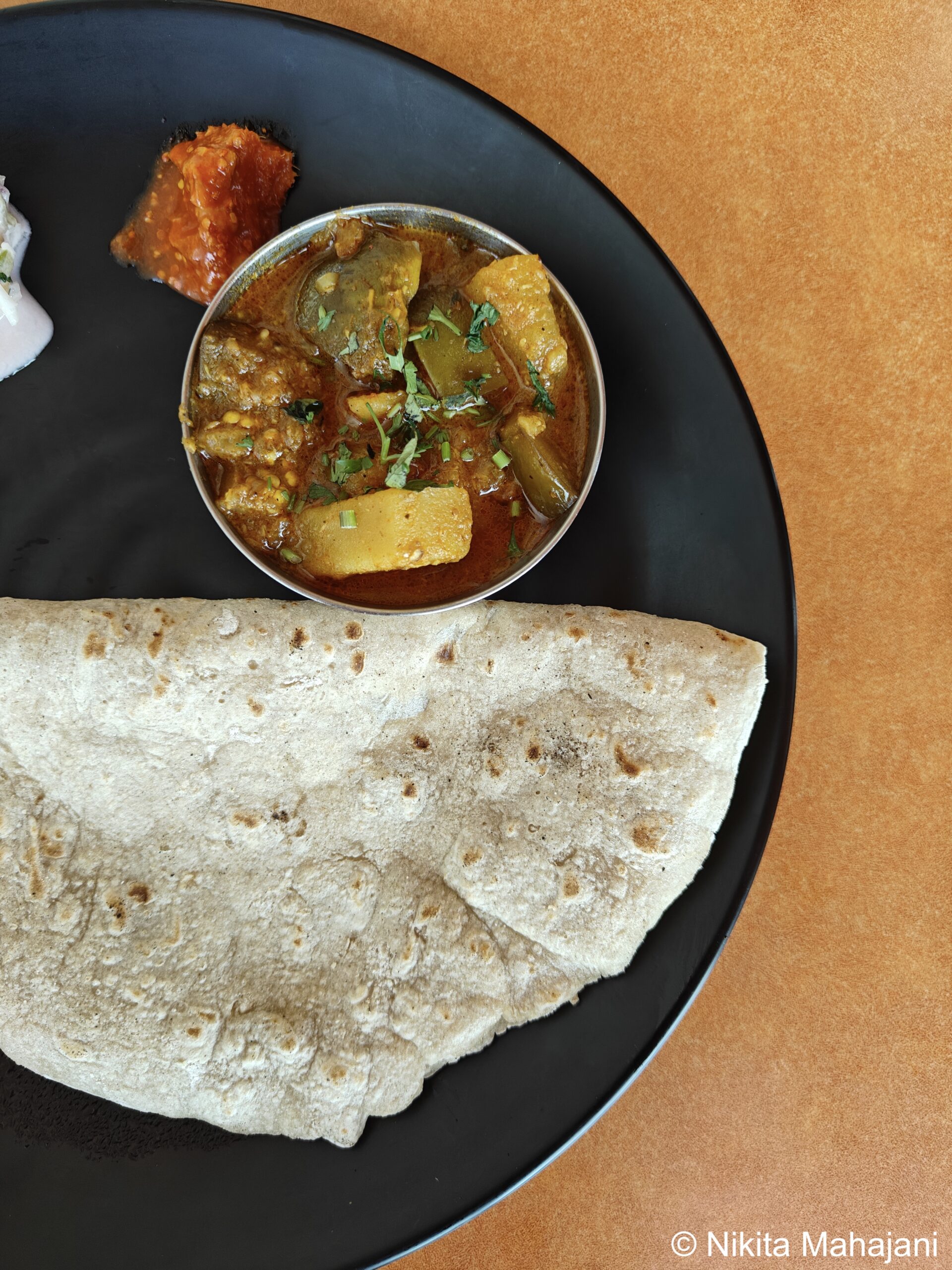
We reached Hotel Kohinoor Samudra Resort in Ratnagiri around 6:00 PM. There is an indie cat and a senior labrador in the waiting lounge of Hotel Kohinoor Samudra Resort. There are some indie dogs in the parking area as well. With its pet-friendly ambiance and spacious surroundings, Sophie had plenty of room to stretch her paws. We wrapped up the day with a comforting dinner of dal khichadi at the resort’s in-house restaurant.
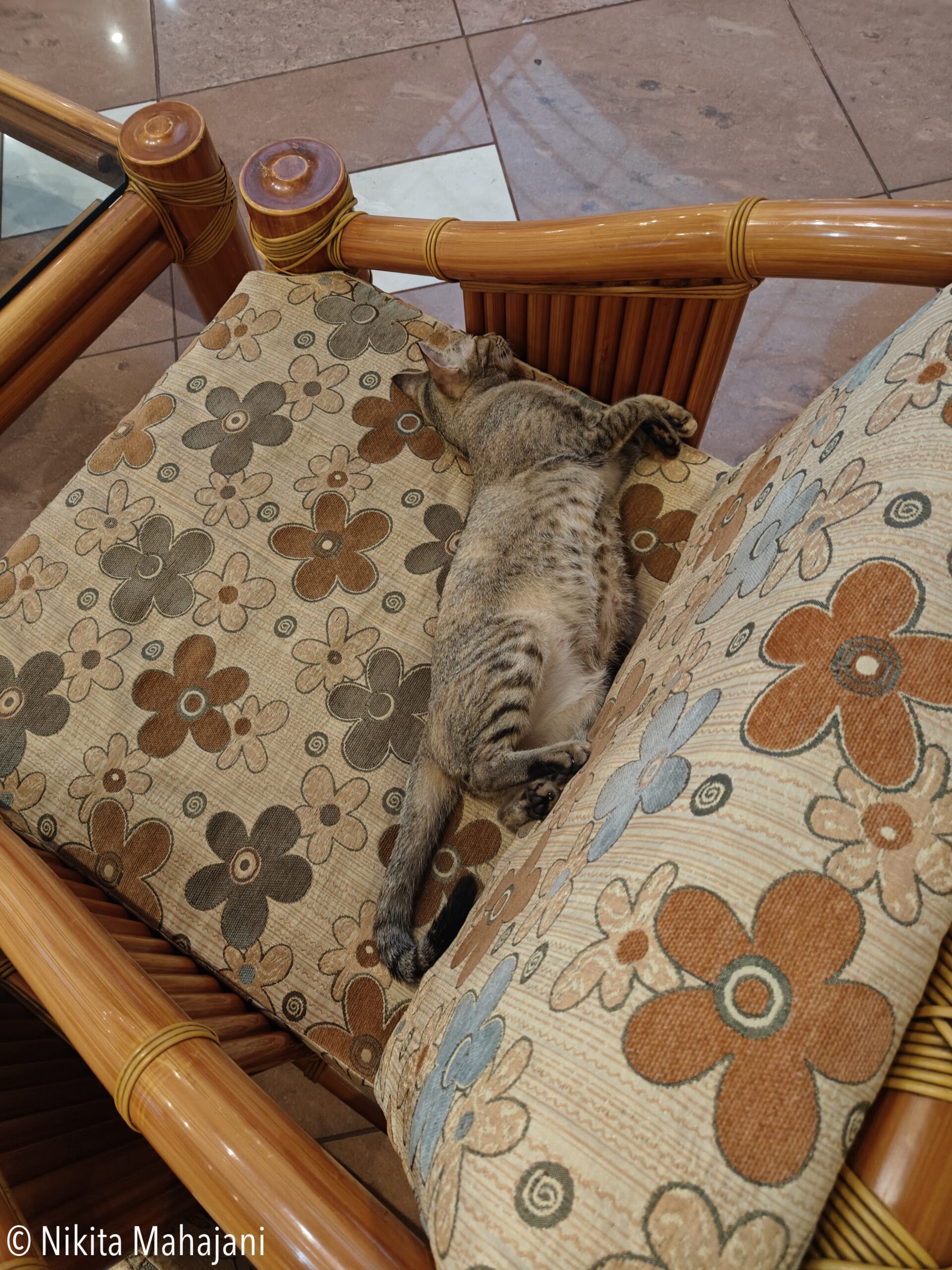
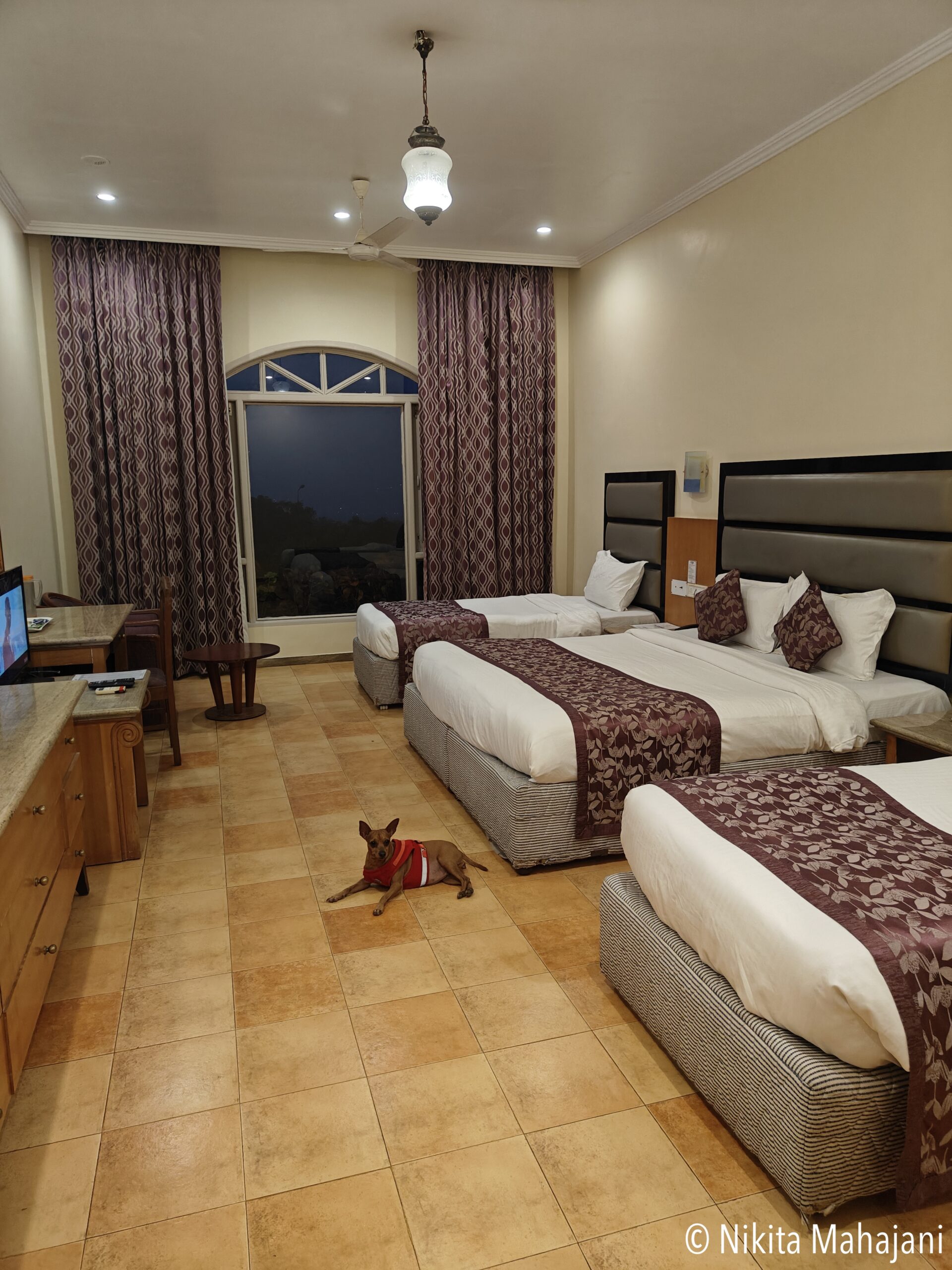
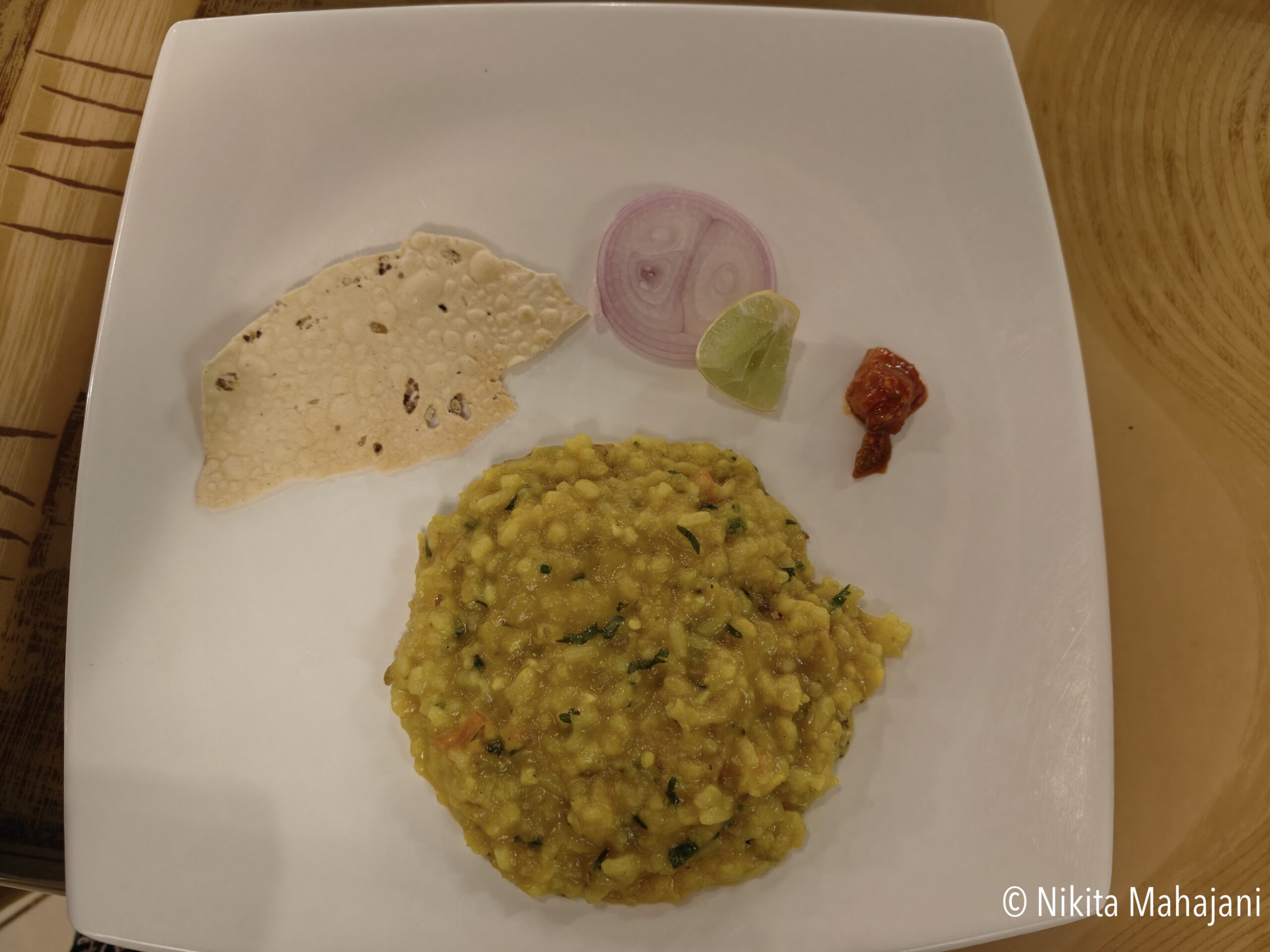
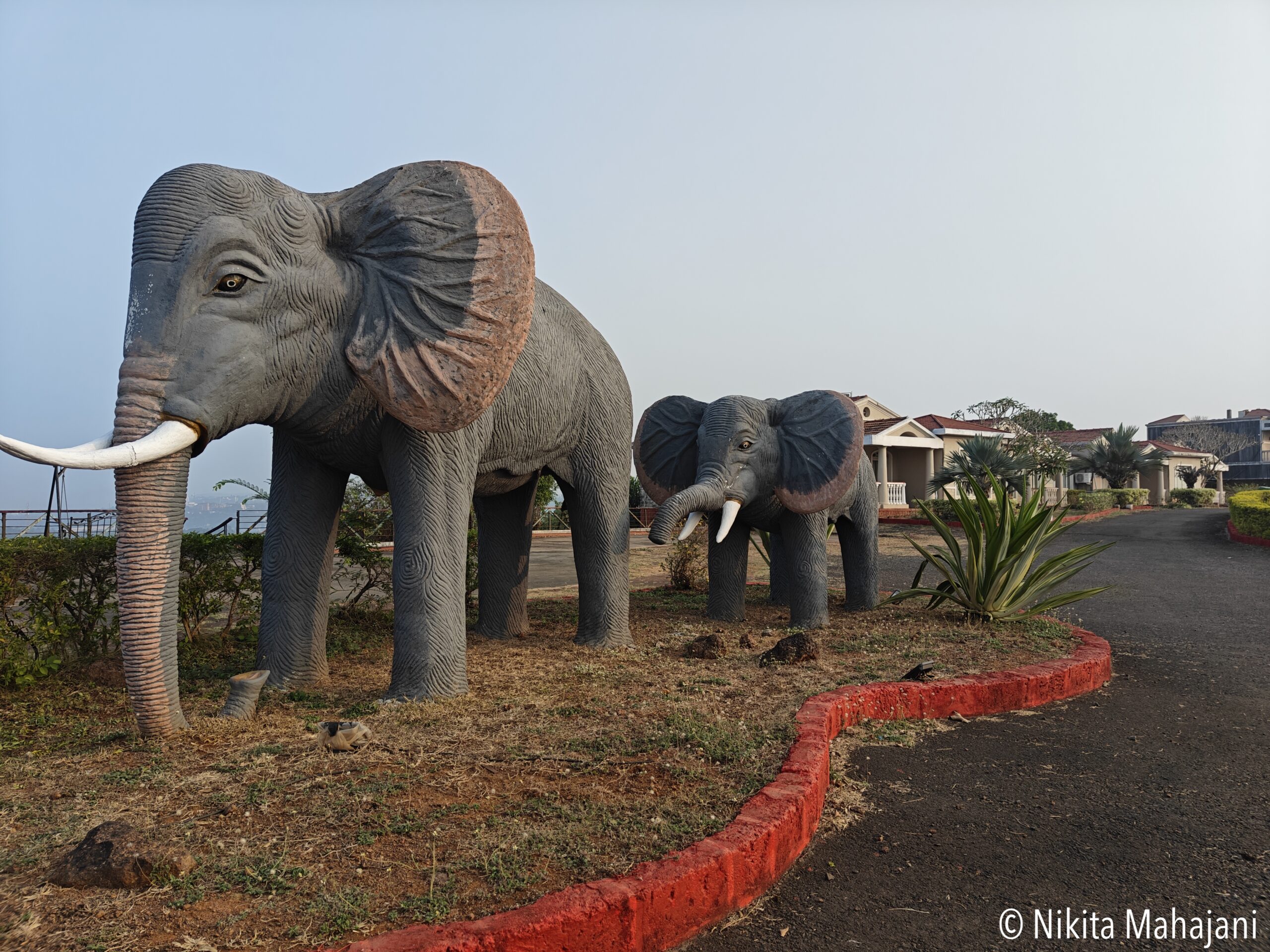
Day 2: Ratnagiri and Sangameshwar
After a delicious breakfast at the resort, we headed to Ratnadurga Fort, a stunning location with panoramic sea views. Sophie enjoyed the gentle breeze as we walked through the historic site.
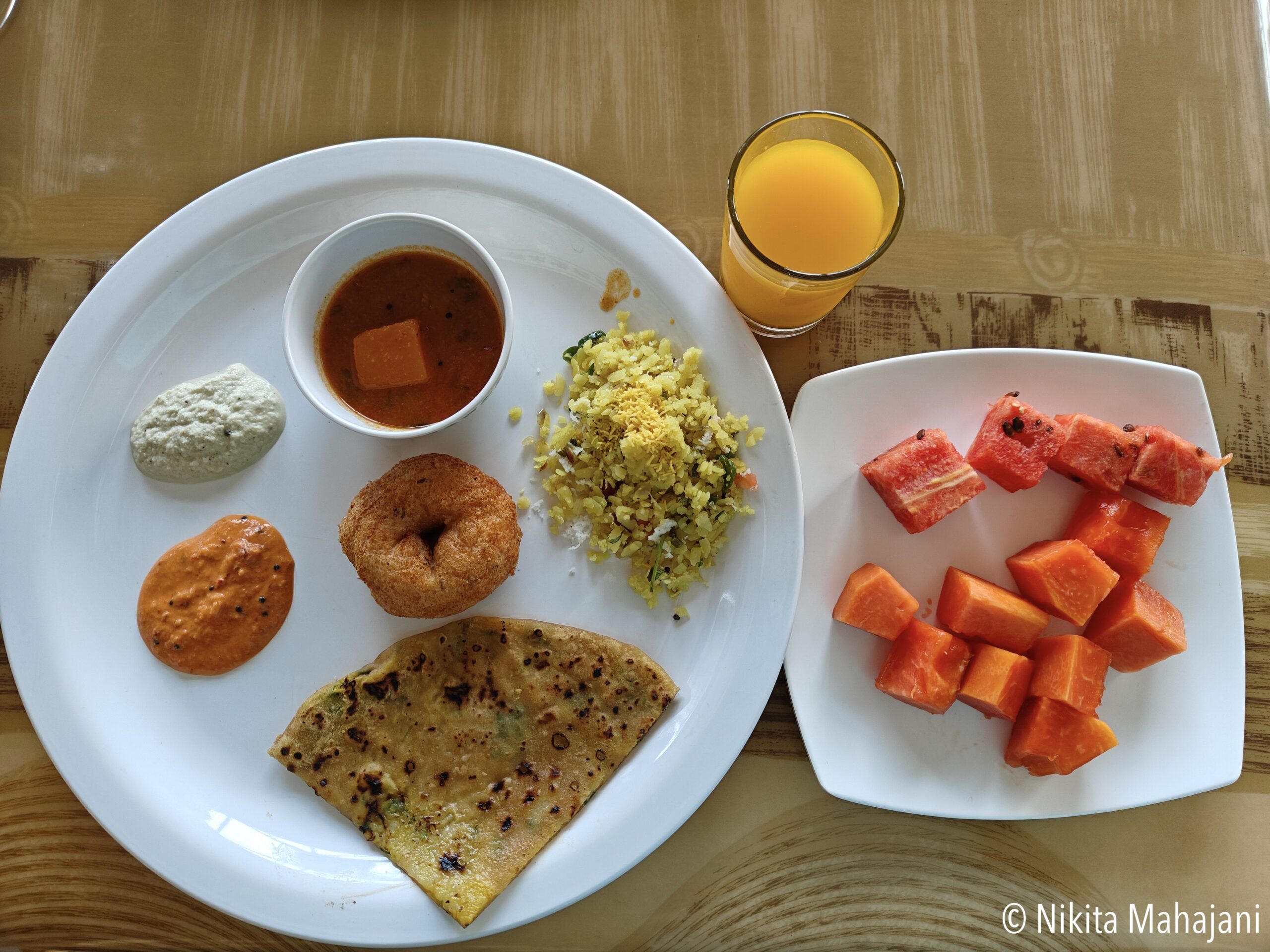
Ratnadurga fort, perched on a seaside cliff, offers stunning views of the sea and nearby mountains, making it a treat for the eyes. When I visited on a quiet Friday morning at 9:30 AM, there was just one group of four visitors, adding to the serene ambiance. The fort is surrounded by dense bushes, giving it a forest-like vibe, with a well-maintained walking path along the periphery. Inside, there’s a small temple, and no entry fee is charged.
The fort is open from 8 AM to 6 PM, with a dedicated parking area right at the entrance, making it easily accessible by car. Exploring the entire fort takes less than 20 minutes, but do note that washrooms are not available. It’s completely pet-friendly, so bring along your furry friends. Don’t forget to carry some kibble for the stray dogs near the parking area—they’ll appreciate the gesture!
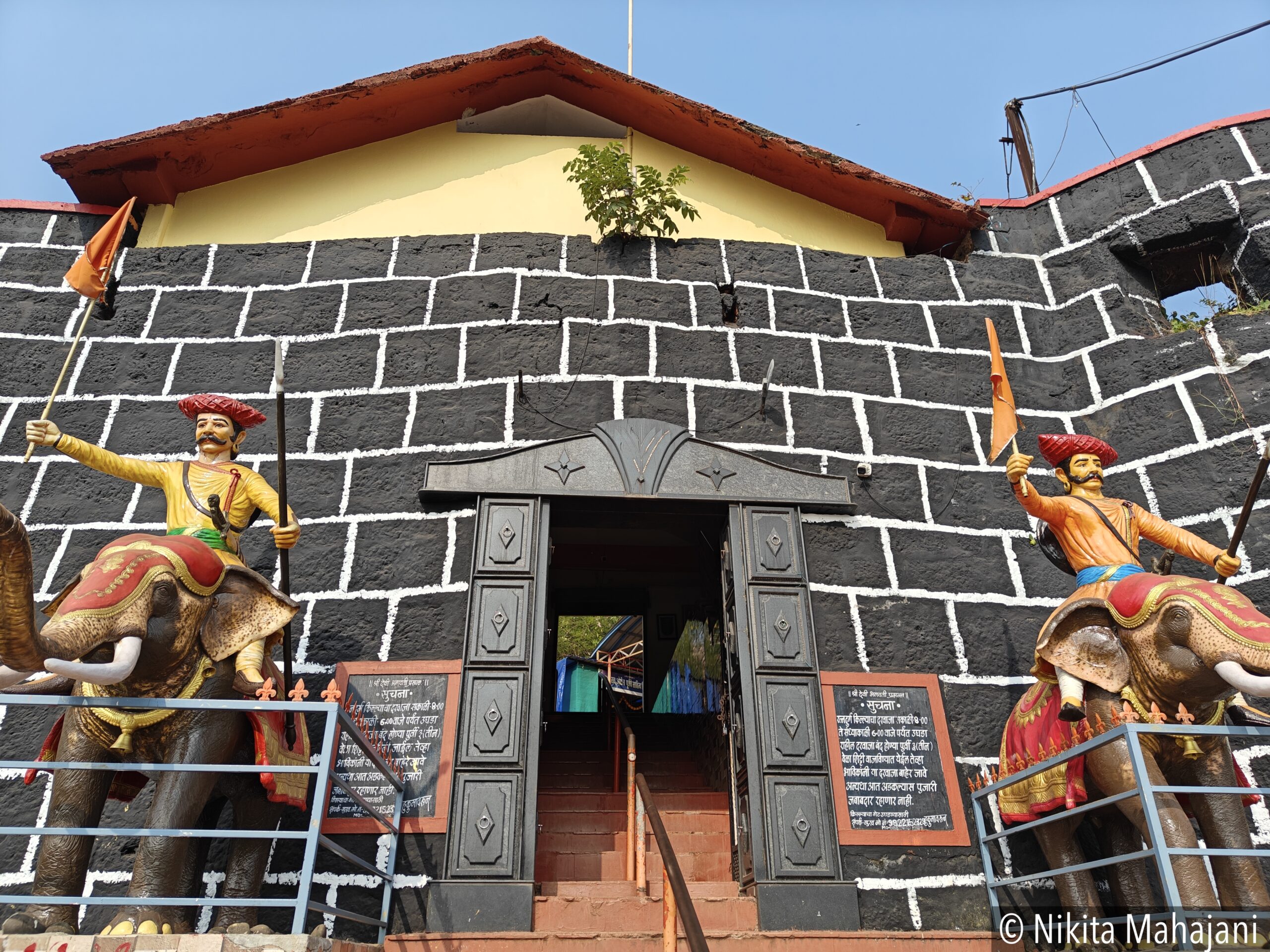
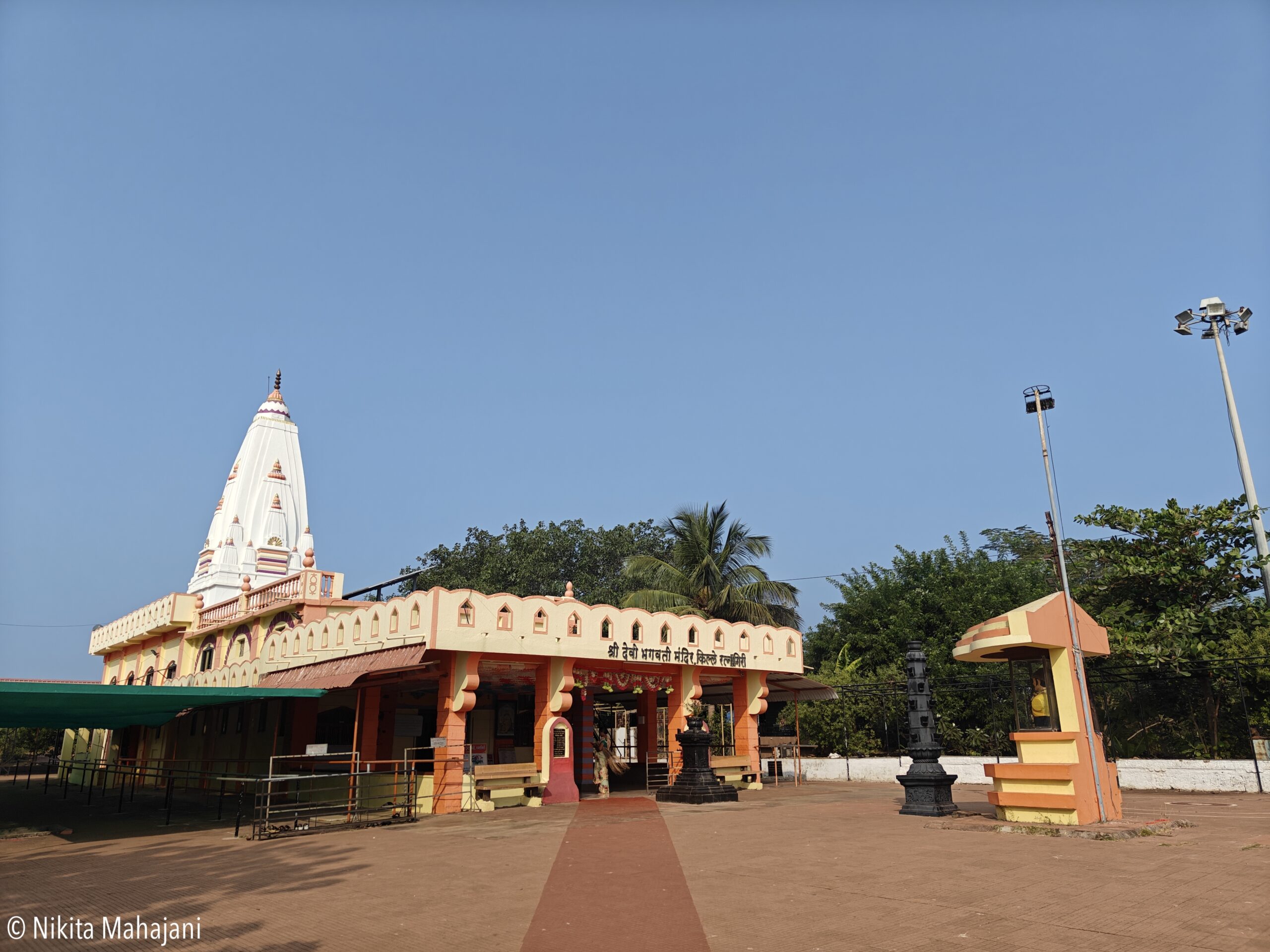
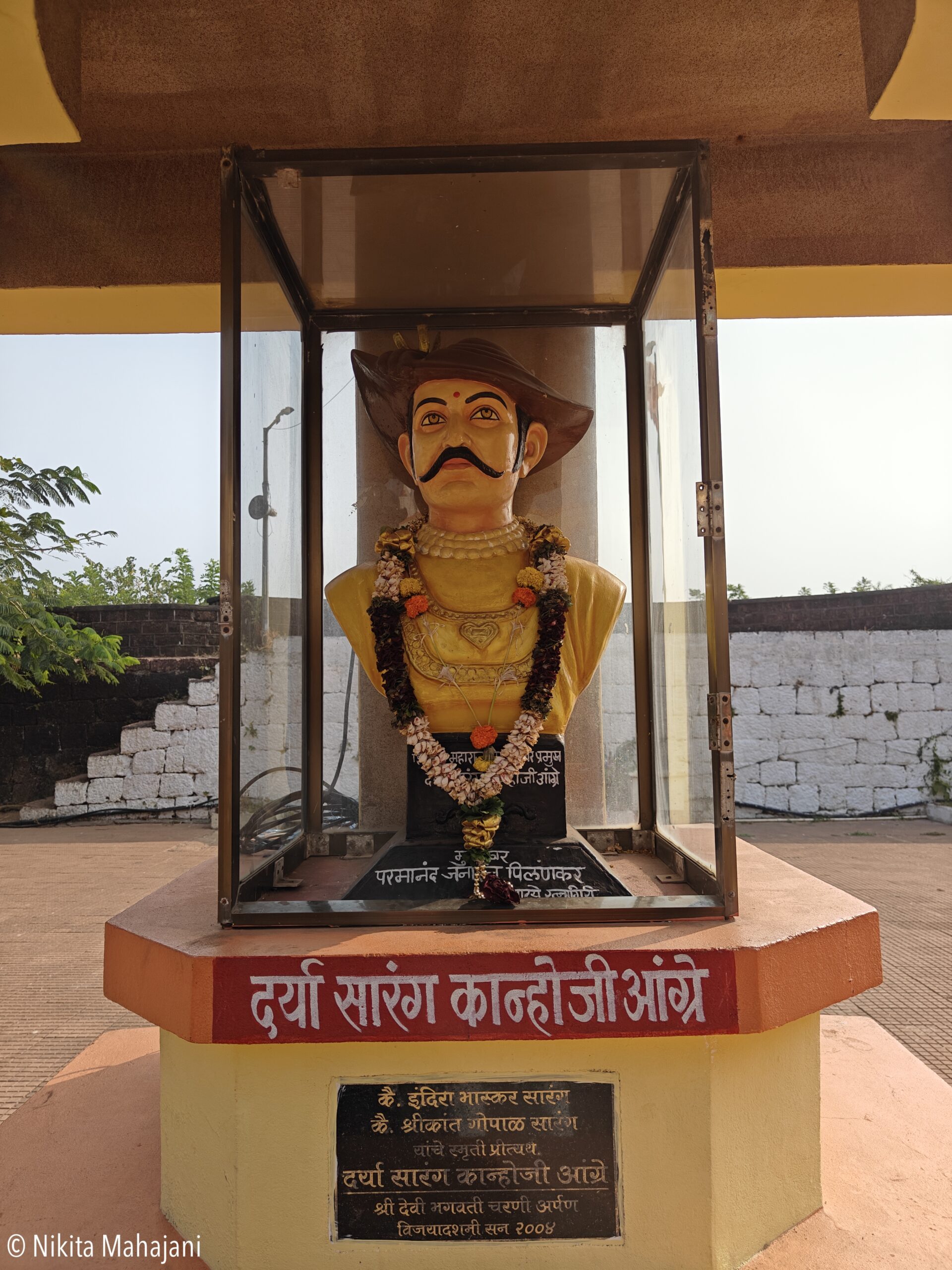
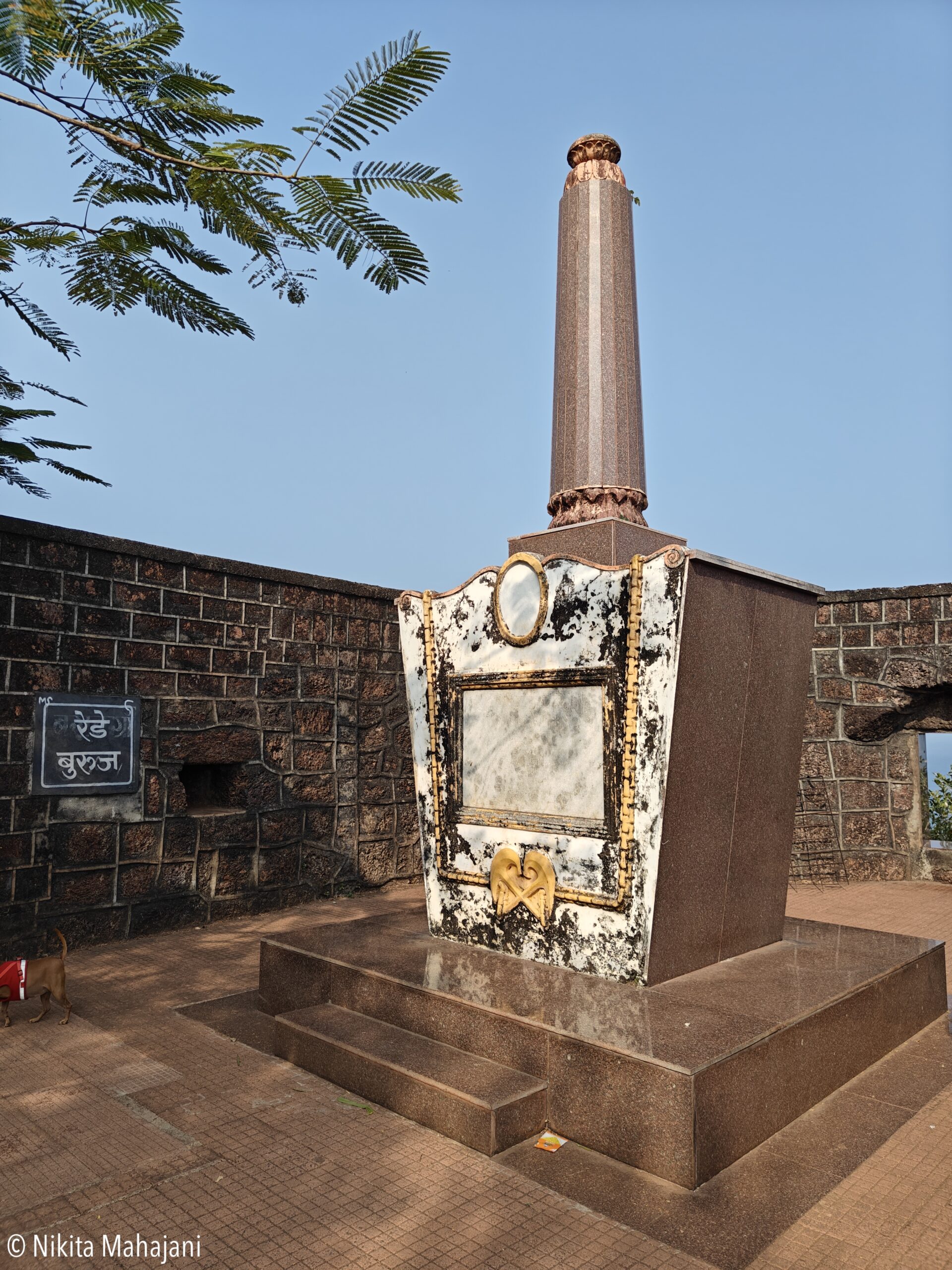
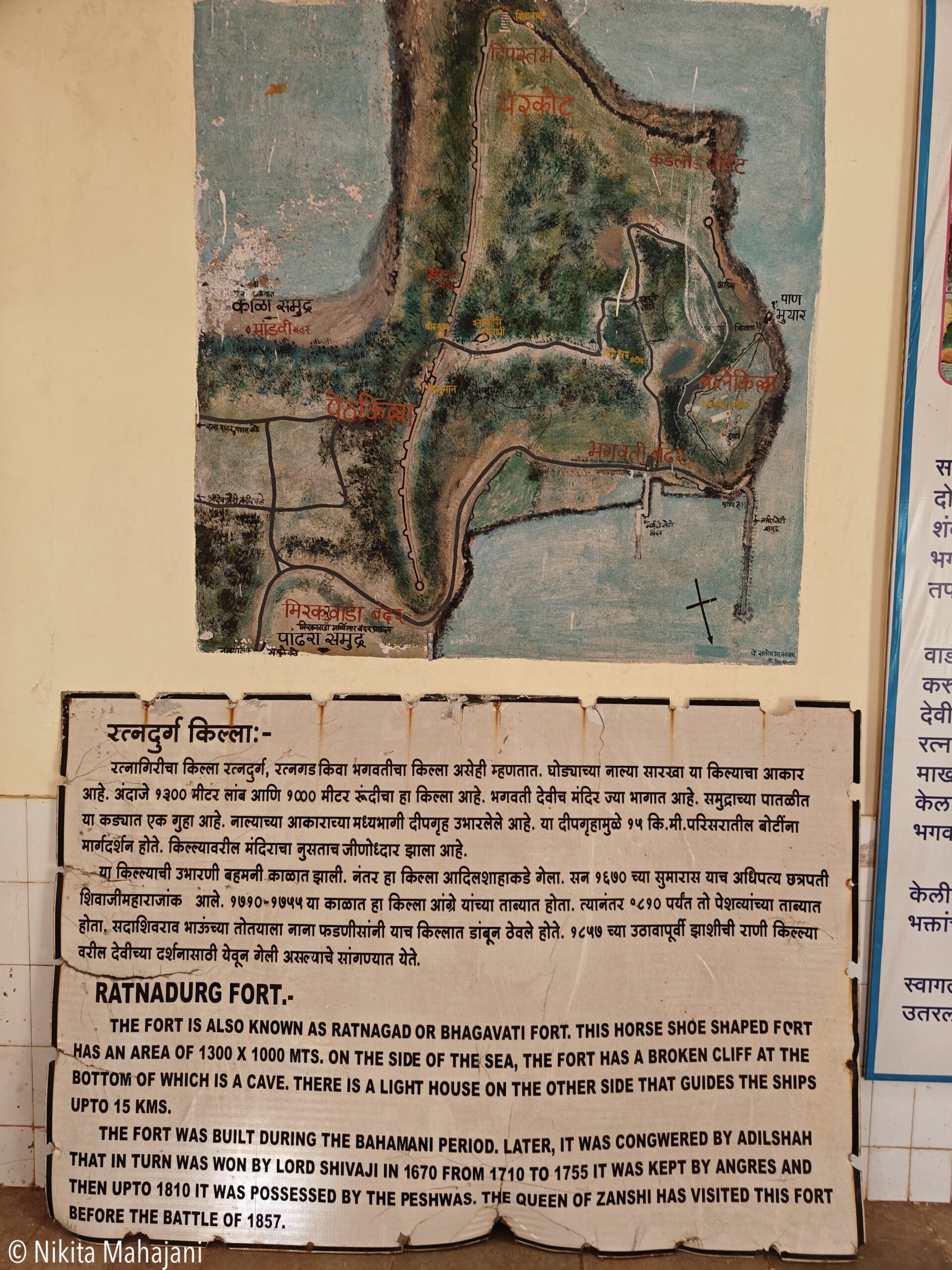
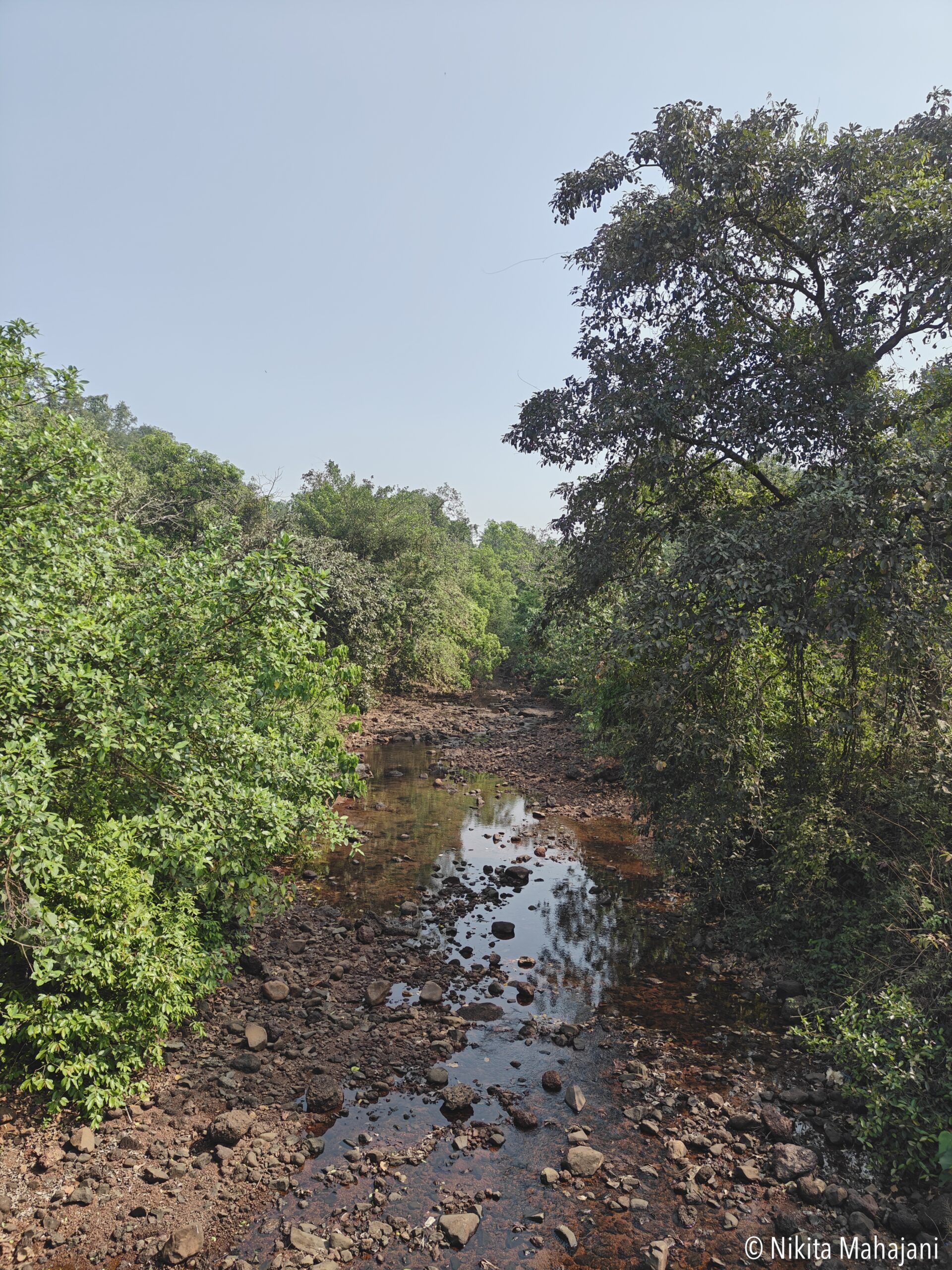
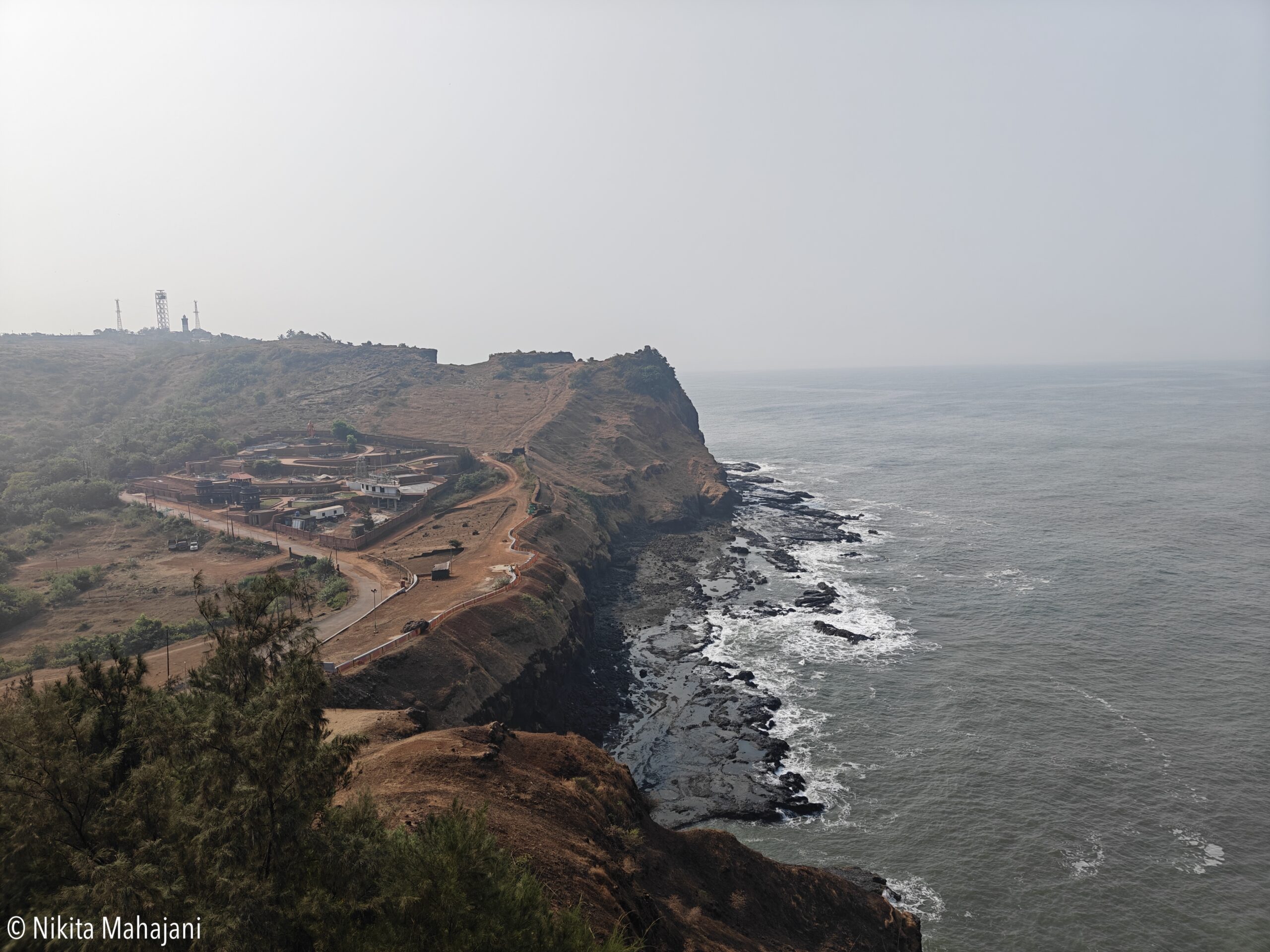
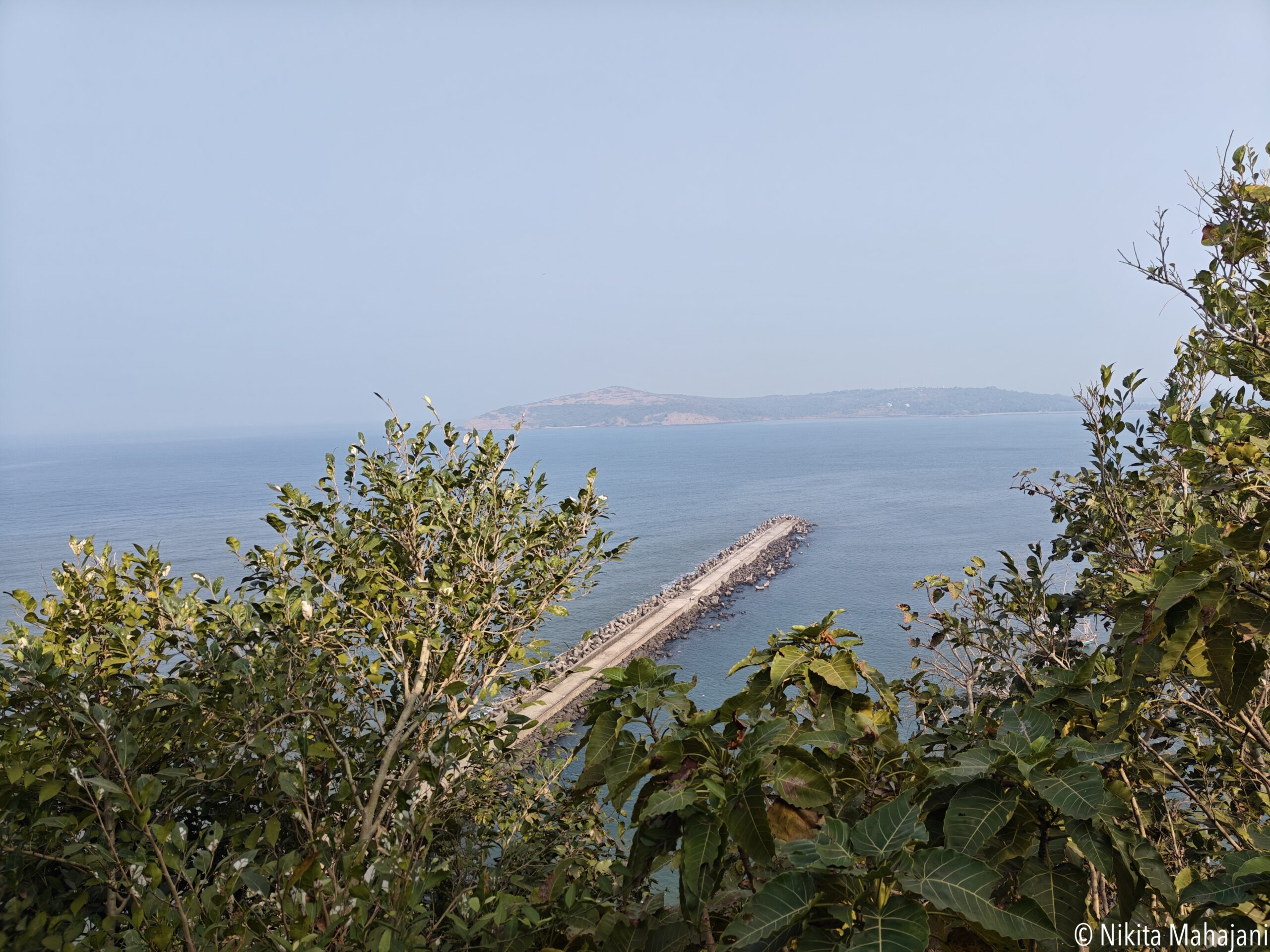
Our next destination was Sangameshwar which was 50kms from Ratnadurga Fort. We had lunch at Hotel Ganesh Krupa, relishing a Konkani thali with solkadhi and modaks. They allowed my pet on request. Apart from the restaurant, they also have a sweet shop and a general store. They have parking and washrooms. A wide variety of modaks are available at their sweet shop. After having lunch, we reached Sapteshwar temple and stepwell in just 15mins.
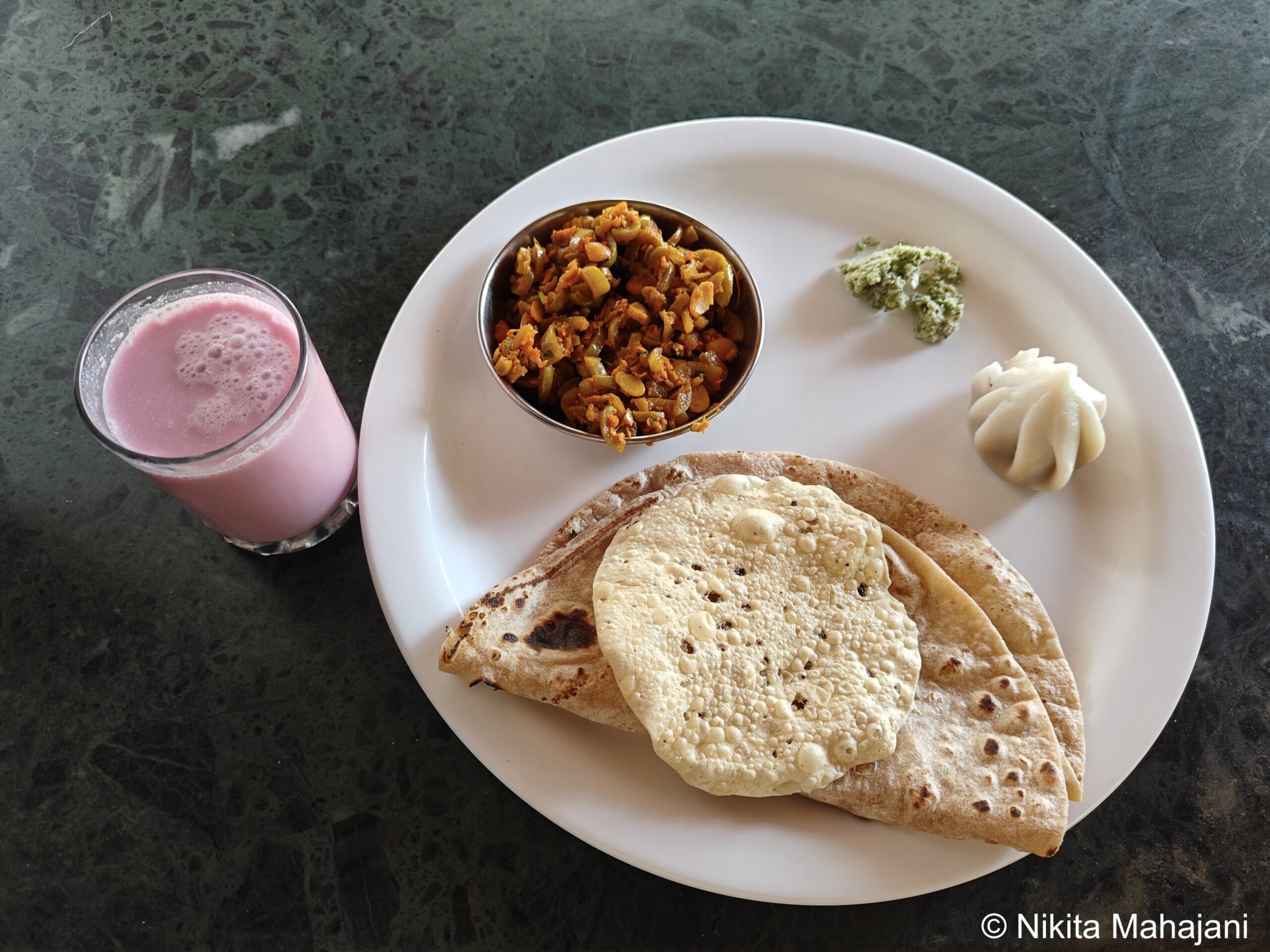
There is a dedicated parking space and washrooms at the entrance of the temple. This is a secluded and serene spot where visitors can immerse themselves in peace and tranquility, making it an ideal setting for self-reflection and personal discovery.
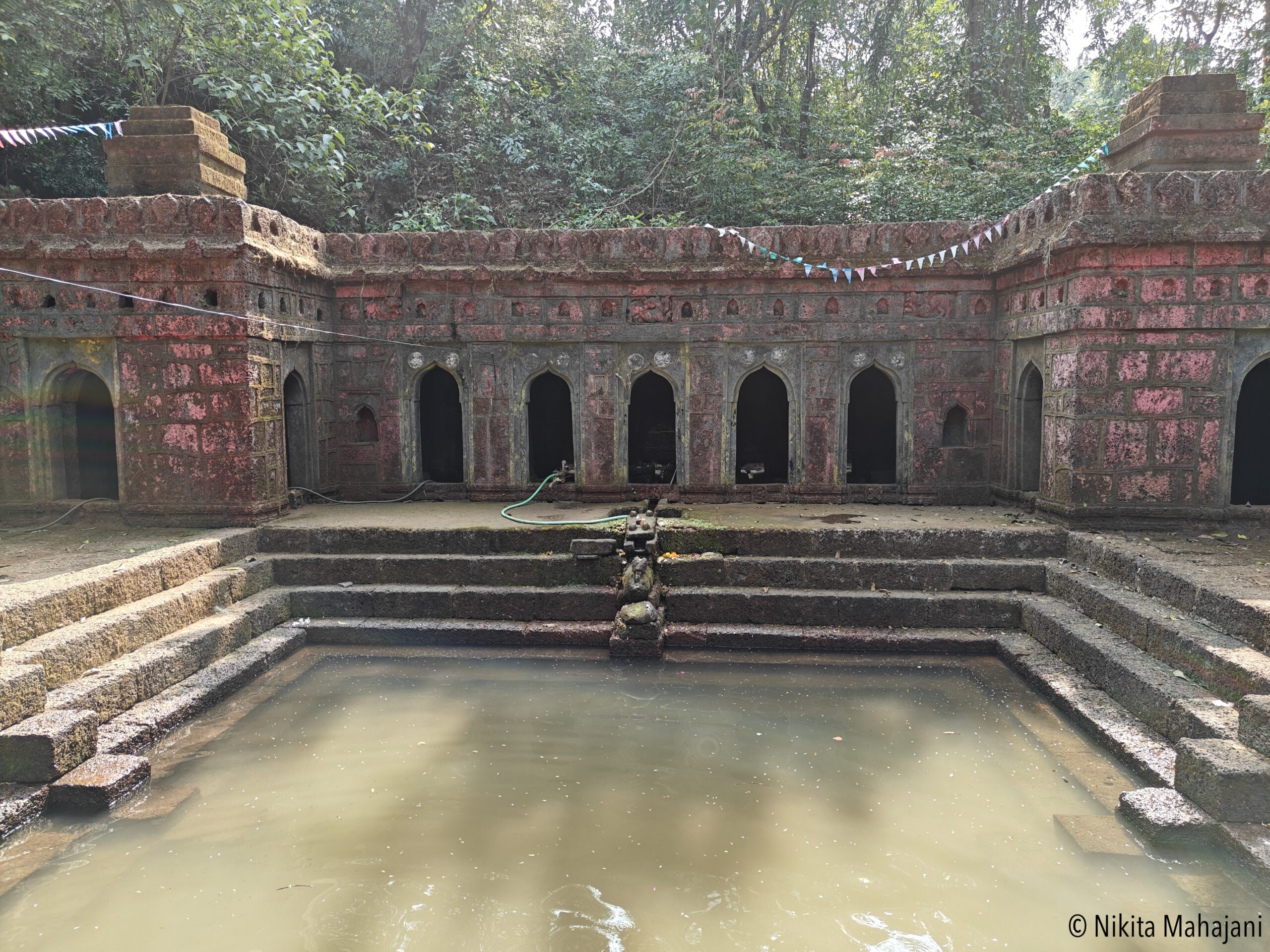
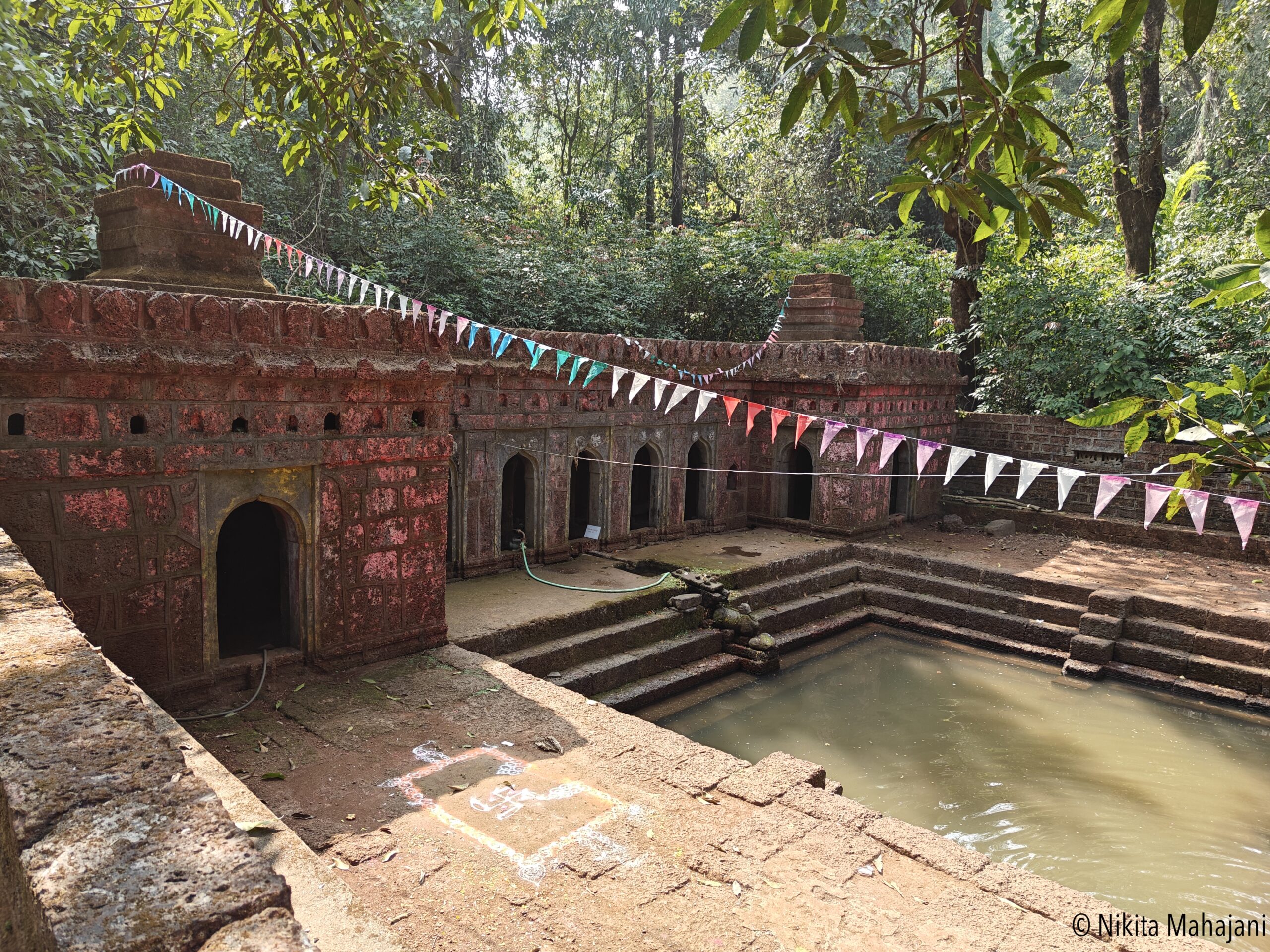
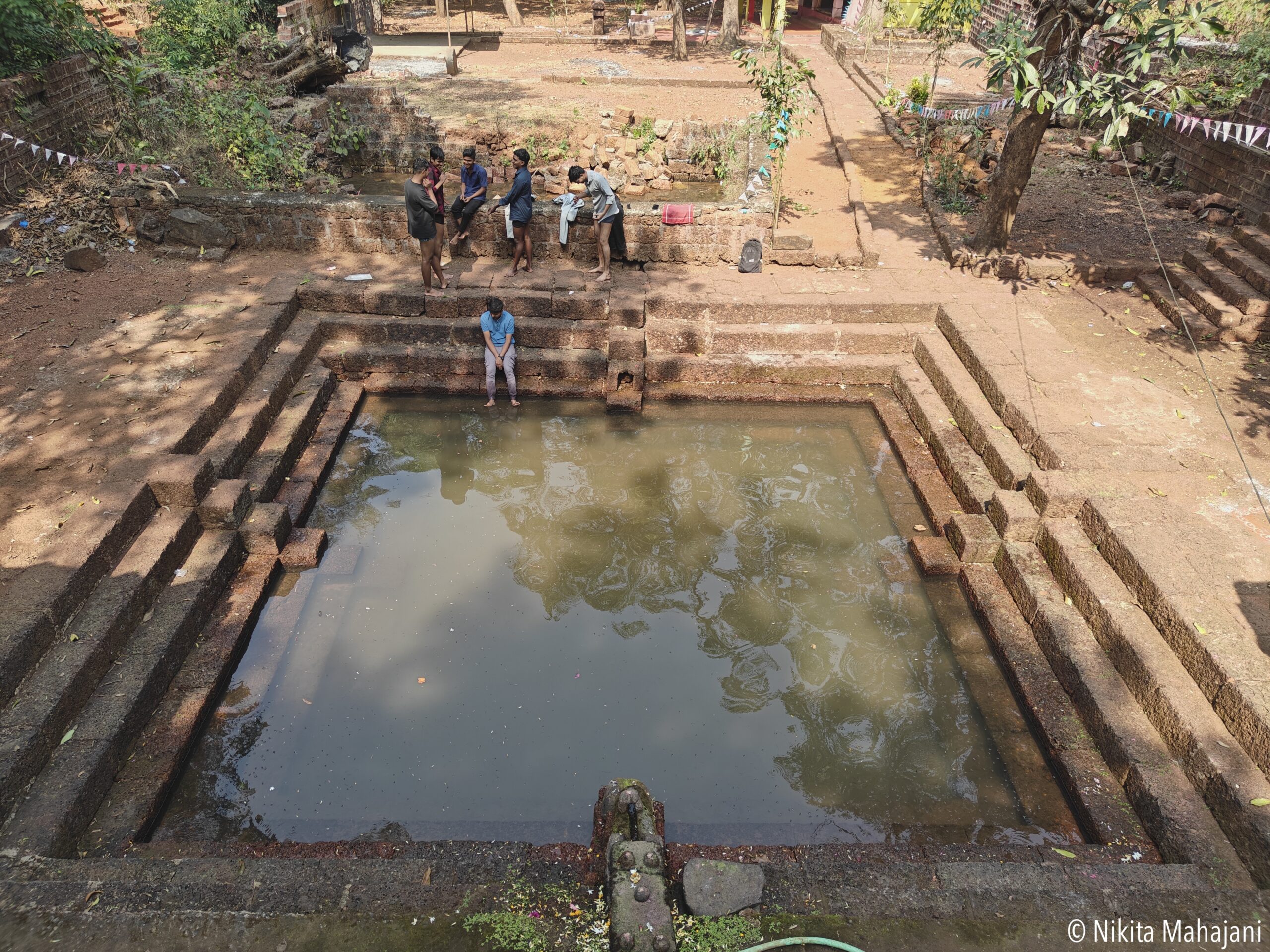
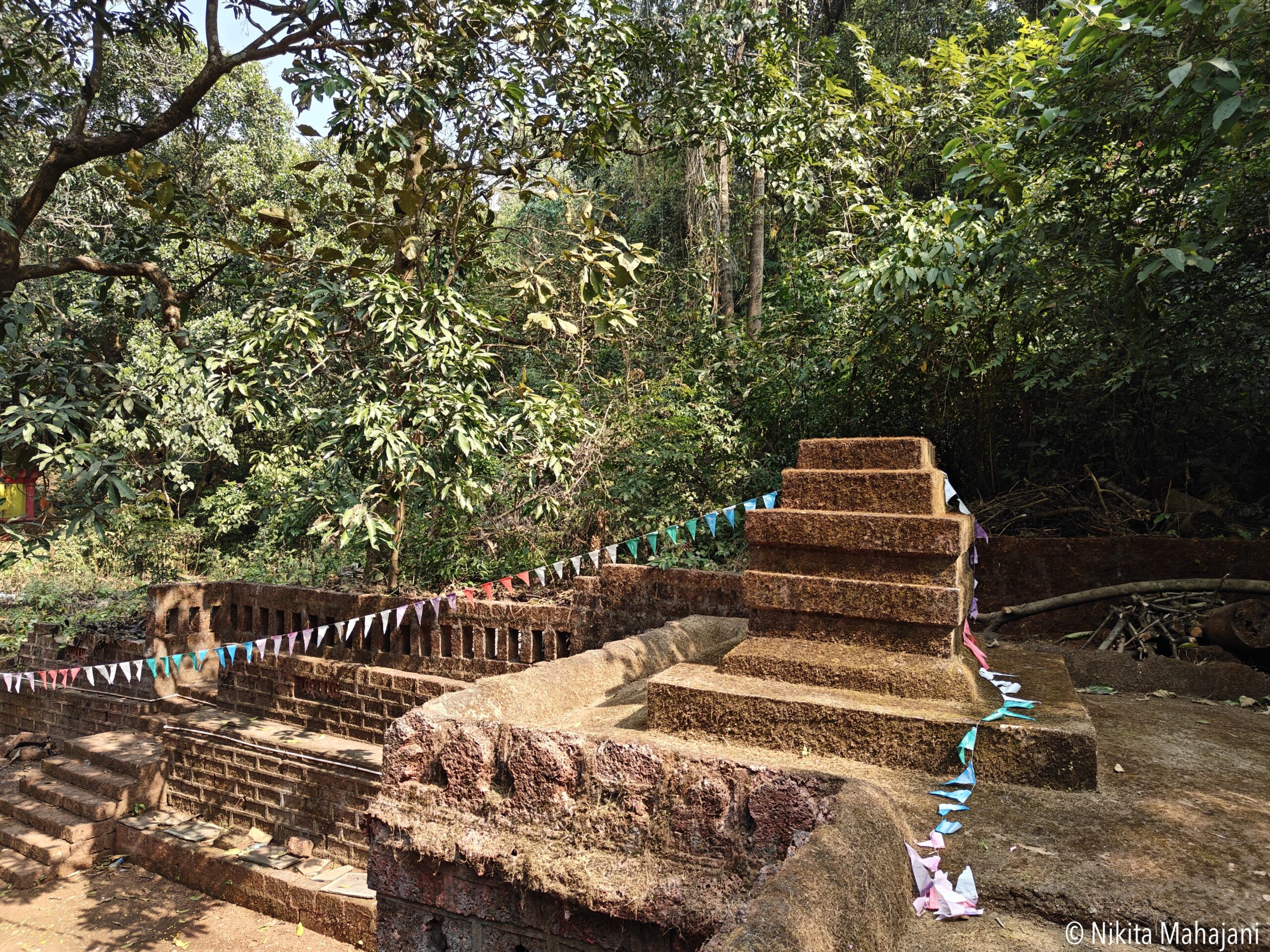
After a drive of 20mins, we reached Shri Karneshwar Temple in Kasba Sapteshwar. There is parking and washroom facility available. I just parked my car in the open space in front of the adjacent Shree Laxmi Nrusinha Mandir. Pets are allowed in the premises of the temple but not inside the temple. The temple has beautiful carvings depicting Ashtadikpals (gods of 8 directions), keertimukha, bharvaah devta, gadhegal, dashaavtar, dwarpals, etc. The plinth of the temple is star shaped like the Hoysala temples. The shikhar of the temple is built in the Shekhari stye.
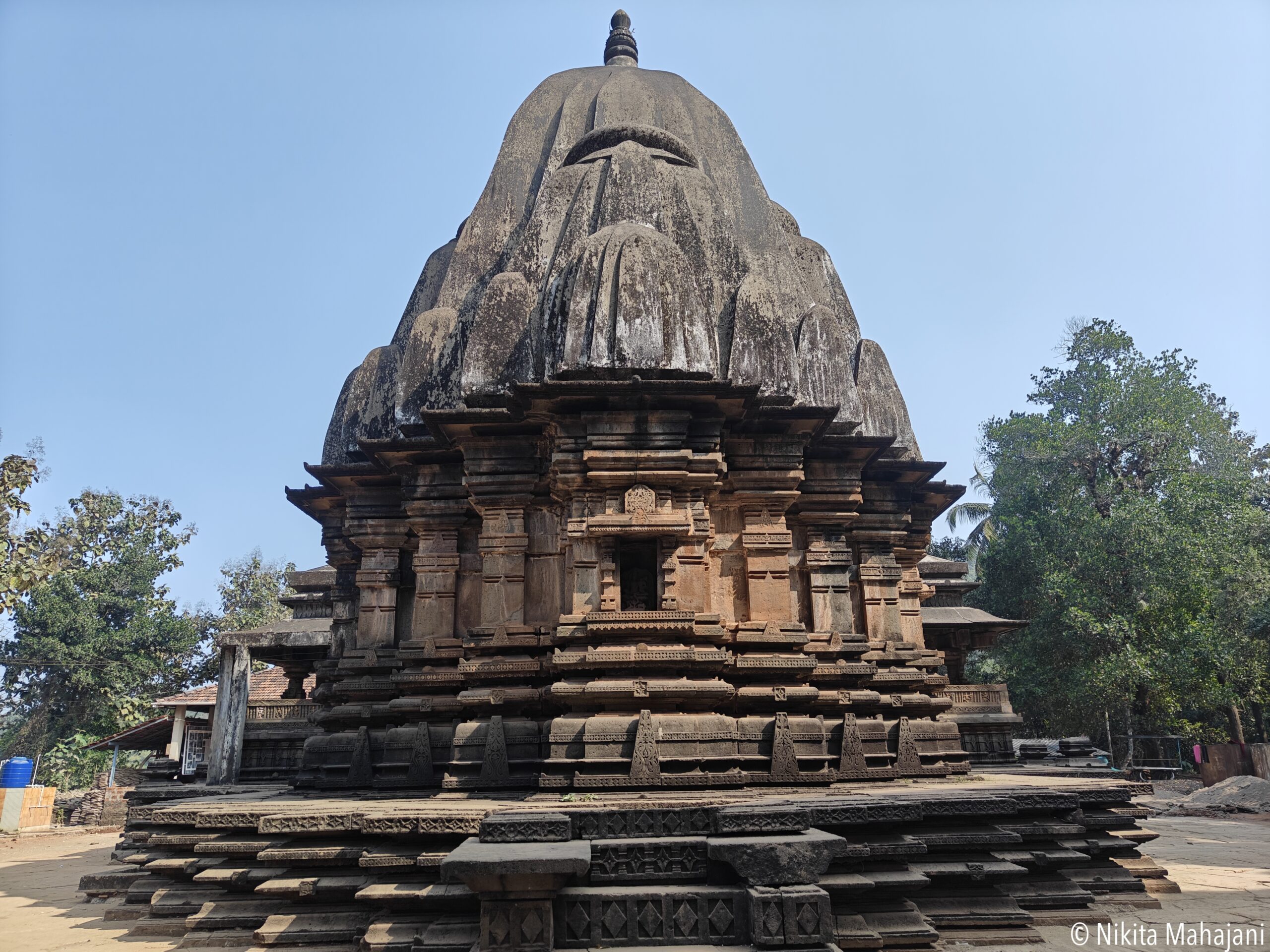
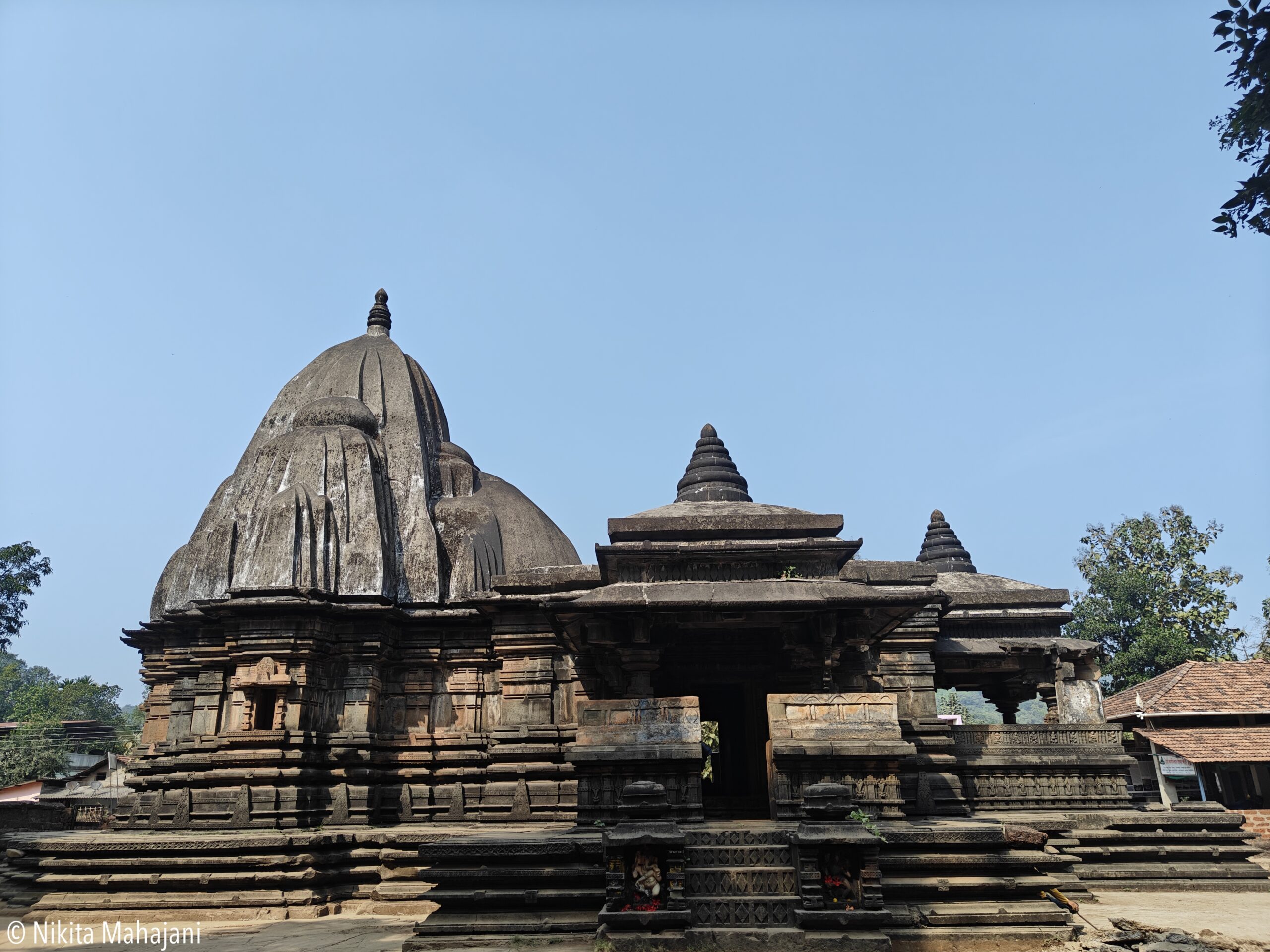
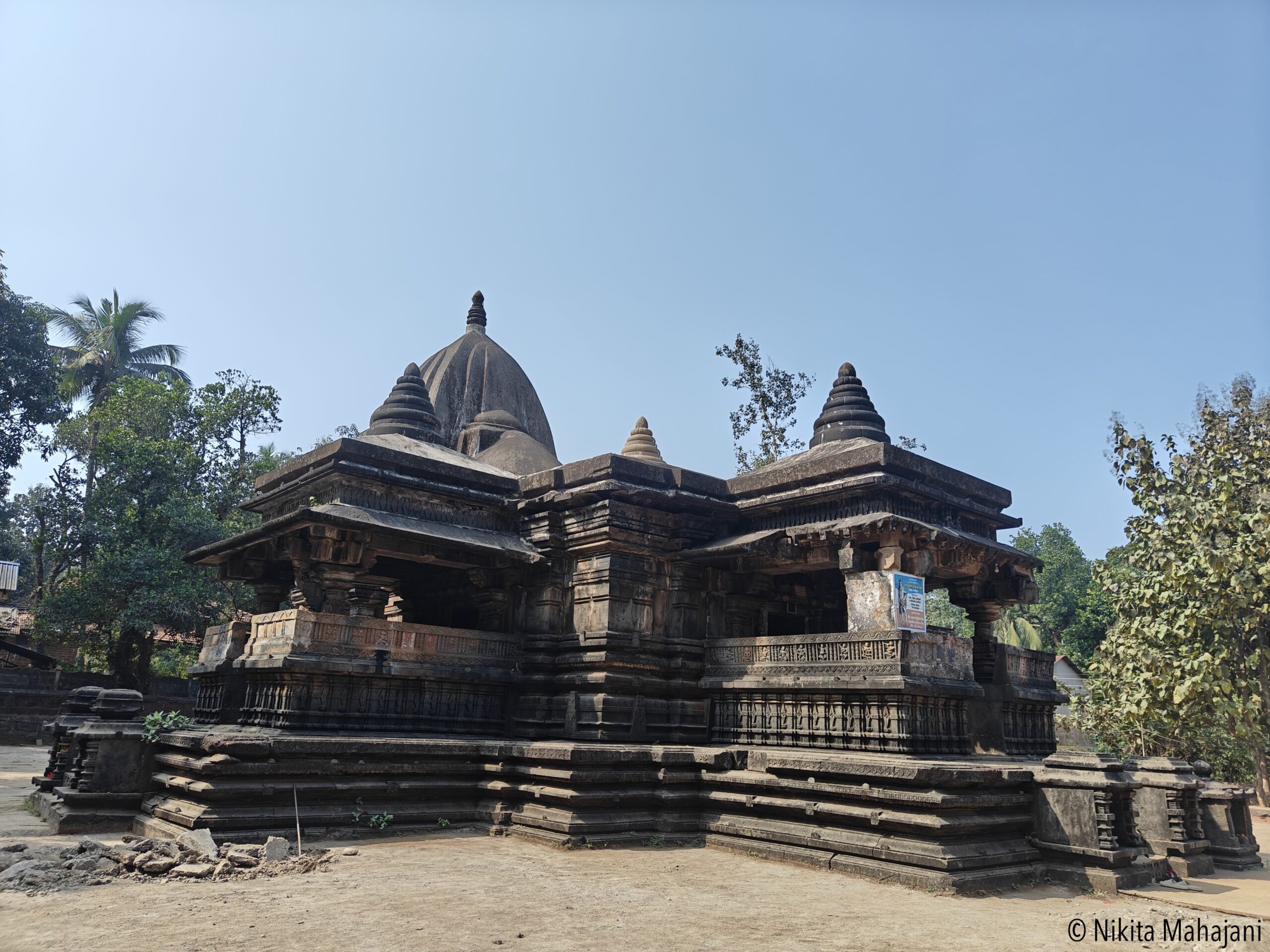
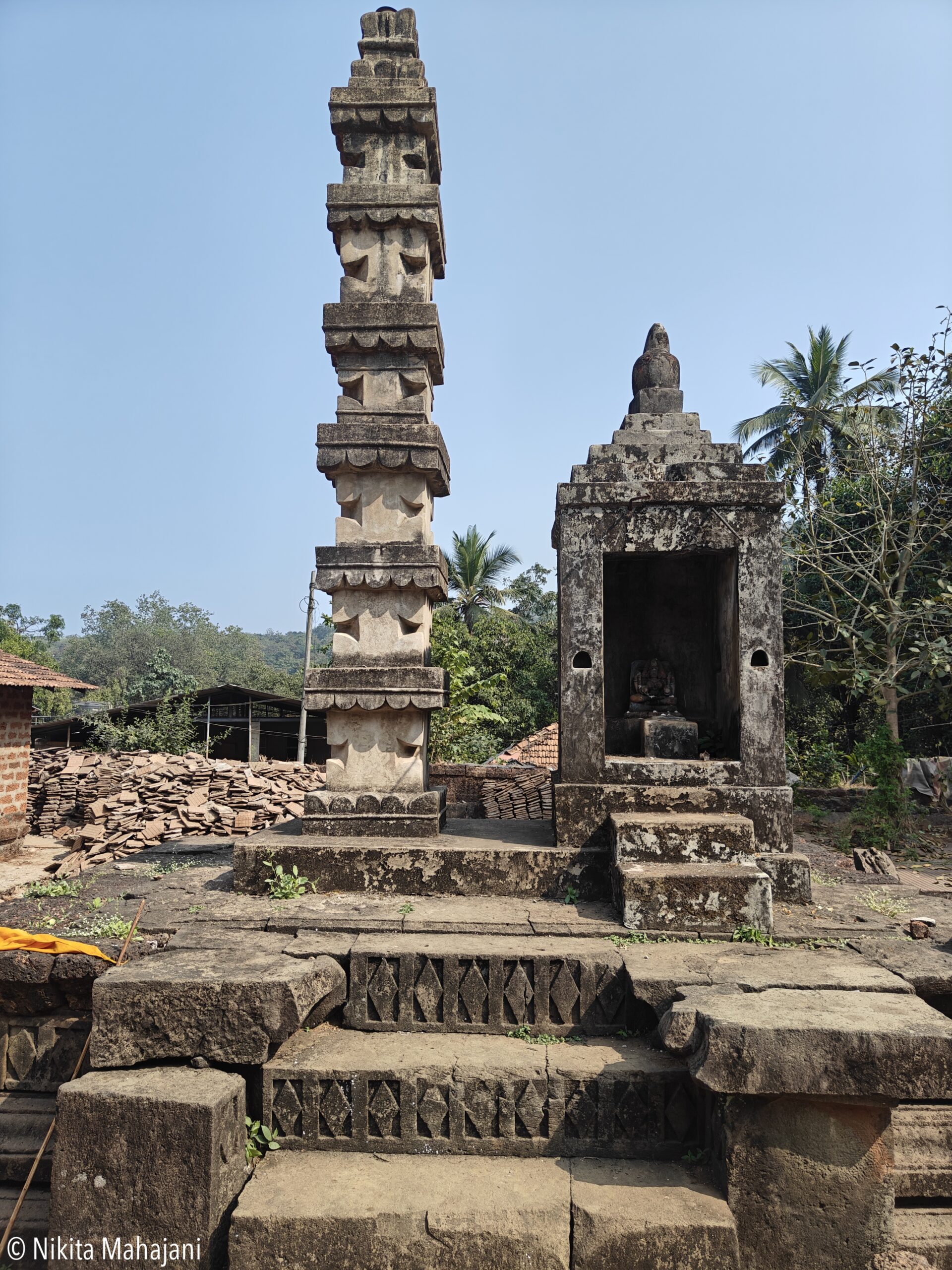
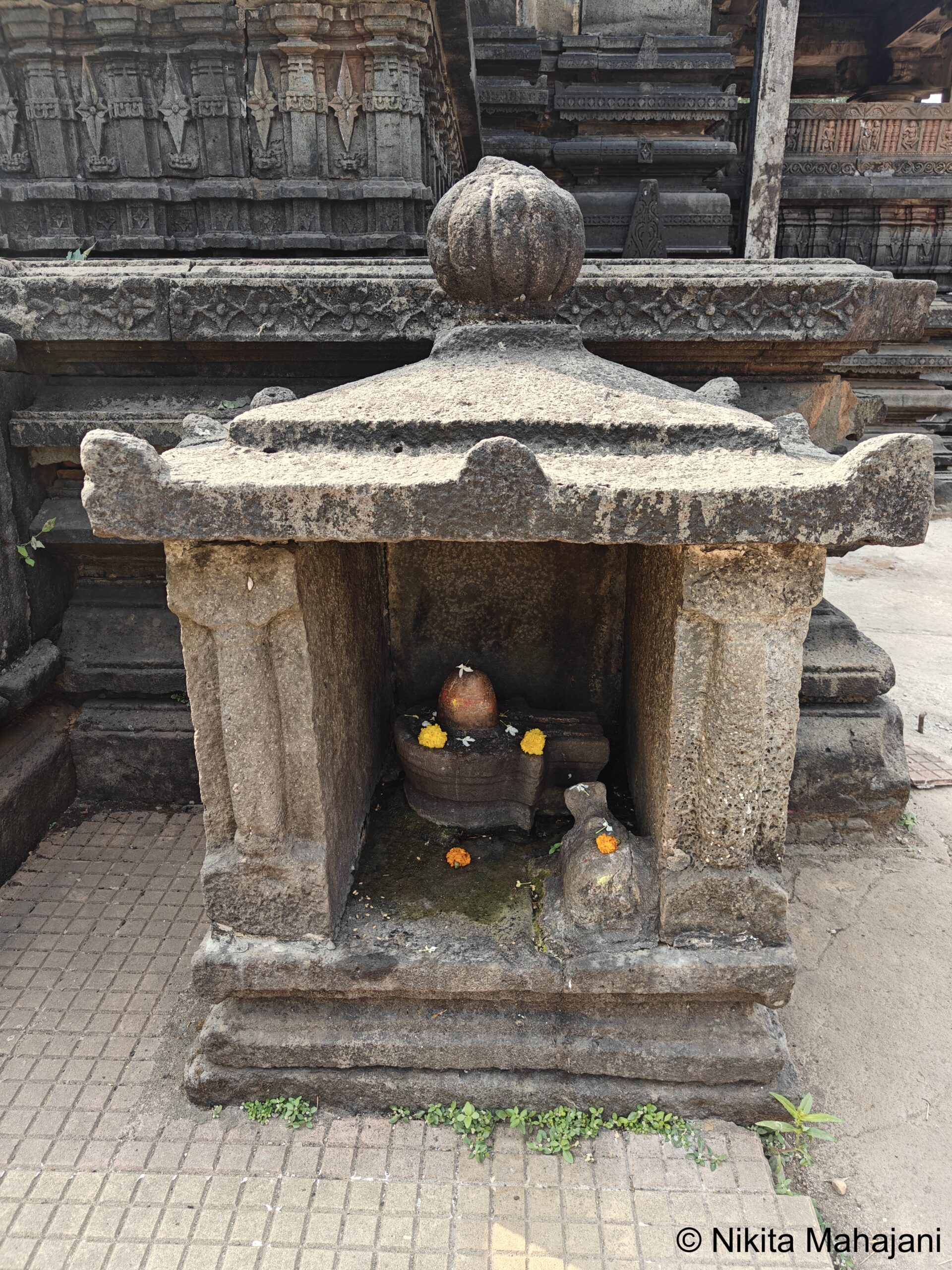
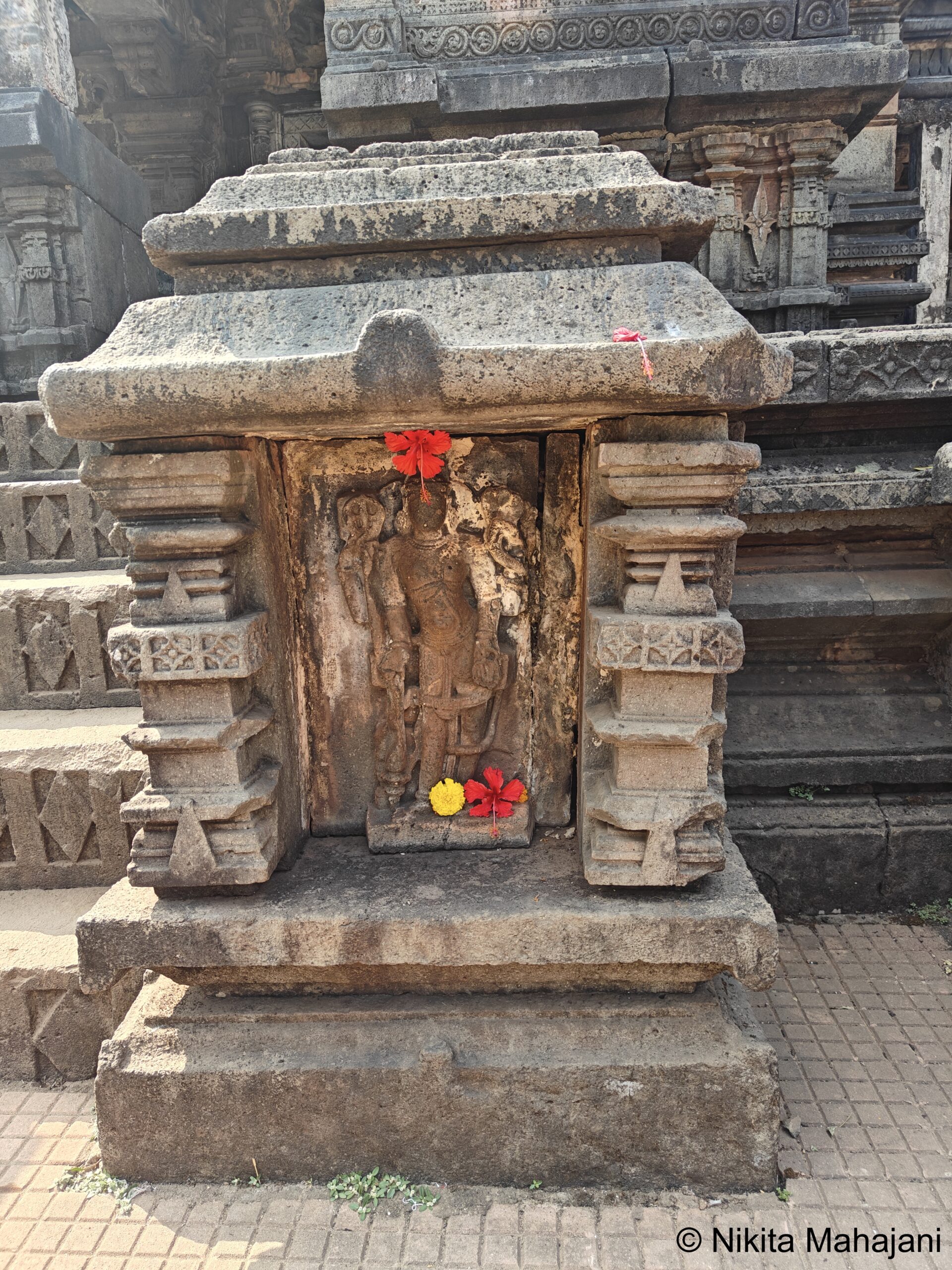
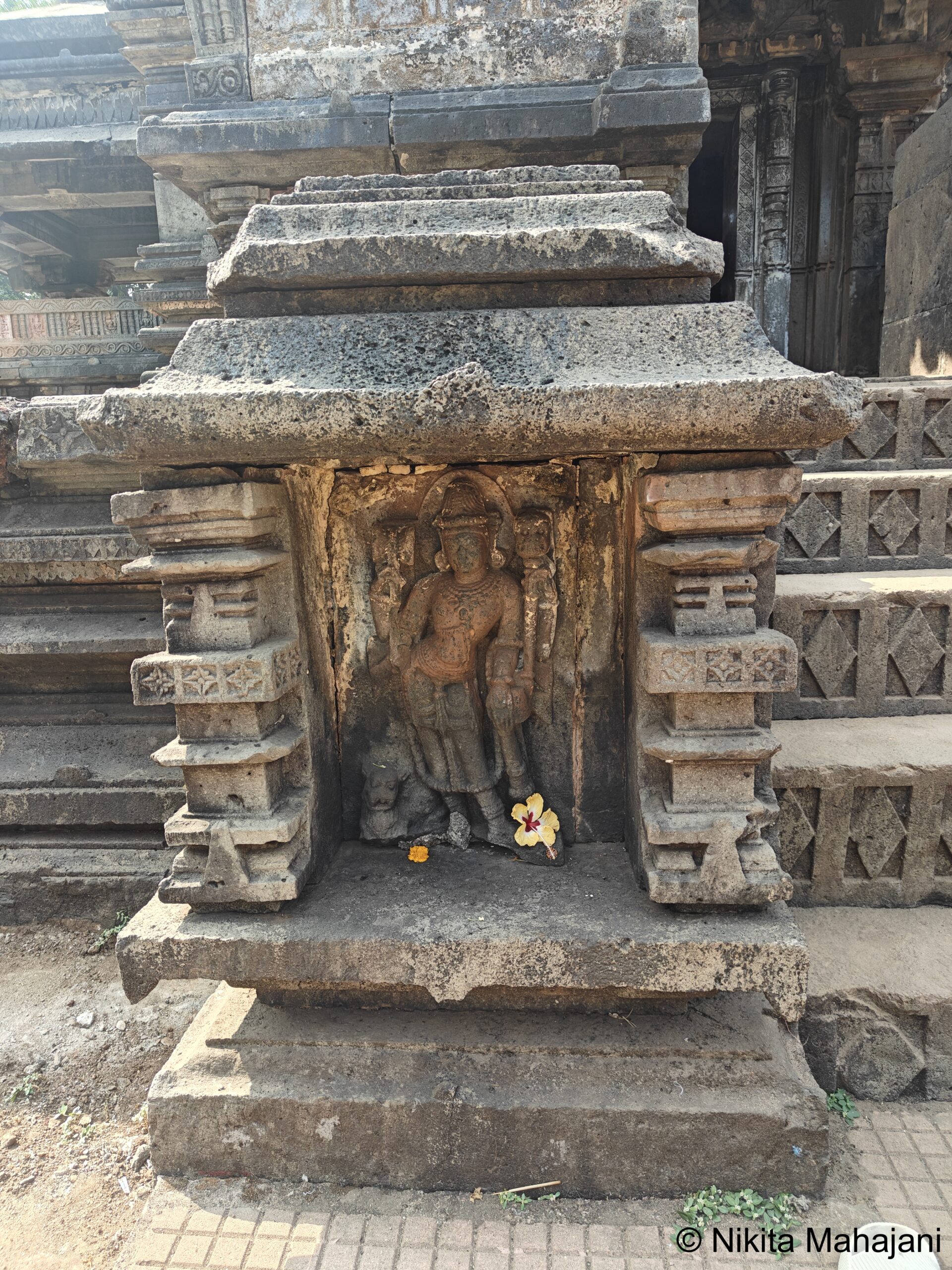
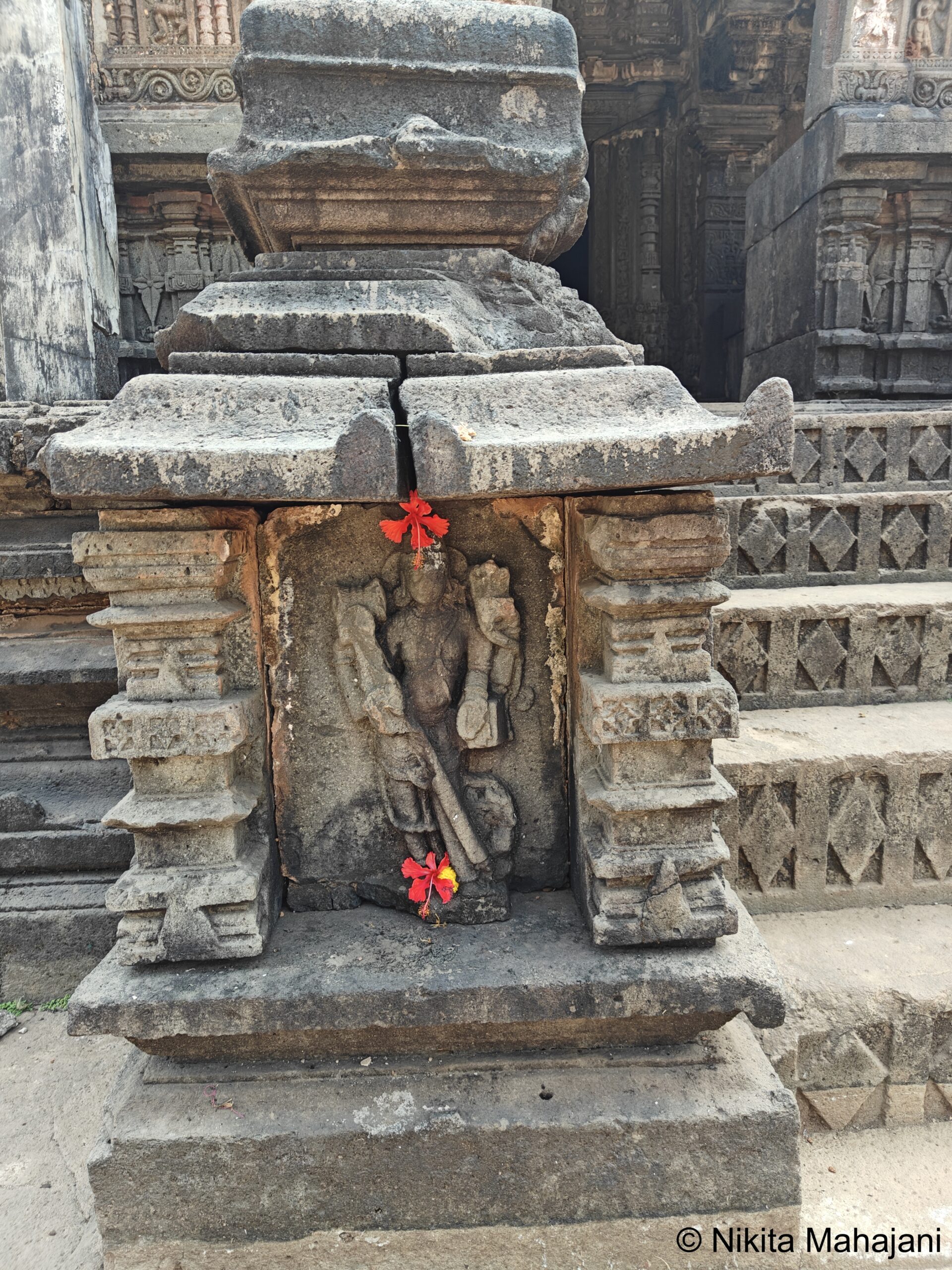
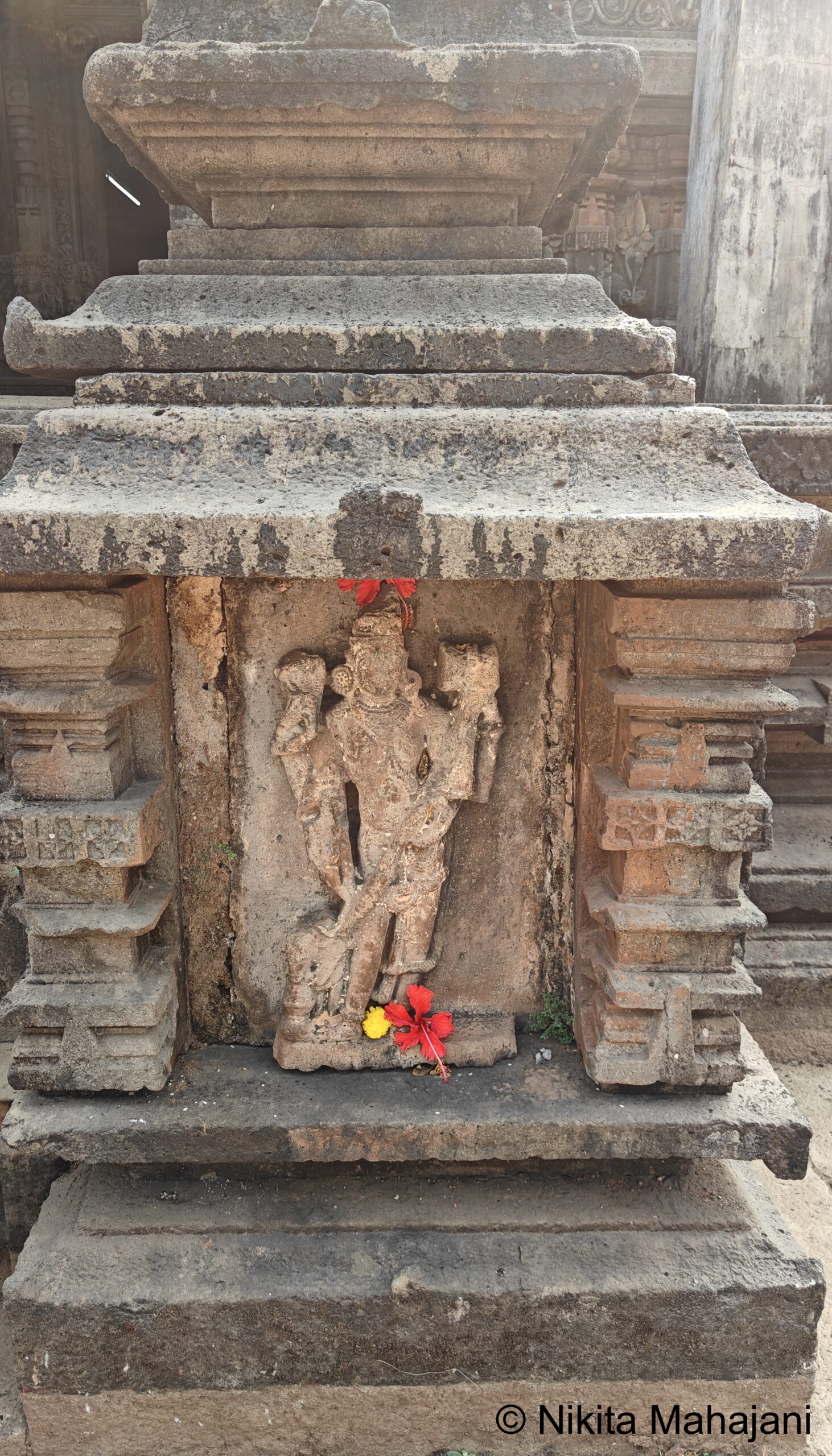
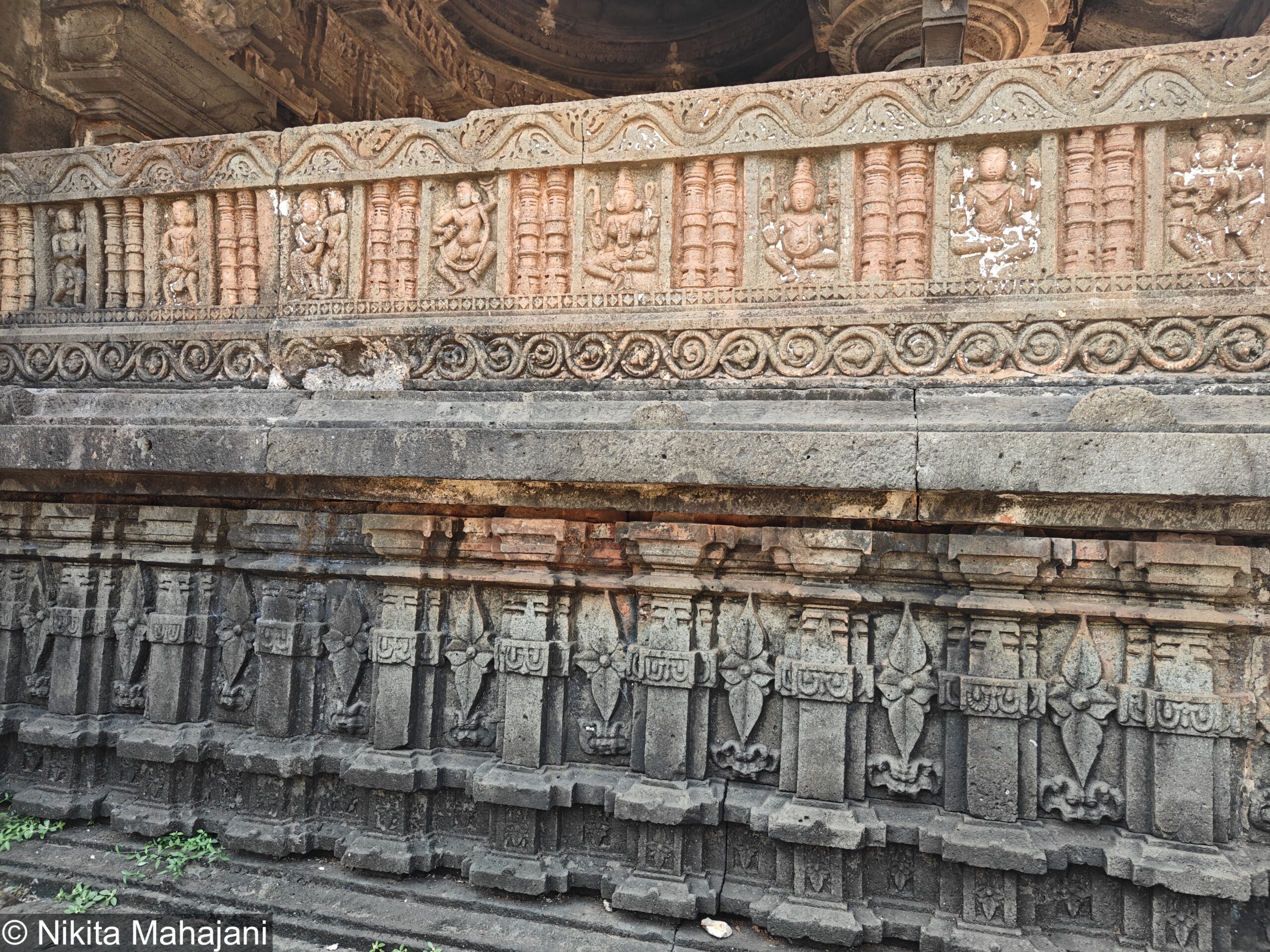
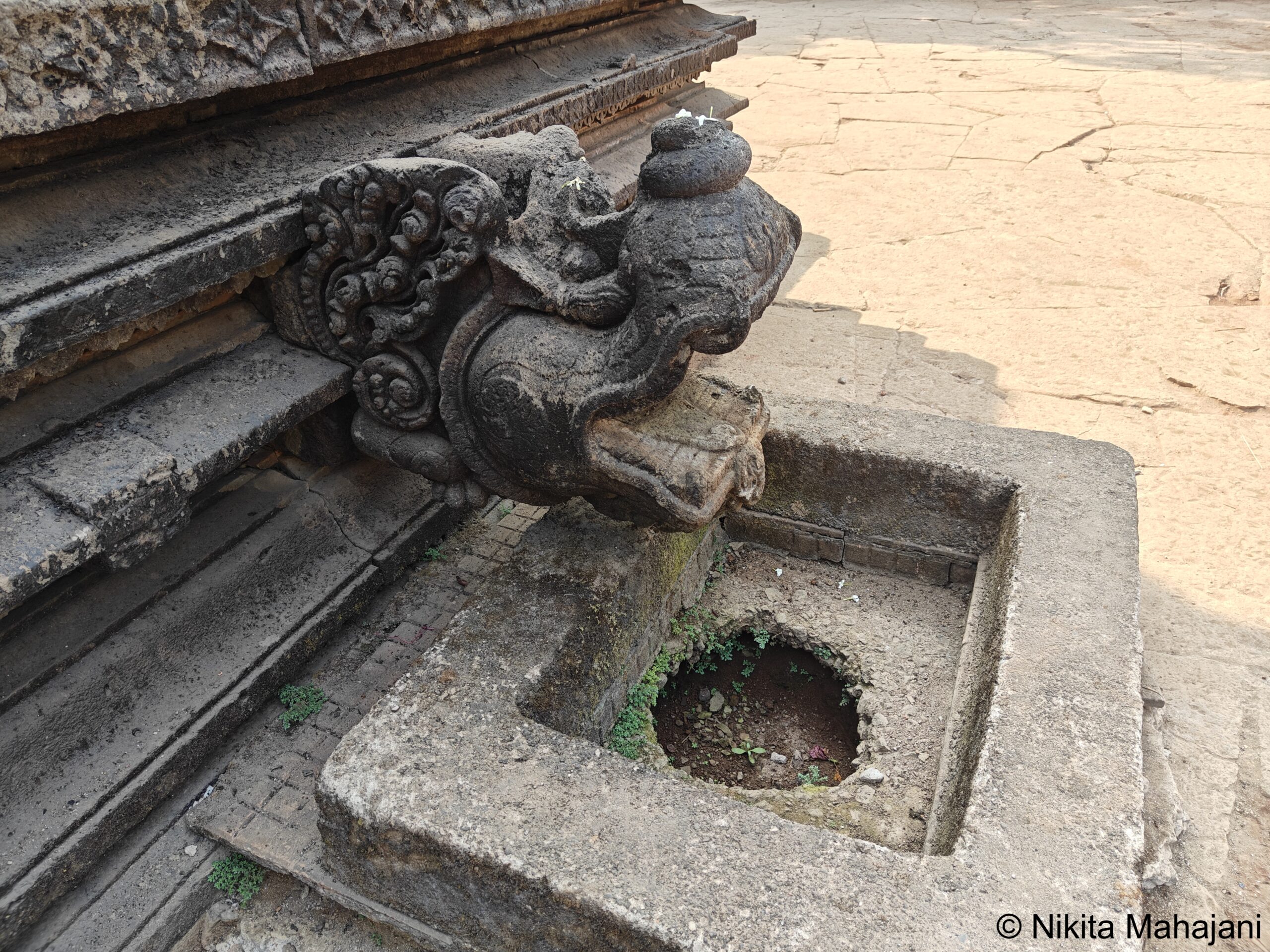
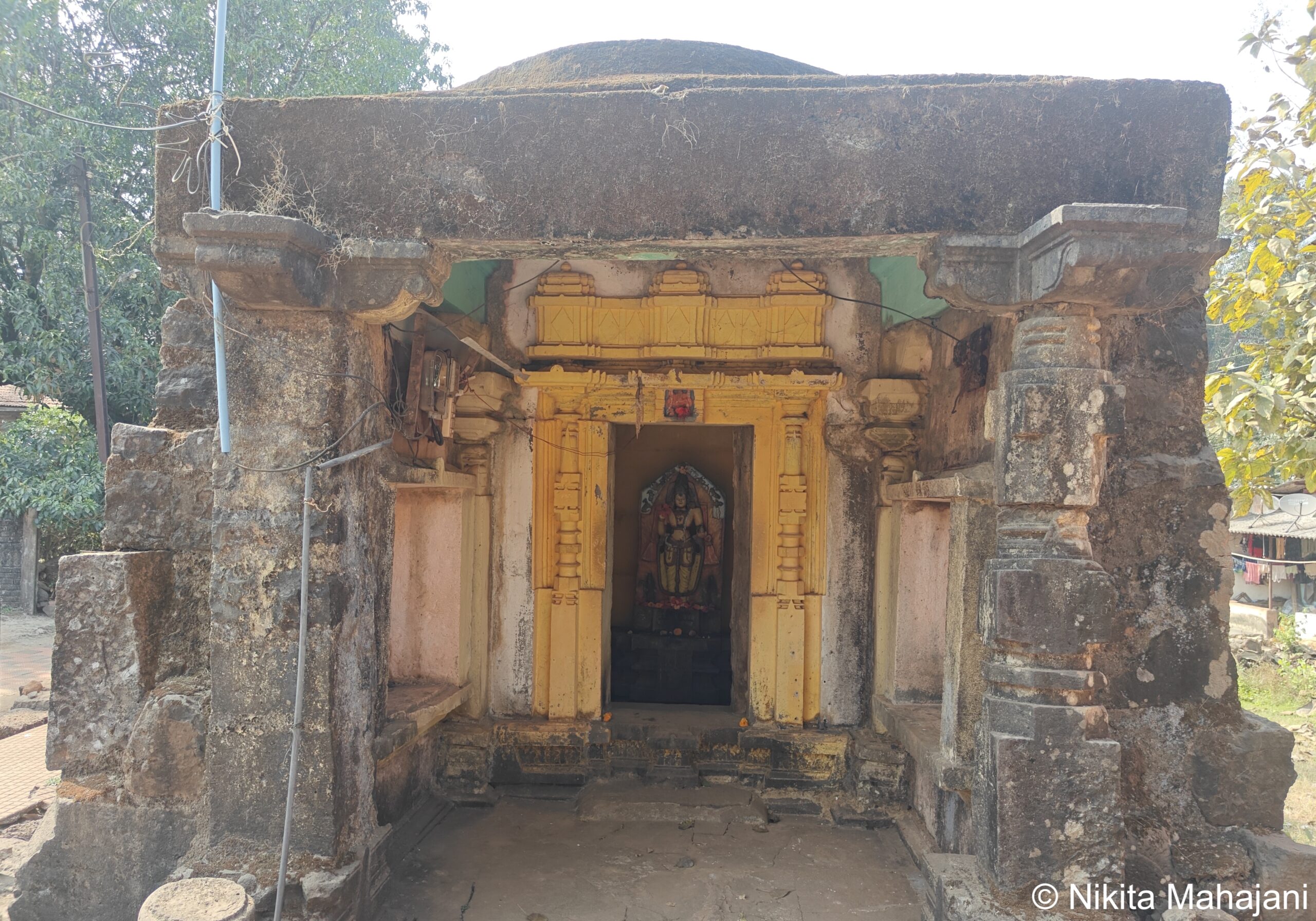
The Sangameshwar temple is situated at a 2 mins walking distance from Karneshwar temple. One needs to cross a pedestrian bridge to reach the Sangameshwar temple. It is constructed on the banks of a stream that begins from Umare Dam. There are some ghats (stepped seating) next to the temple.
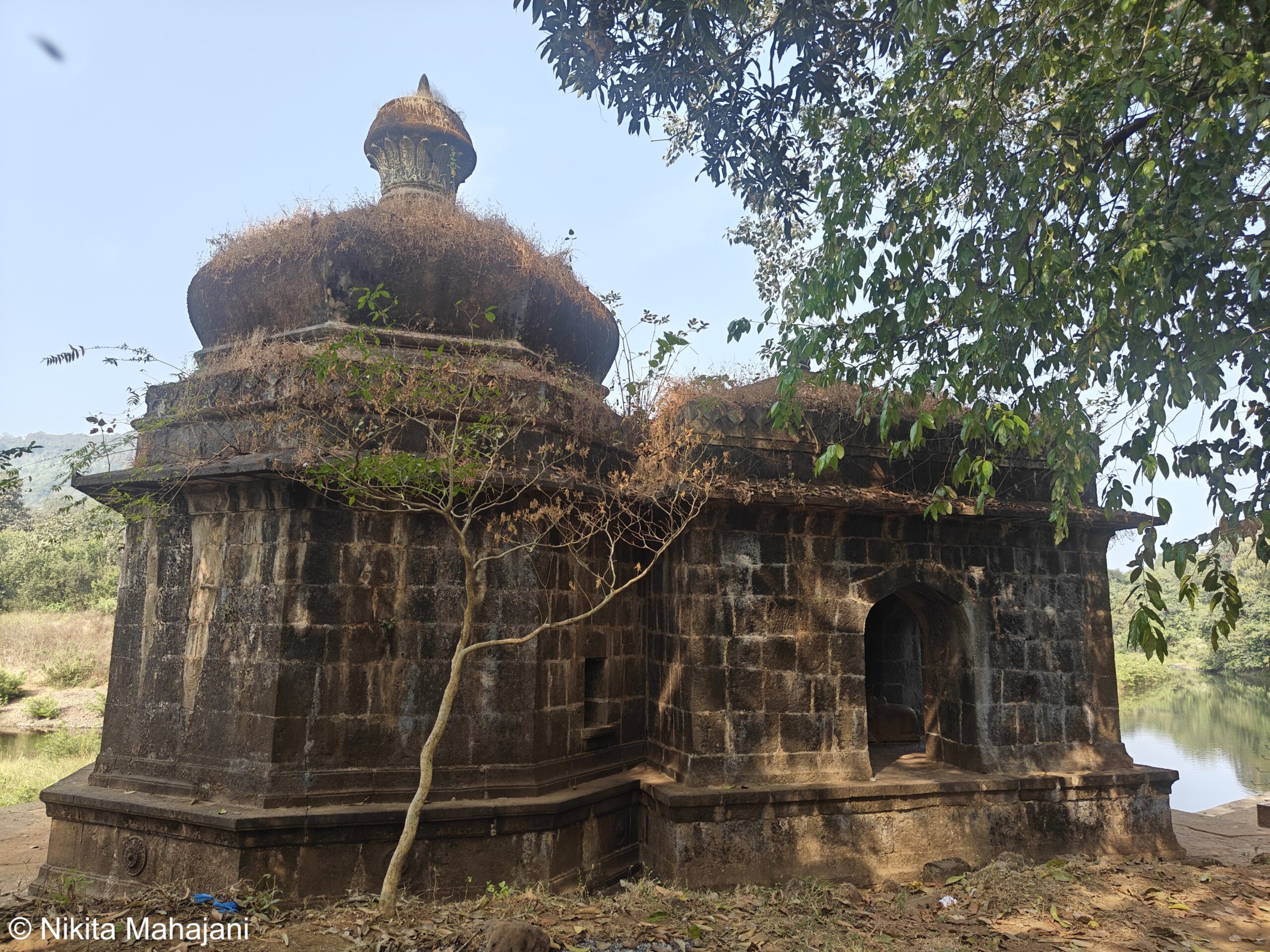
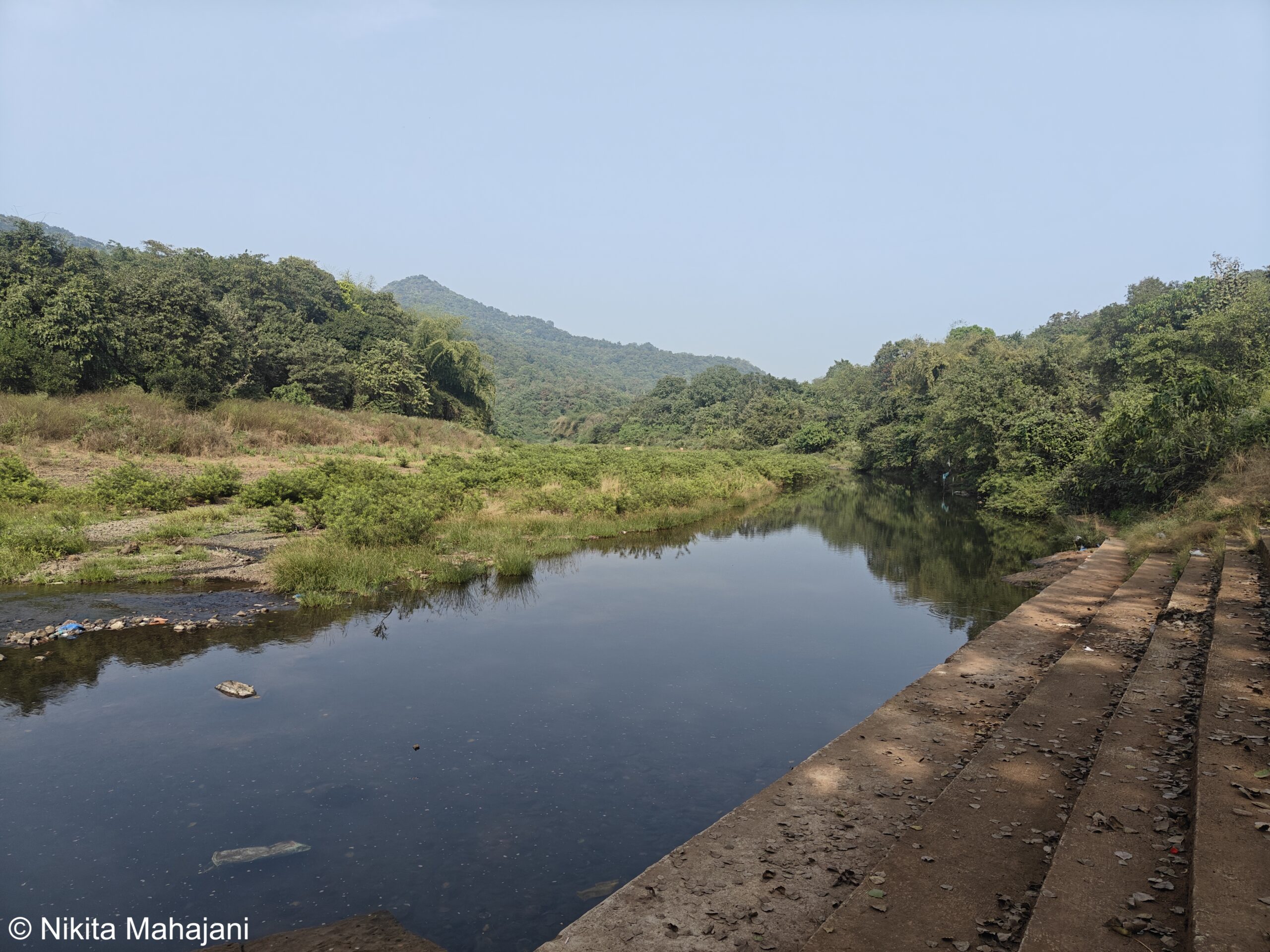
The highlight of the day was discovering three hidden Shiva Temples in a jungle near Sardesai Wada—a serene experience perfect for Sophie’s exploratory spirit. The site is in a state of ruin, with no informational boards or signage. Hidden deep within the forest behind Sardesai Wada are three ancient temples. A friendly black stray dog guided us through the dense greenery to reach them. These historic temples are best visited in winter or summer, as heavy monsoon rains make access challenging.
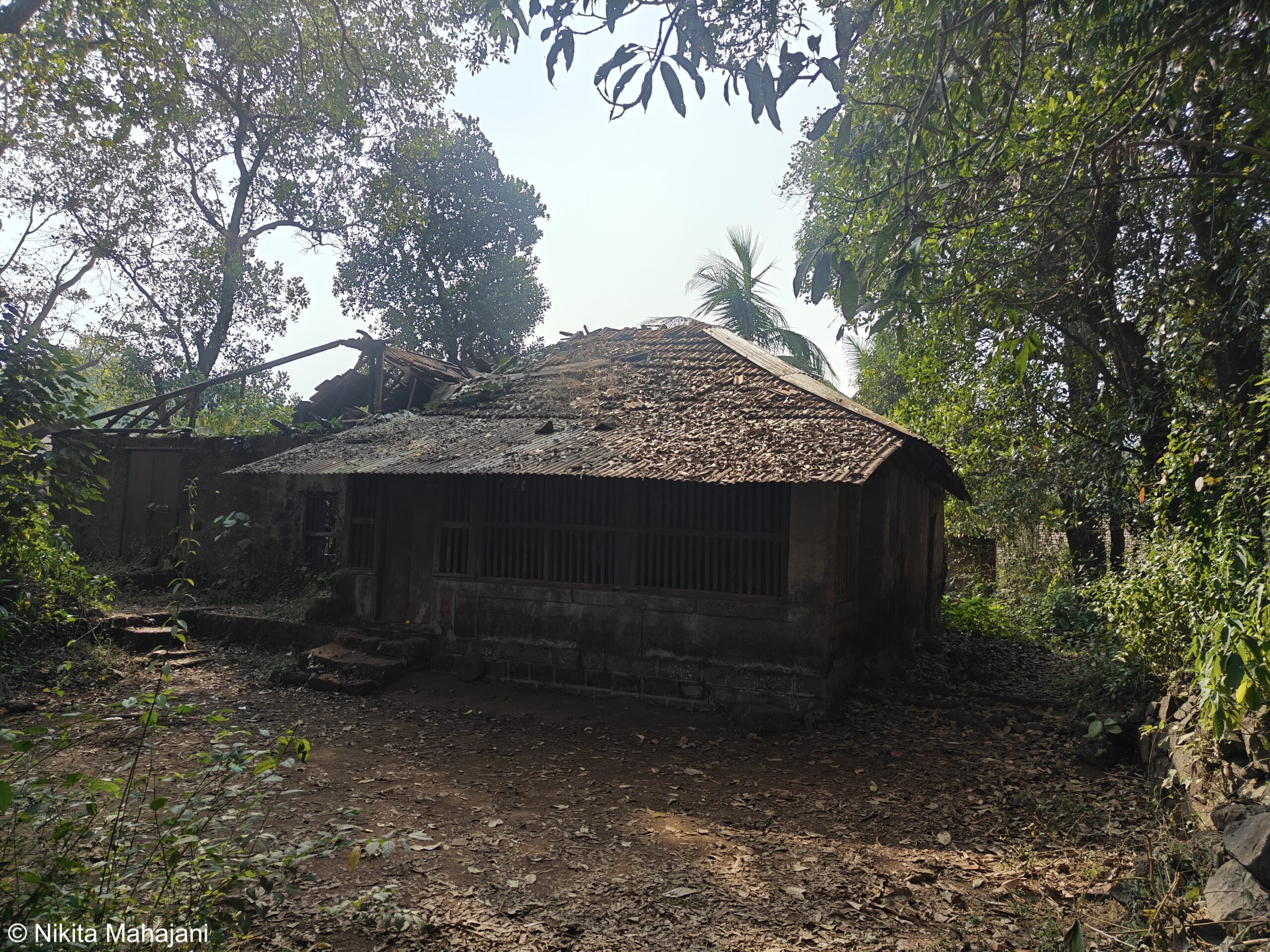
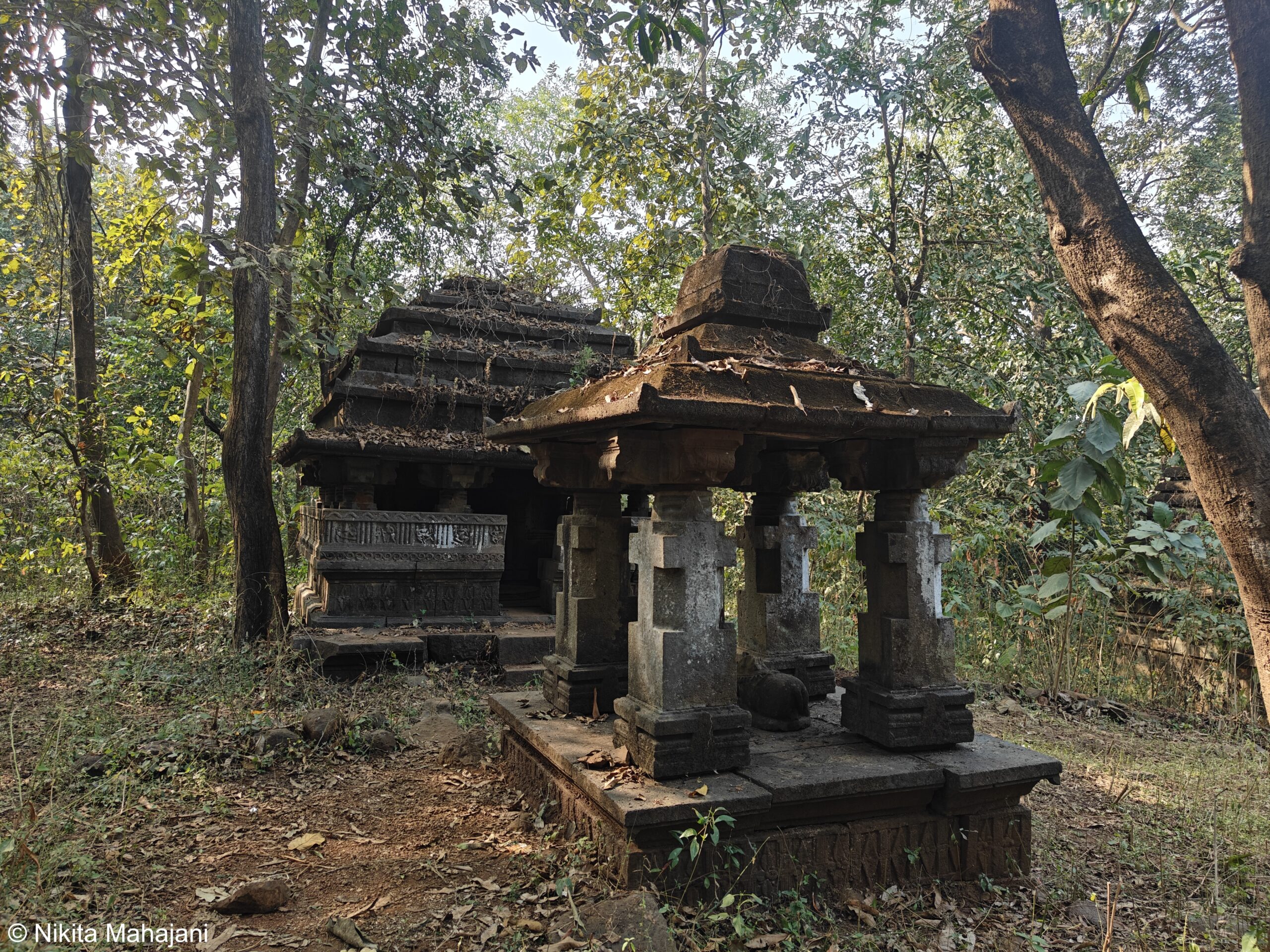
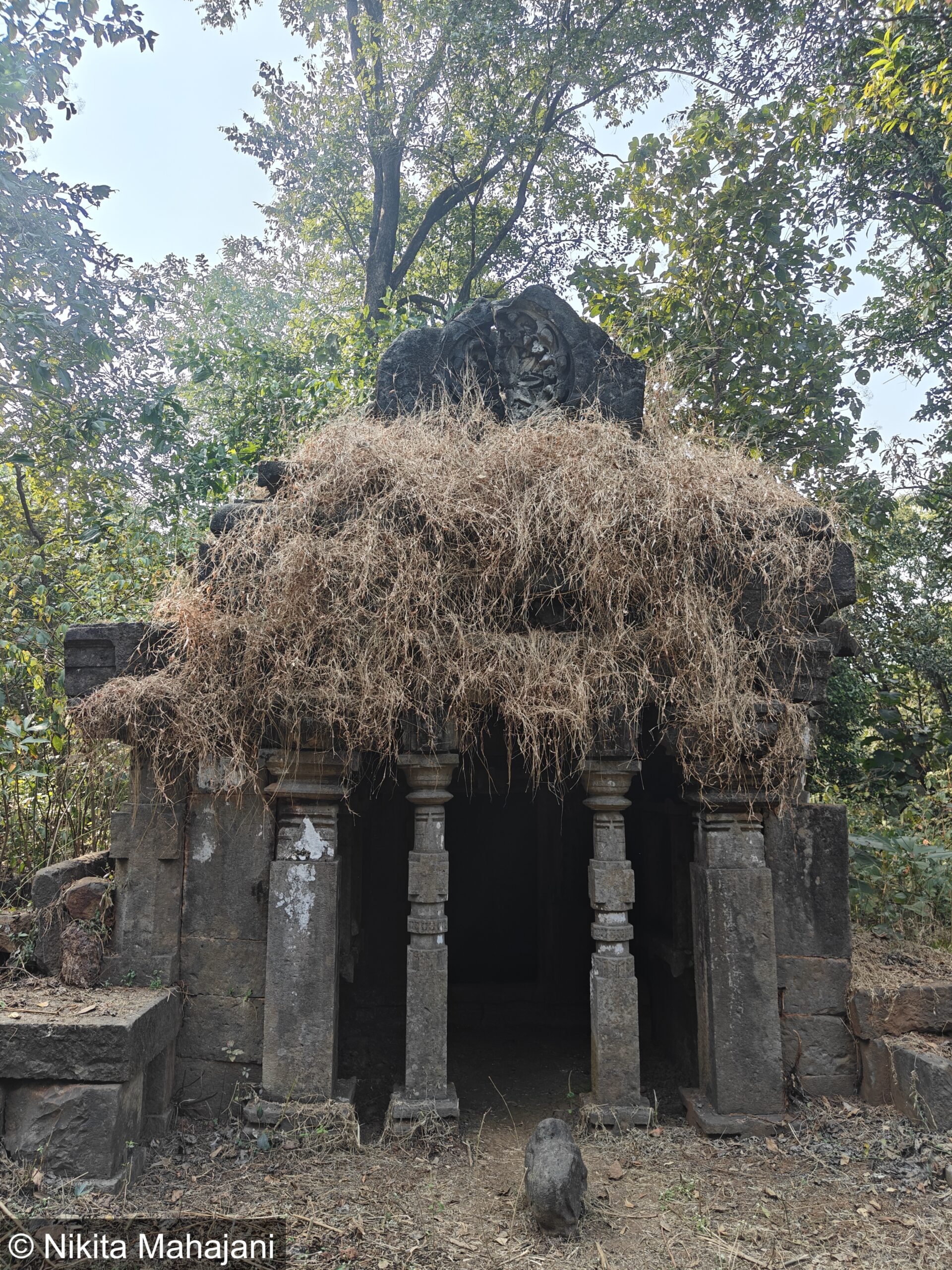
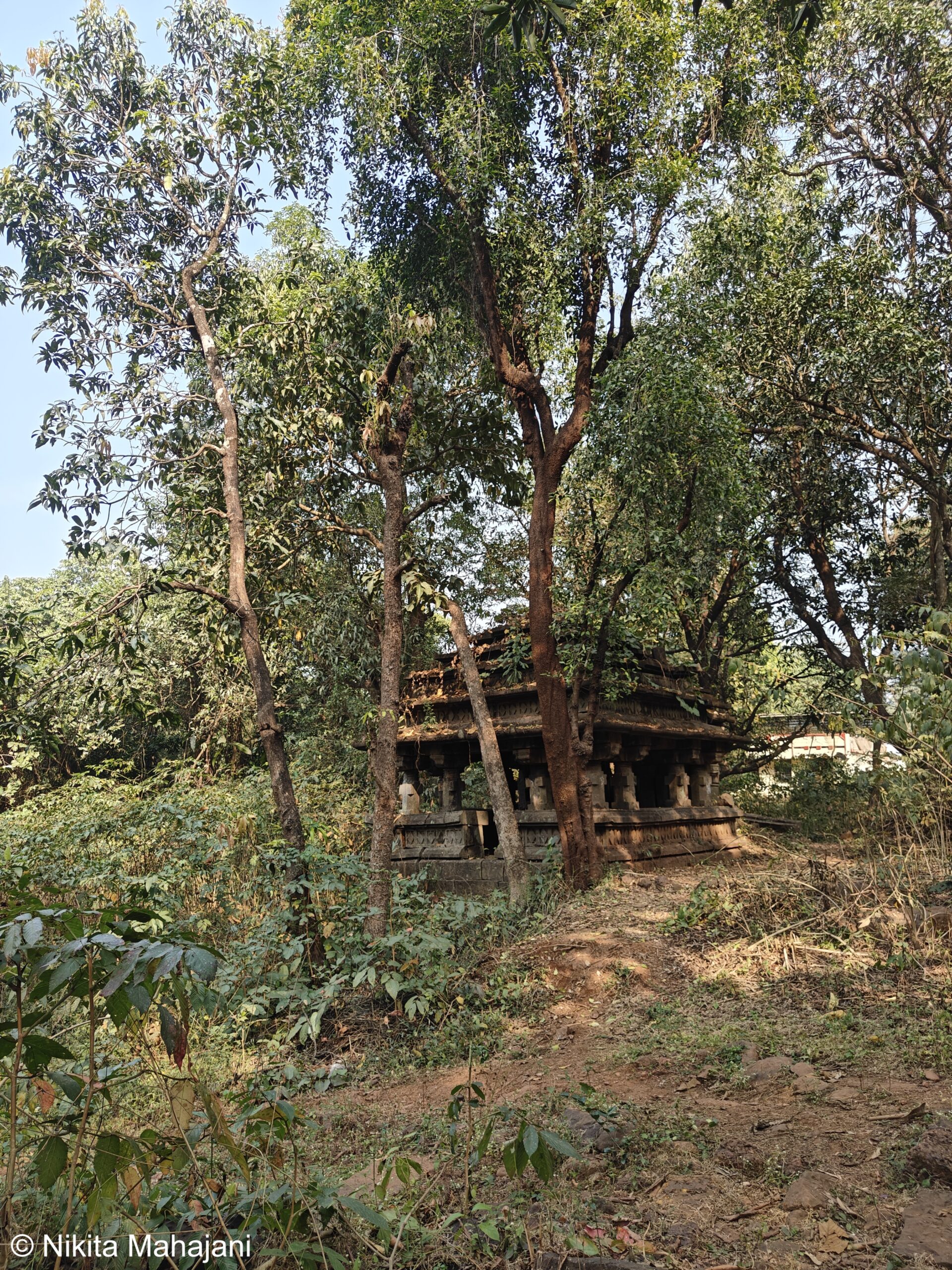
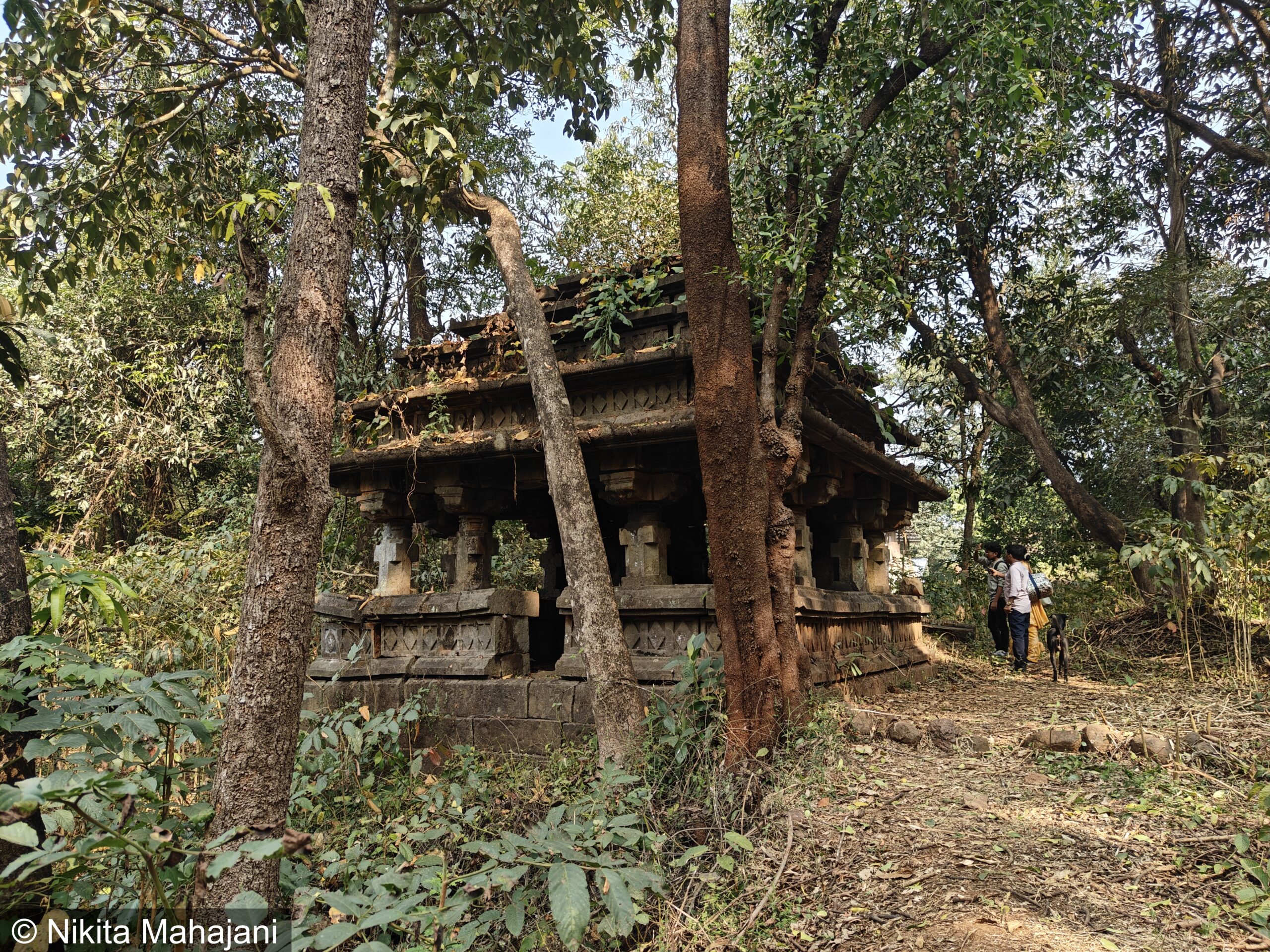
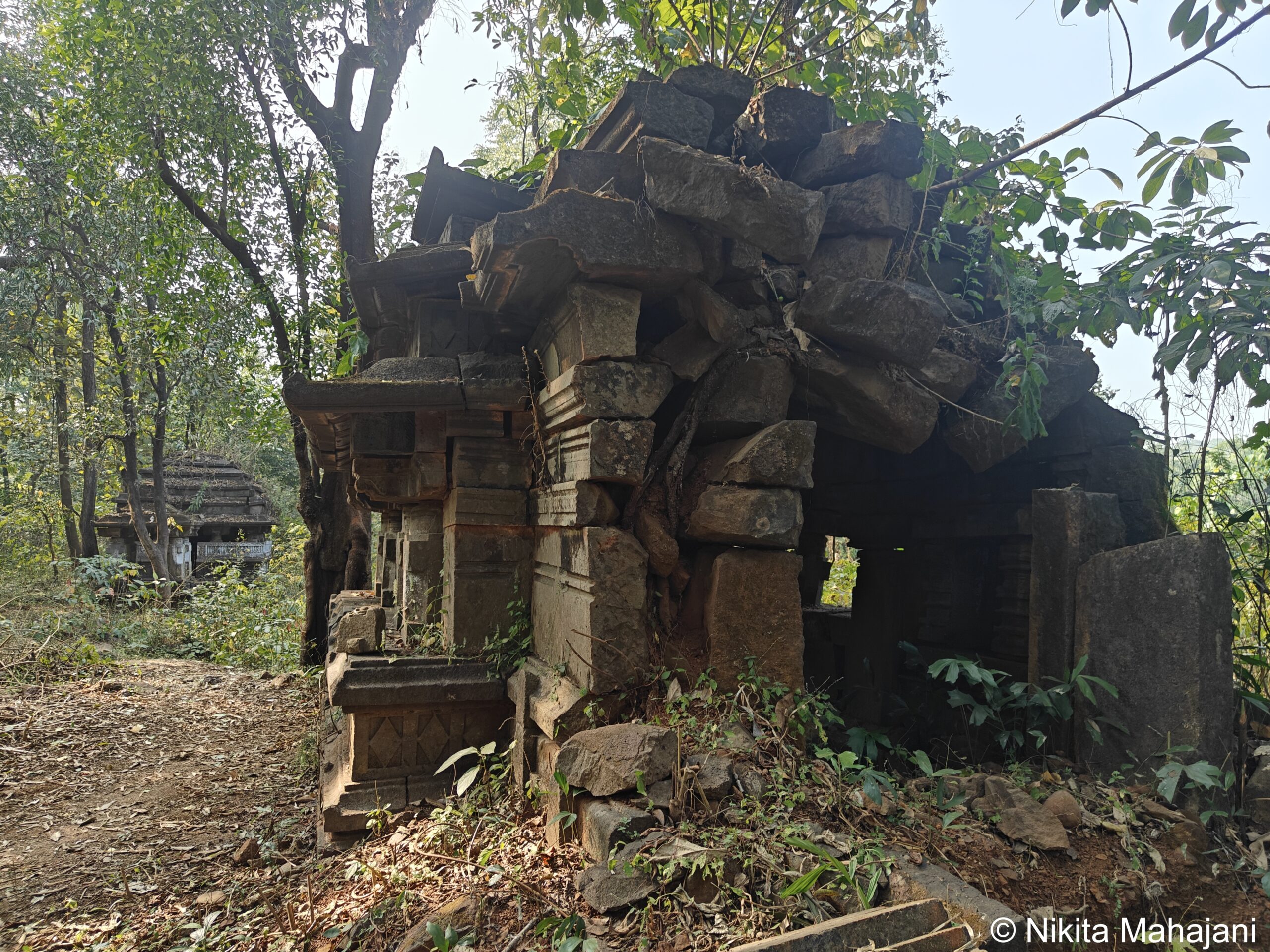
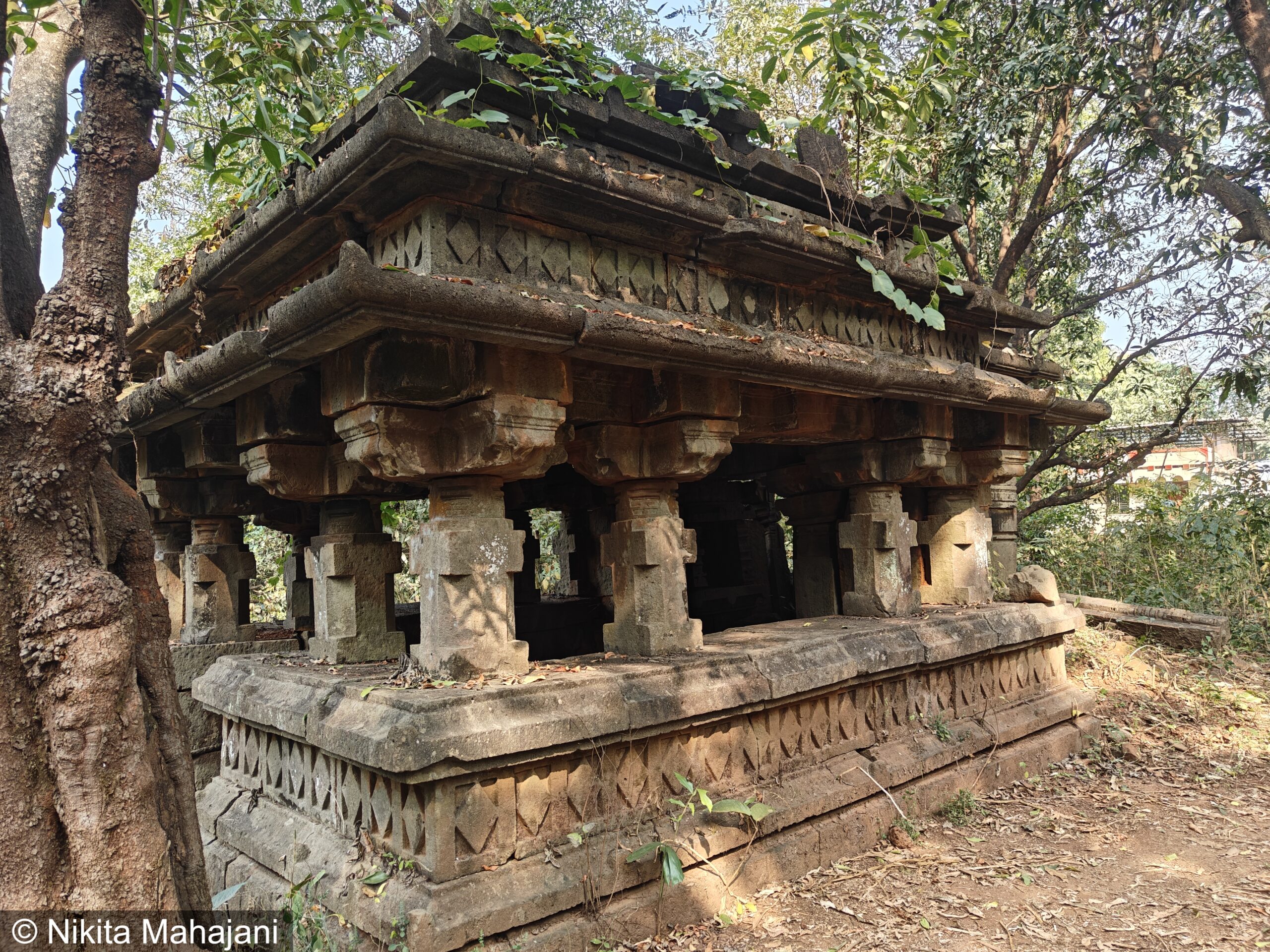
The next couple of temples that we visited are half kilometer away from Sardesai wada. The Someshwar Temple and the nearby Kashi Vishweshwar Temple are among the most stunning temples in Kasaba, reflecting the grandeur of our glorious past. Unfortunately, they are in a dilapidated and precarious state, making it unsafe to enter. Due to the marshy land surrounding the site, we couldn’t approach the temples closely. However, there is a large open space across the road where visitors can park their vehicles and admire the temples from a safe distance.
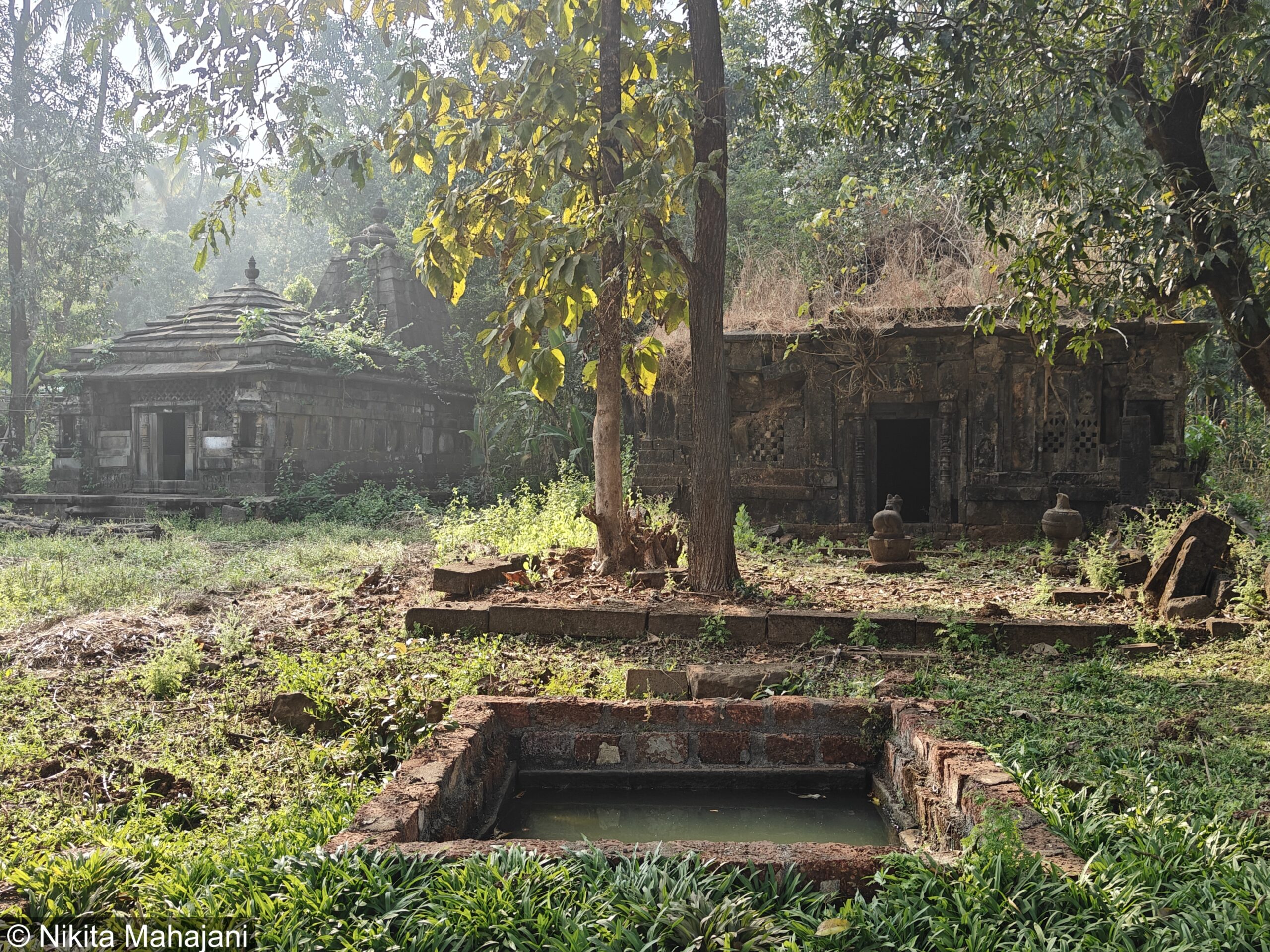
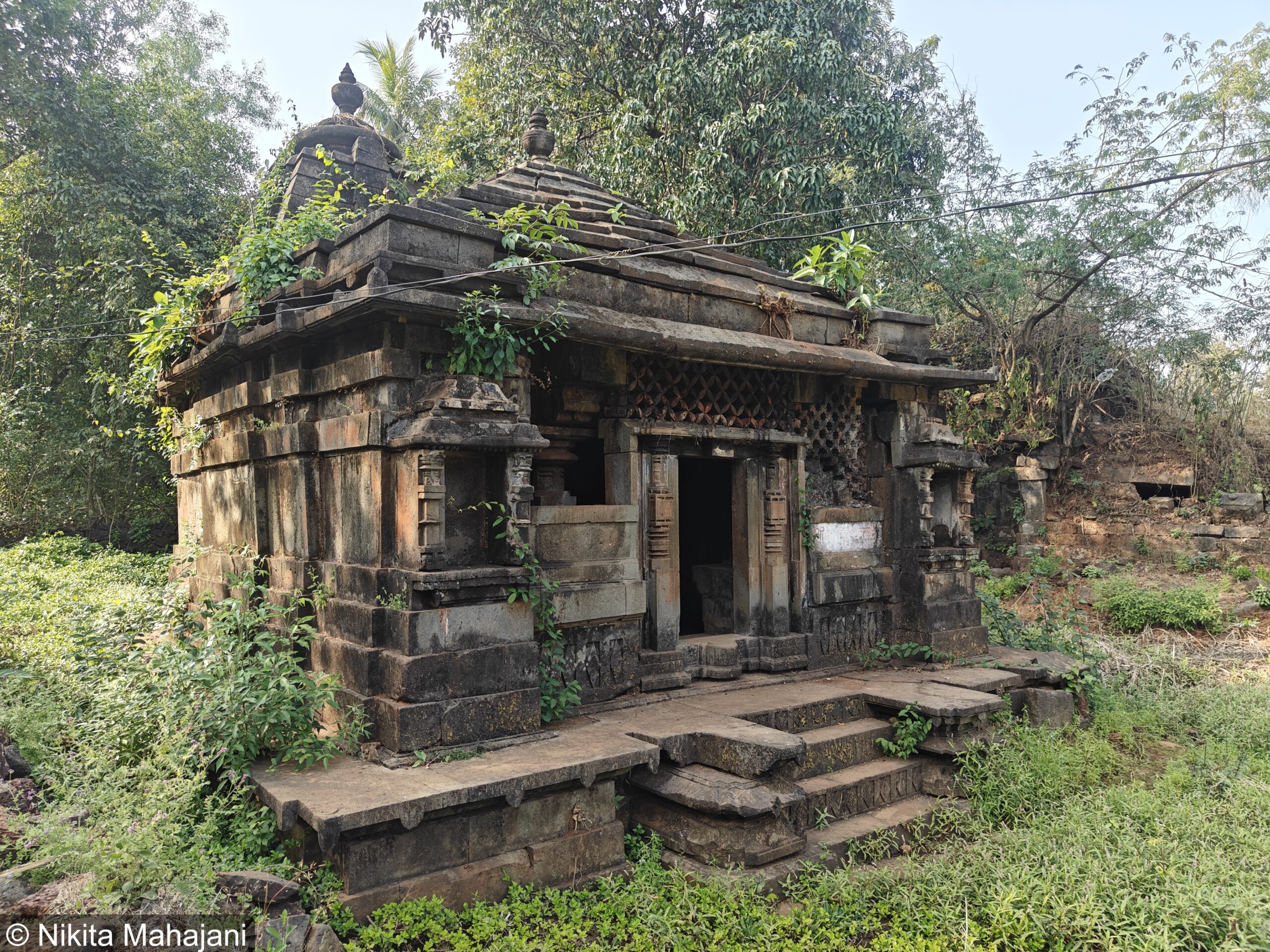
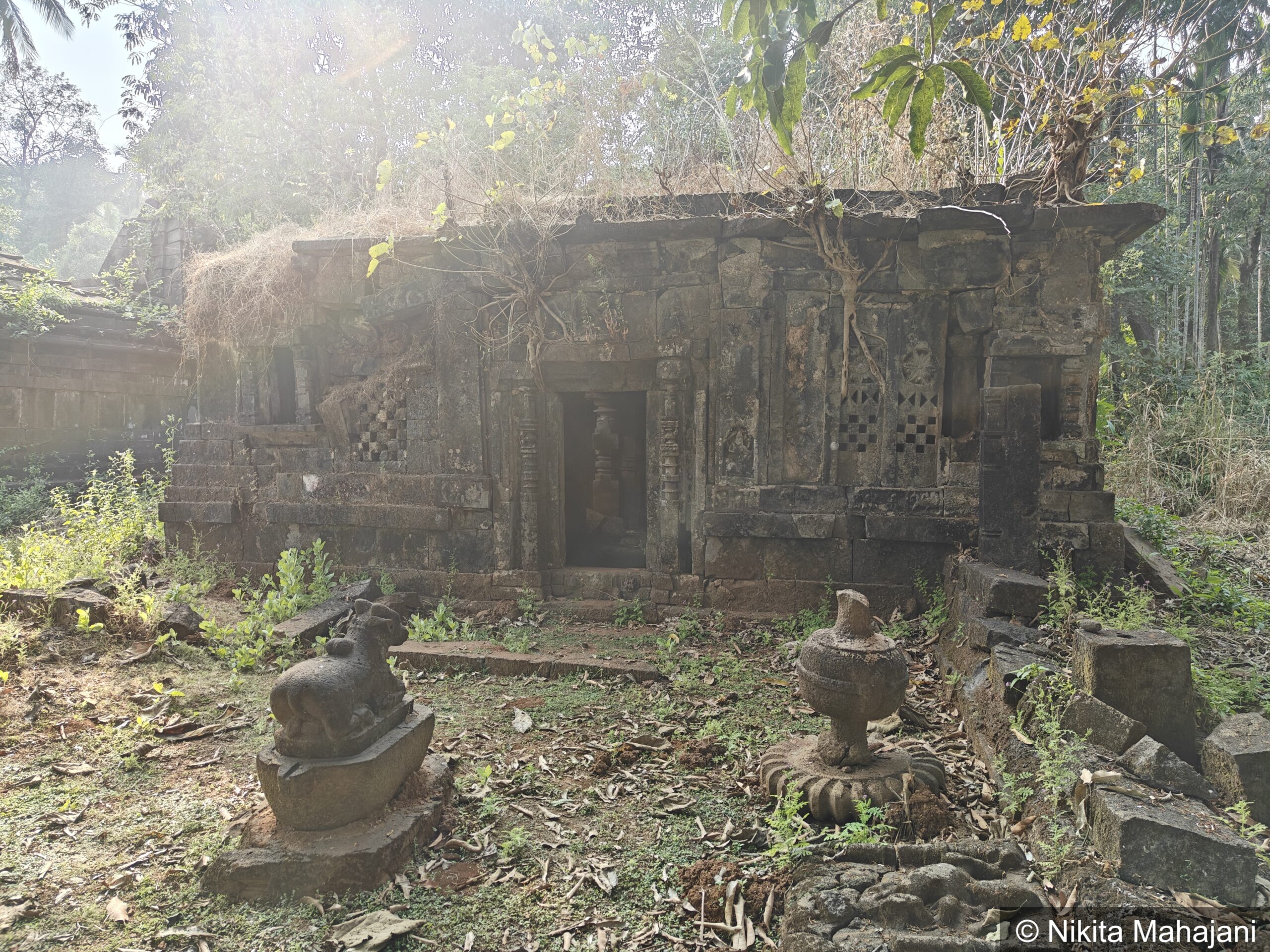
We returned to the resort for snacks and tea before heading to Bhatye Beach for sunset. Sophie’s excitement on the beach was contagious as we played fetch and enjoyed the waves.
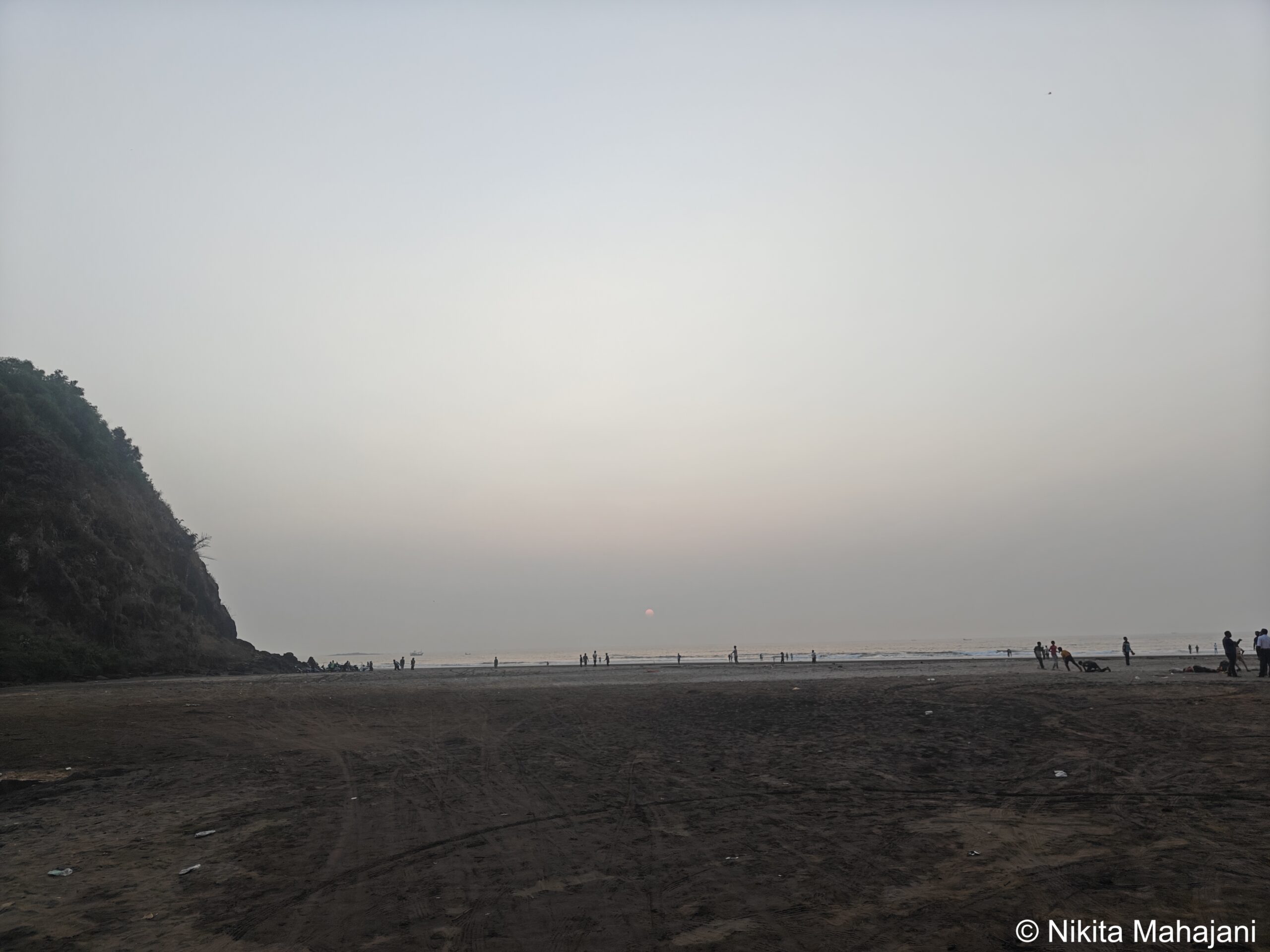
We came back to the resort so that Sophie could take some rest. As she slept at the resort, we went for a simple homemade pure veg dinner at Gogte Uphargruha , Tilak Ali and completed our eventful day. Pets are not allowed at Gogte Upharhruha. There are a lot of pure veg restaurants in Tilak Ali and on road parking is available.
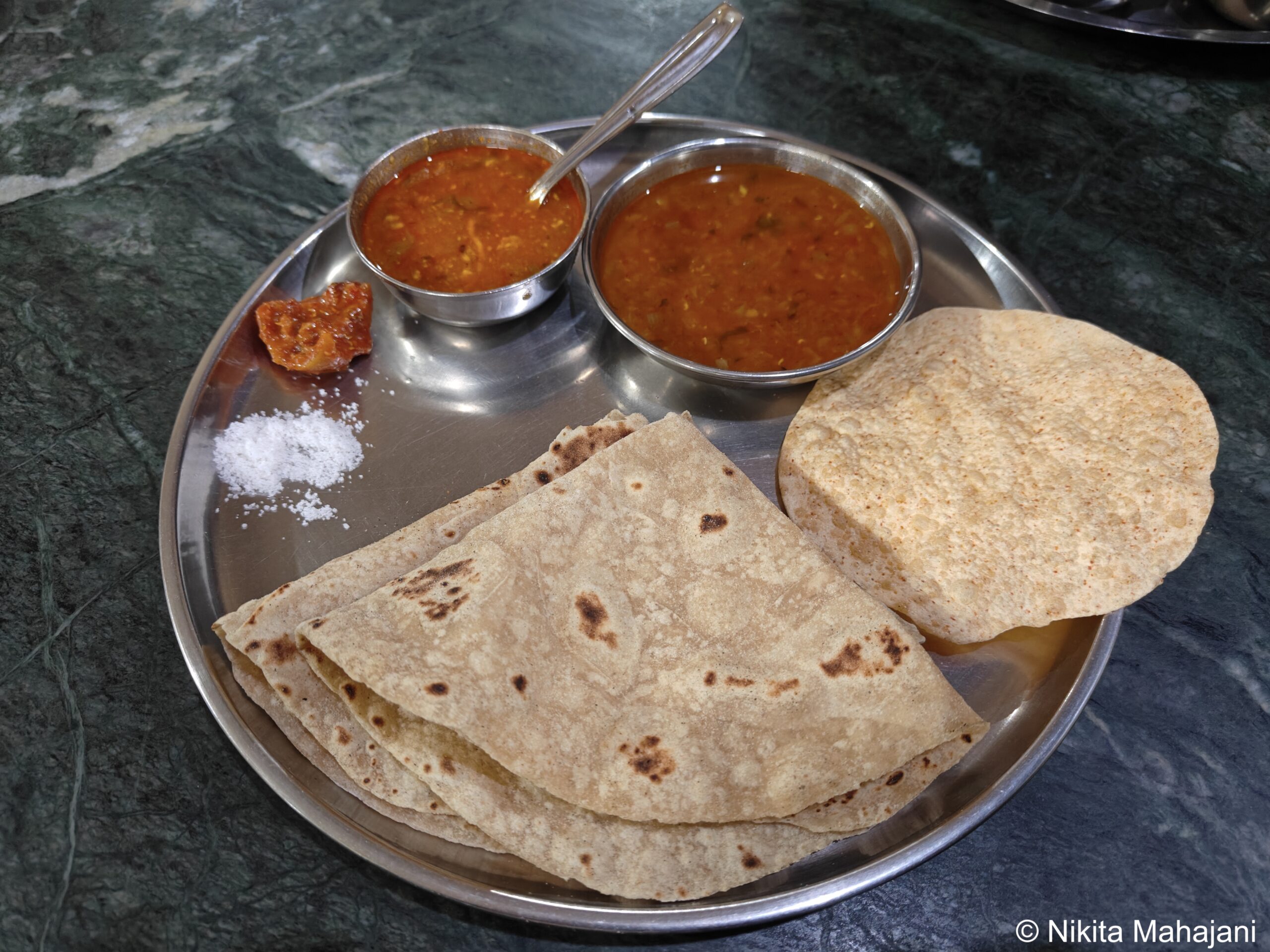
Day 3: Local sight seeing in Ratnagiri
We started the day with breakfast at the resort before checking out and visiting Shree Datta Mandir in Kolambe. On the way, we paused to admire the mangroves, a delightful natural habitat that fascinated Sophie.
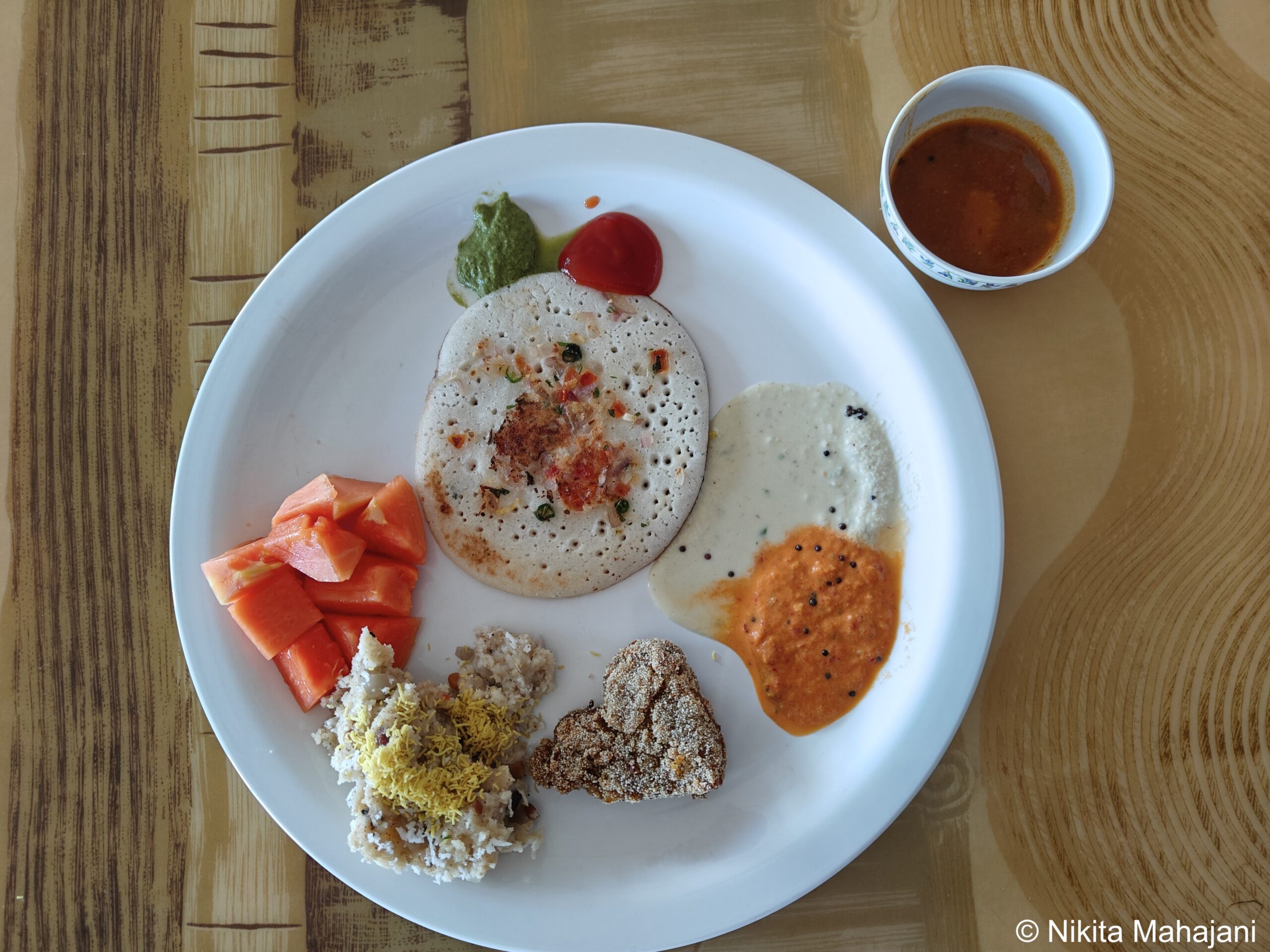
Shree Datta Mandir in Kolambe is surrounded by a lush green mango and coconut trees. Pets are allowed in the premises but not inside the temple. Toilets and bathrooms are available in the premises.
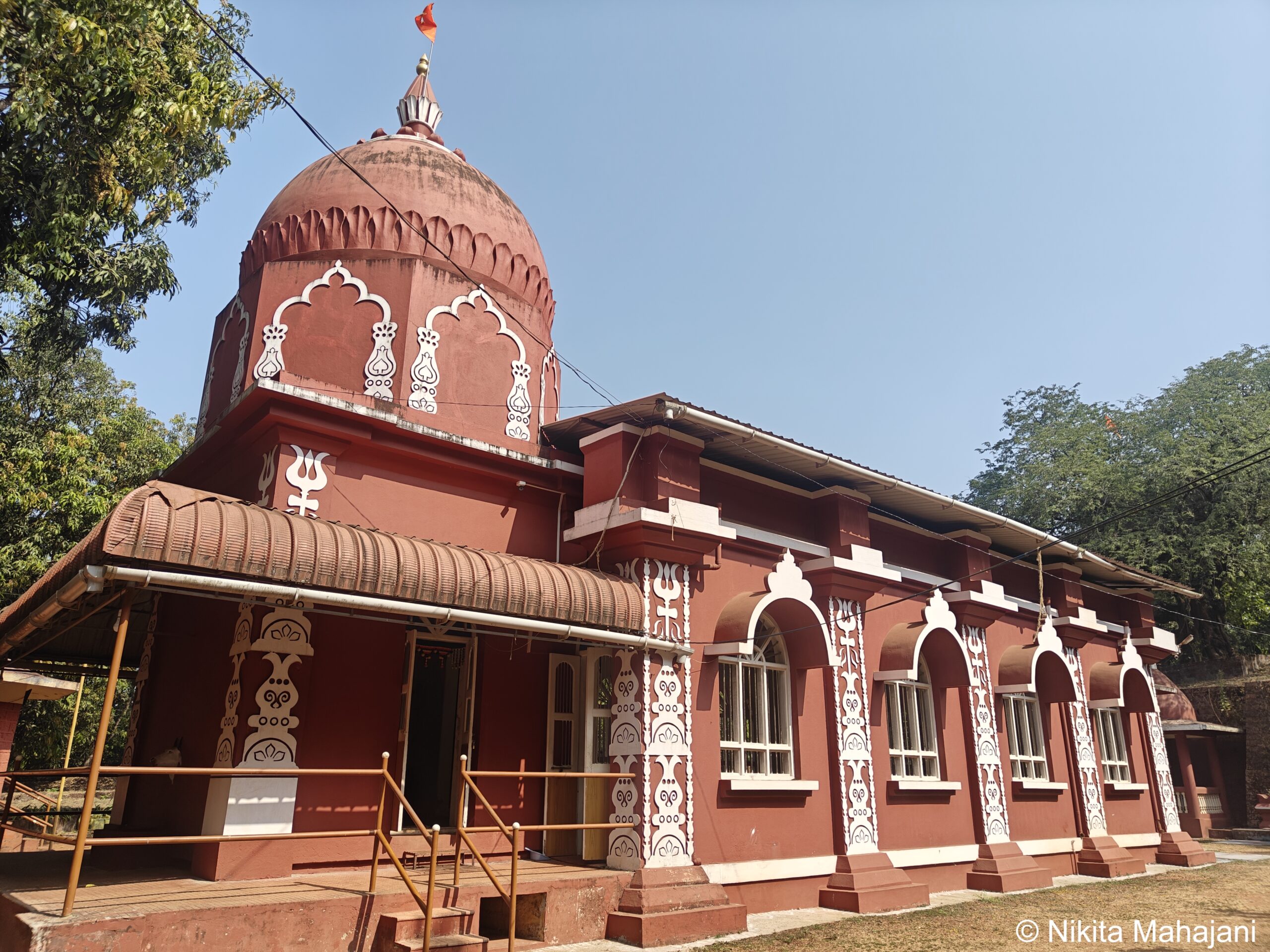
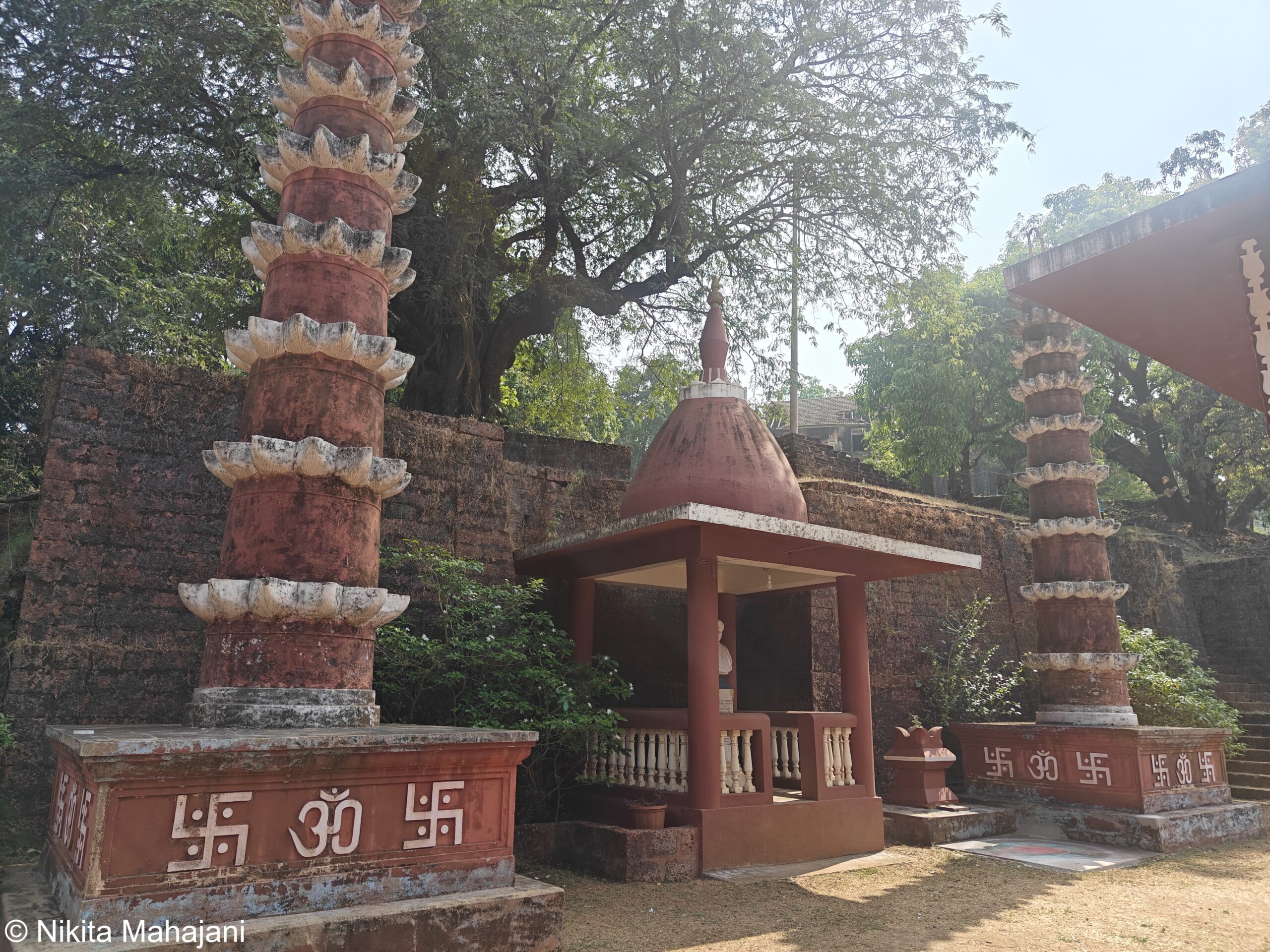
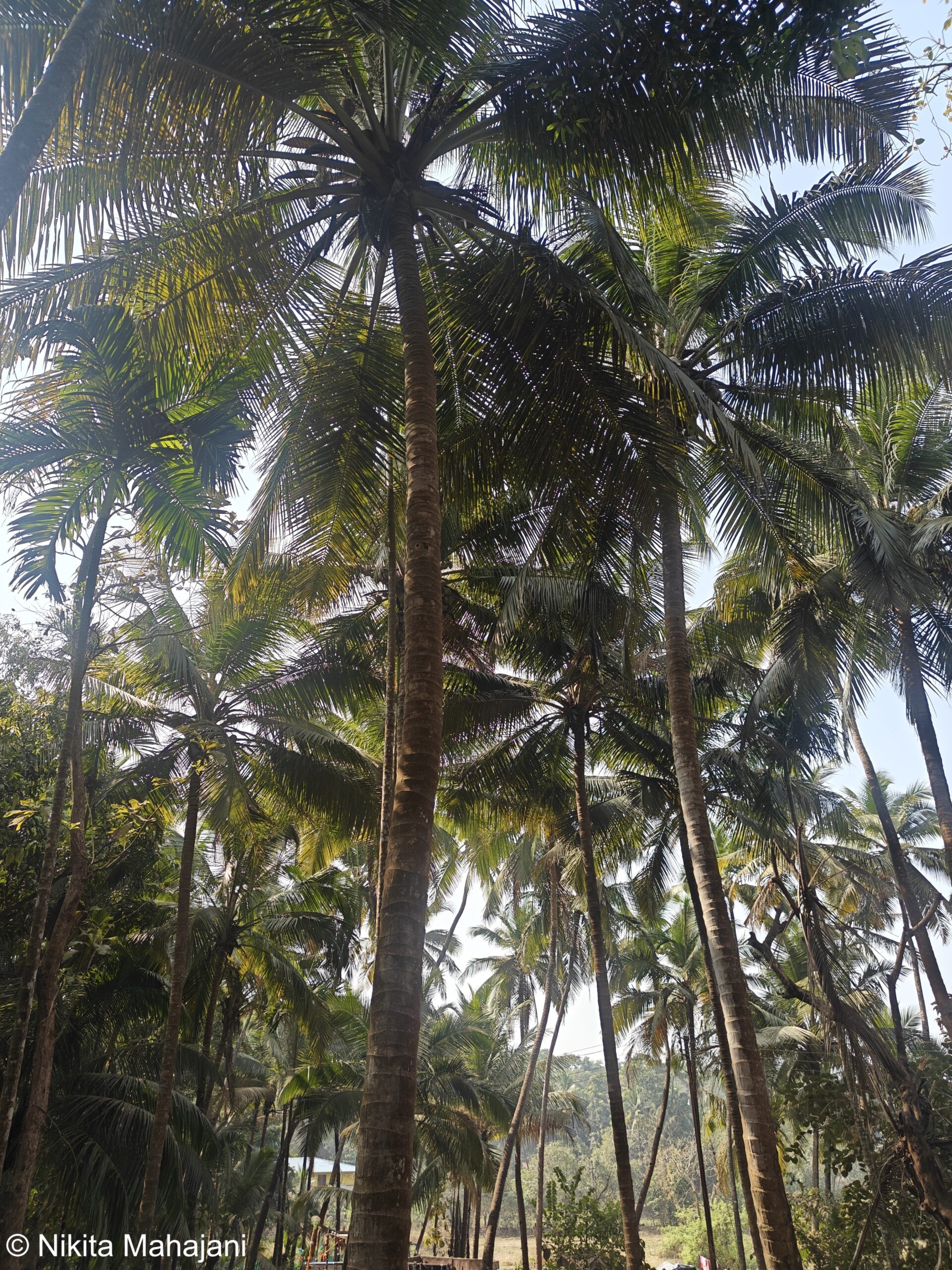
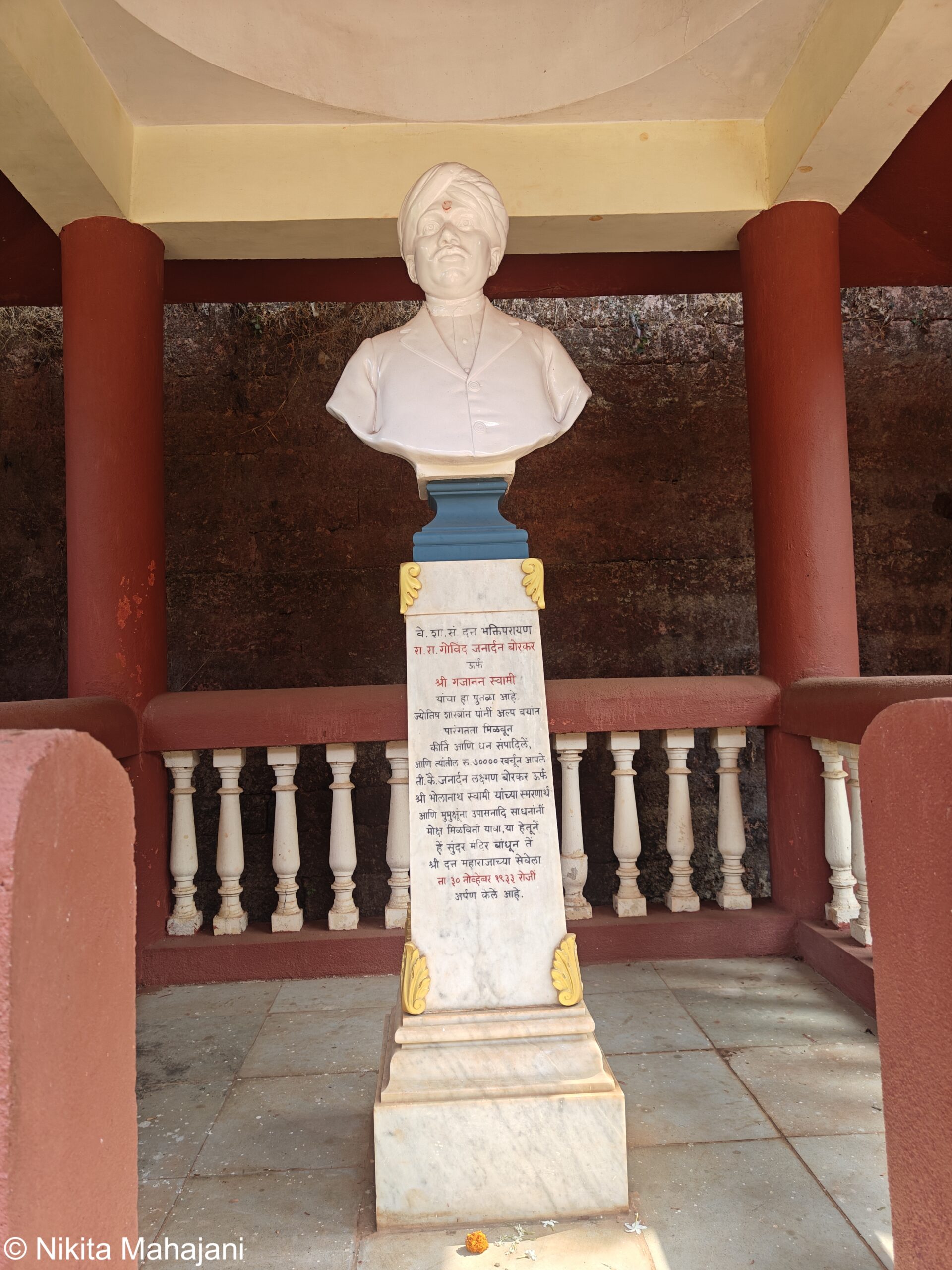
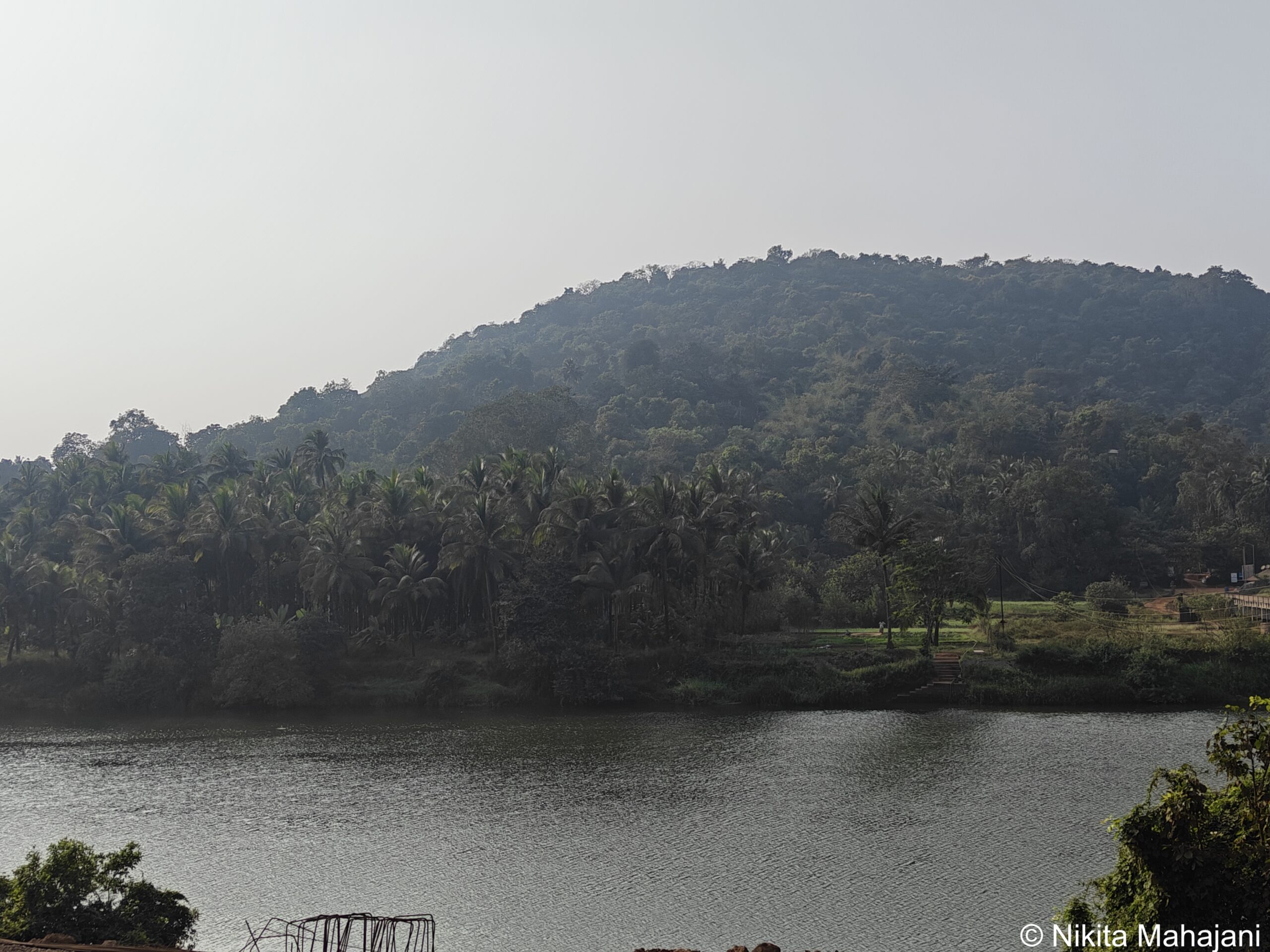
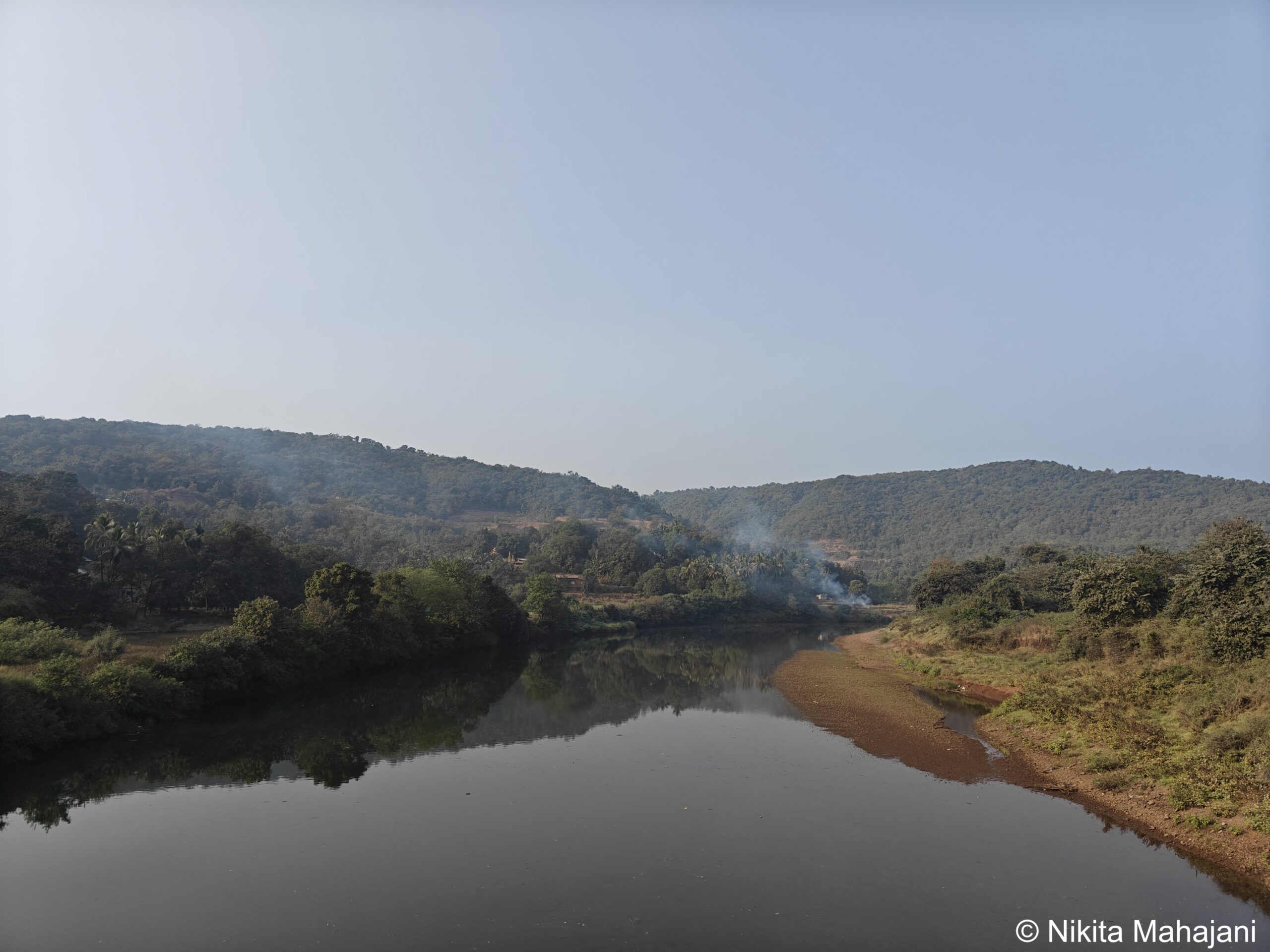
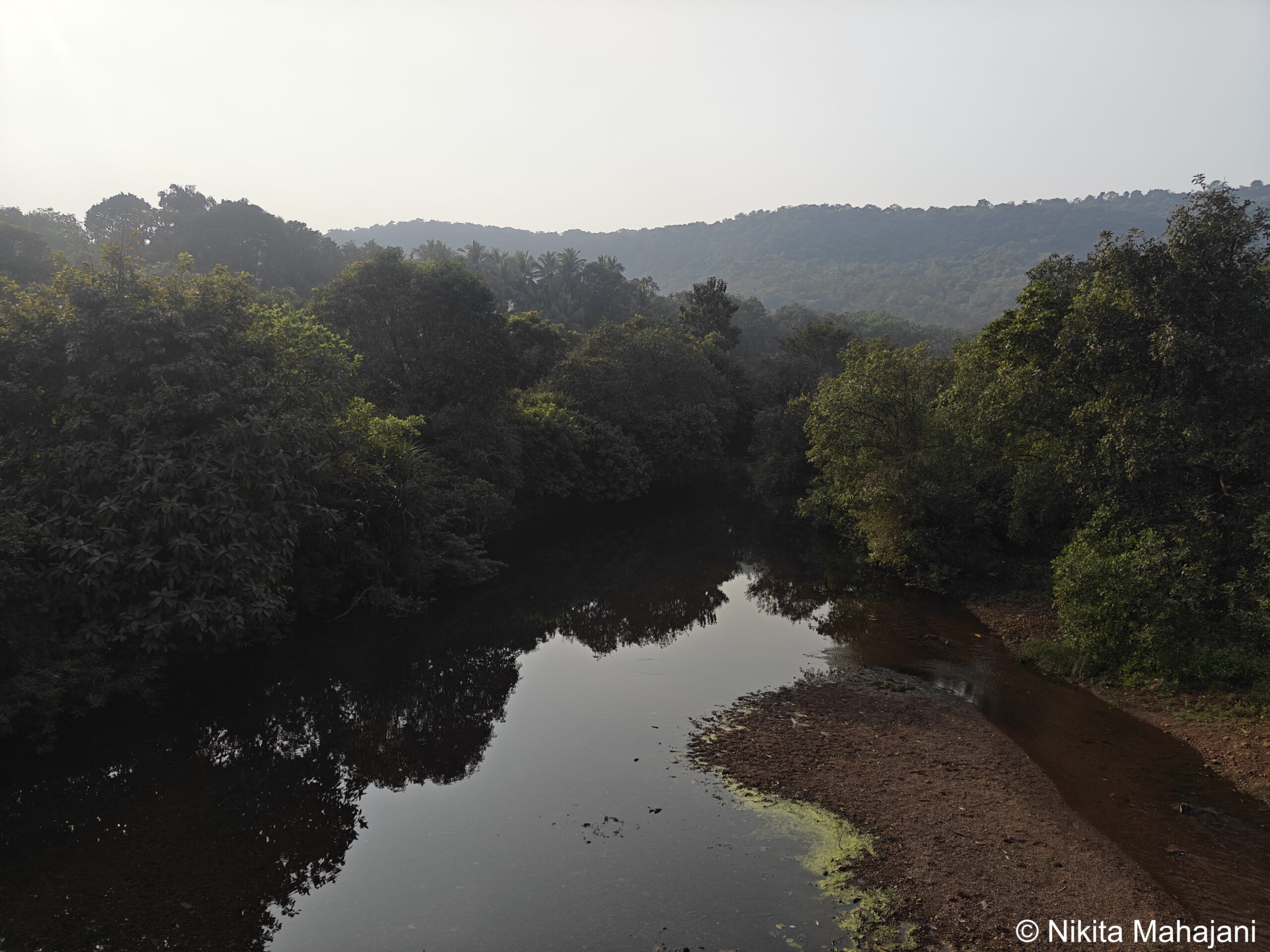
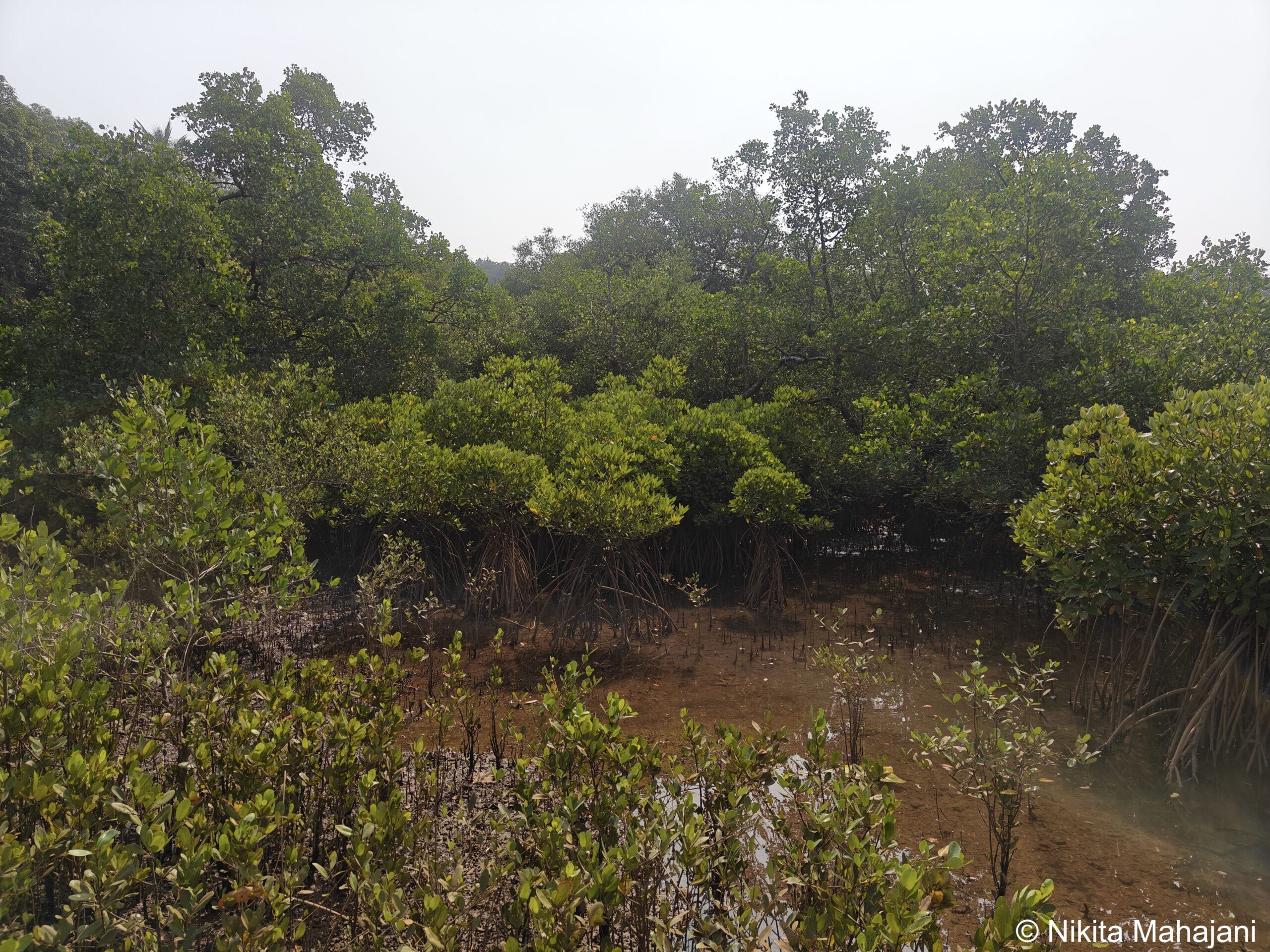
Our next stop was the historical Thiba Palace, giving us a glimpse into the region’s rich history. This palace was constructed by the British after their conquest of Burma, where they feared keeping the Burmese king might incite a revolt. To prevent this, the king was placed under house arrest in Ratnagiri District, Maharashtra. The palace was built according to the king’s specifications and served as the residence of the Burmese king and queen until their deaths.
Now maintained by the Archaeological Survey of India (ASI), the palace houses preserved artifacts used by the king, which visitors can view. It is open to the public from 10:00 AM to 5:00 PM, with a nominal entry fee of ₹5. Parking, eateries and washrooms are available. Pets are not allowed in Thiba palace. Hence we alternatively went inside the palace so that the other person could be with our pet in the parking.
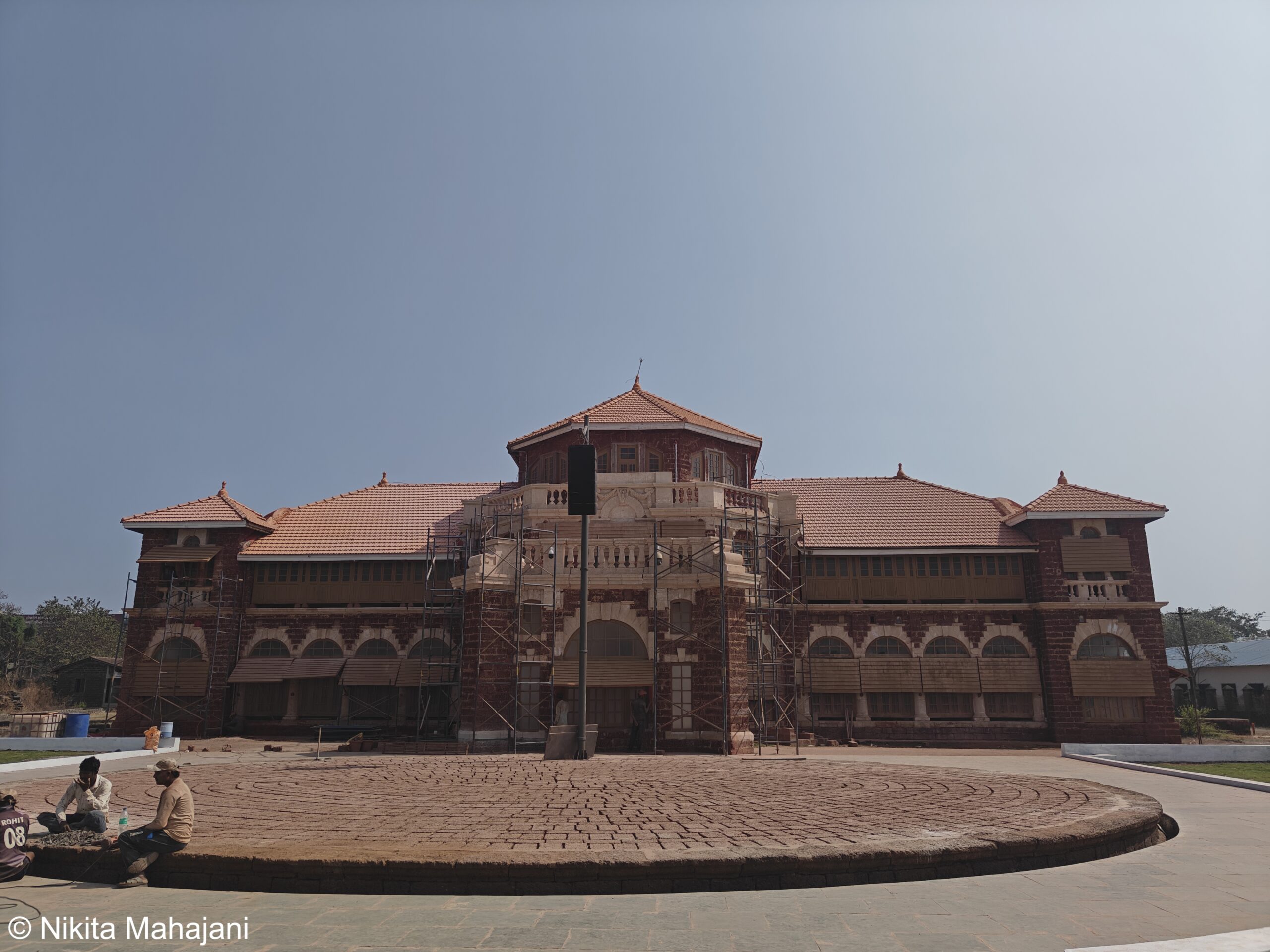
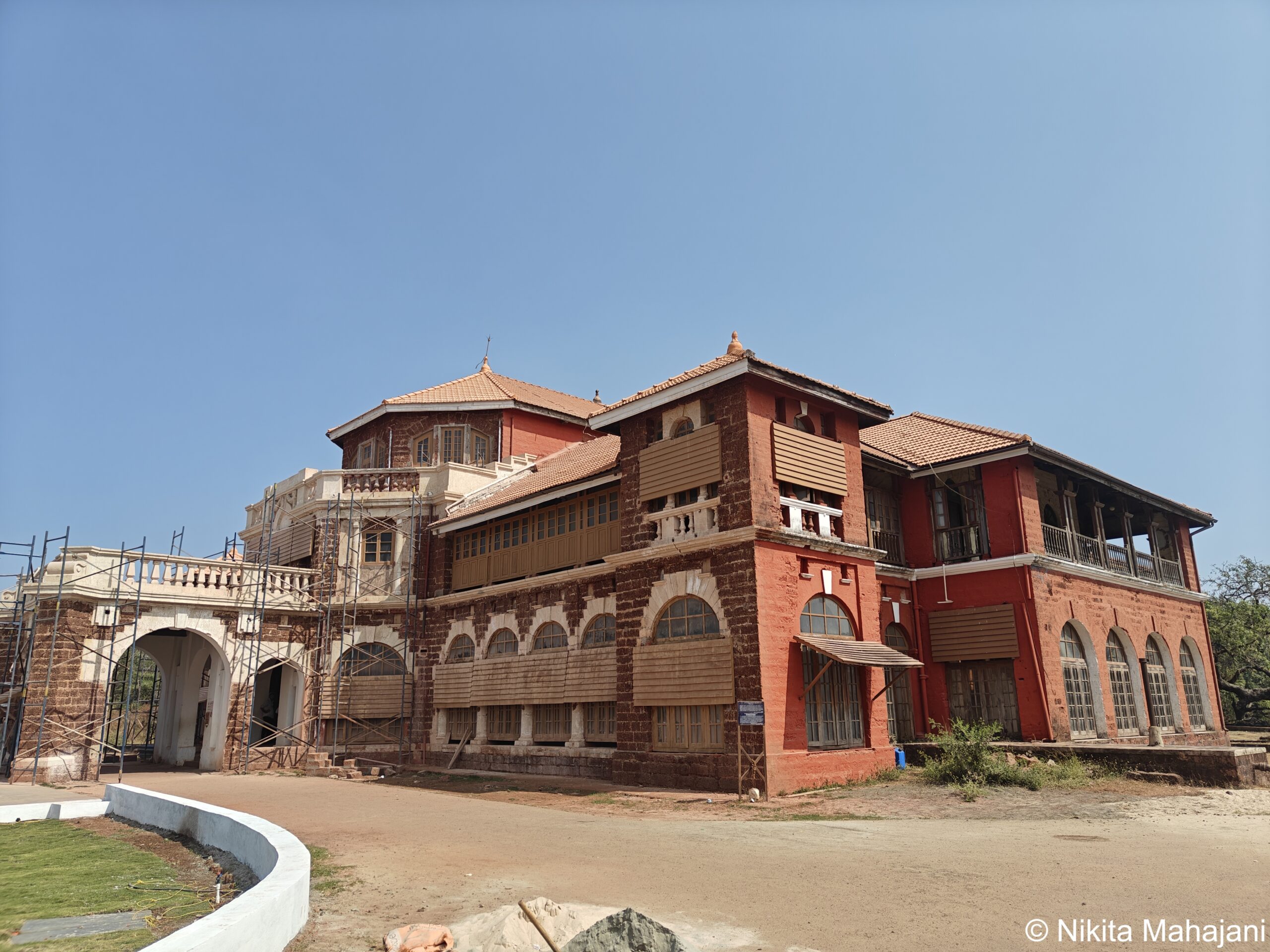
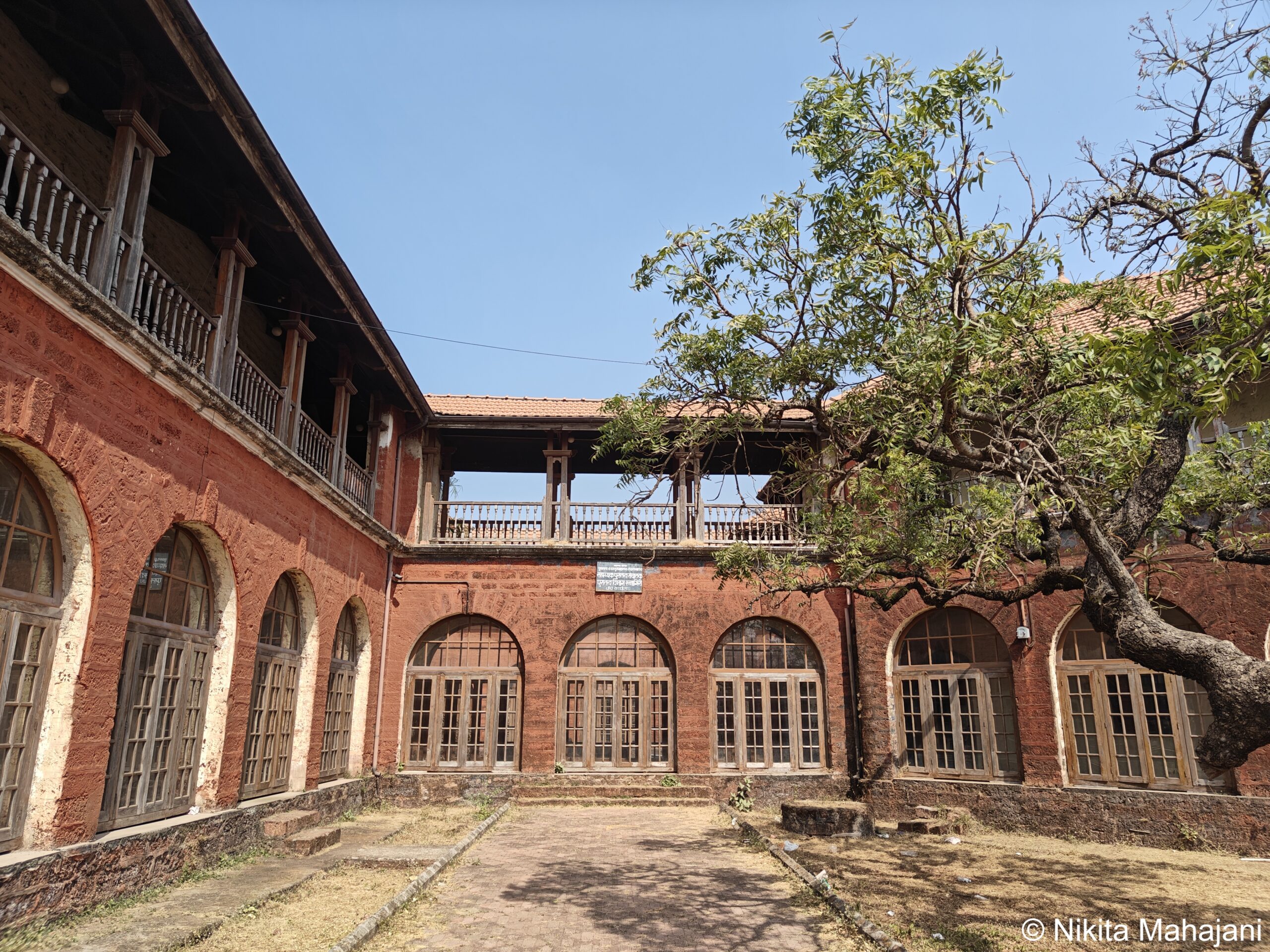
Our next stop was the historical Lokmanya Tilak’s birthplace. Pets are not allowed in in Lokmanya Tilak’s birth place. Hence we alternatively went inside the palace so that the other person could be with our pet in the parking. There is no entry fee and photogrphy is strictly not allowed inside the bungalow. There is a beautiful landscaped garden behind the bungalow which consists of an open air amphitheatre, mounds, walkways and native trees.
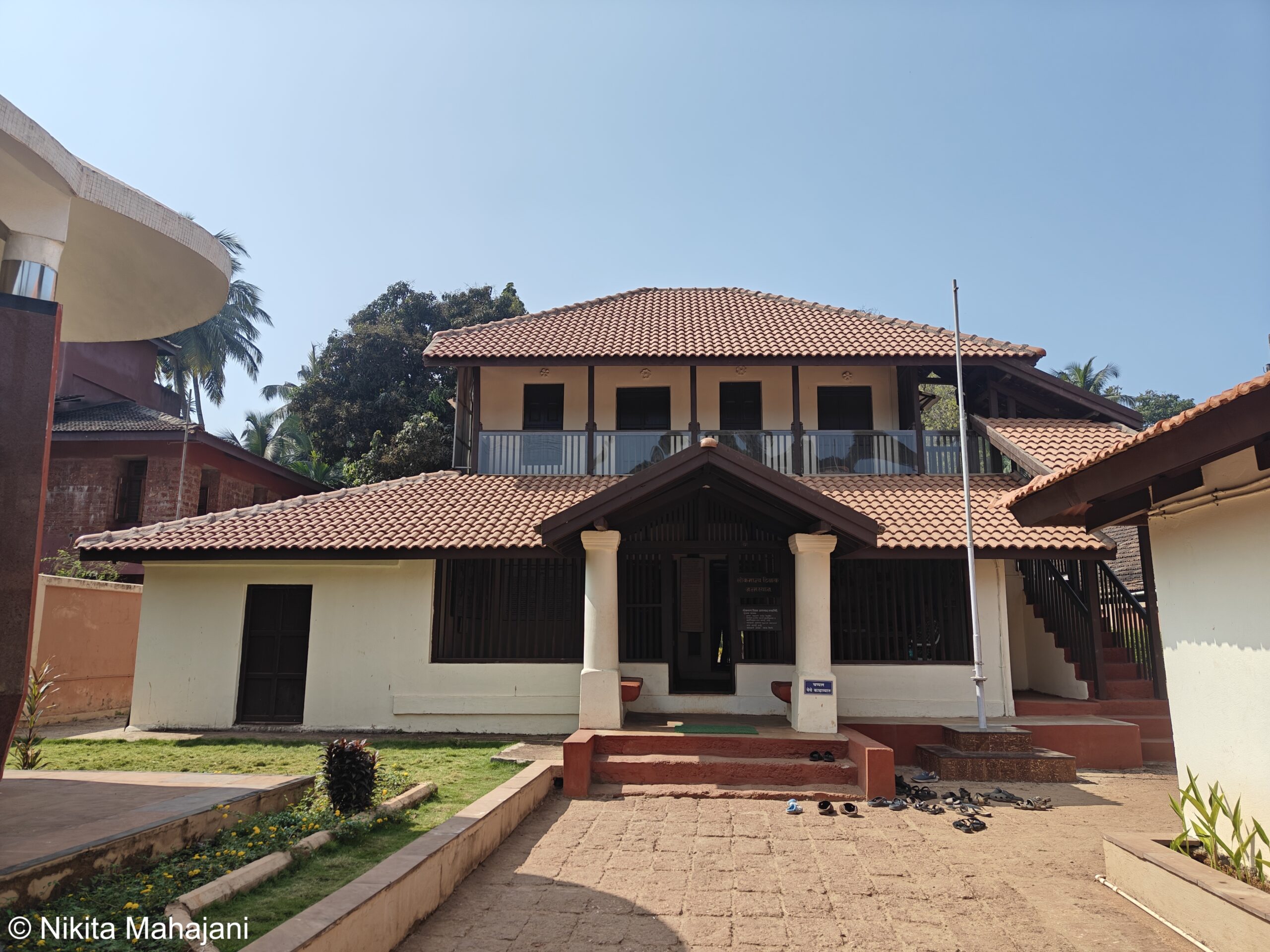
We started our journey to Ganpatipule.
To read PART-2 of this blog click here.
Where did we stay ?
Kohinoor Samudra beach Resort, Ratnagiri
Hotel Grand Ganesha, Ganpatipule
